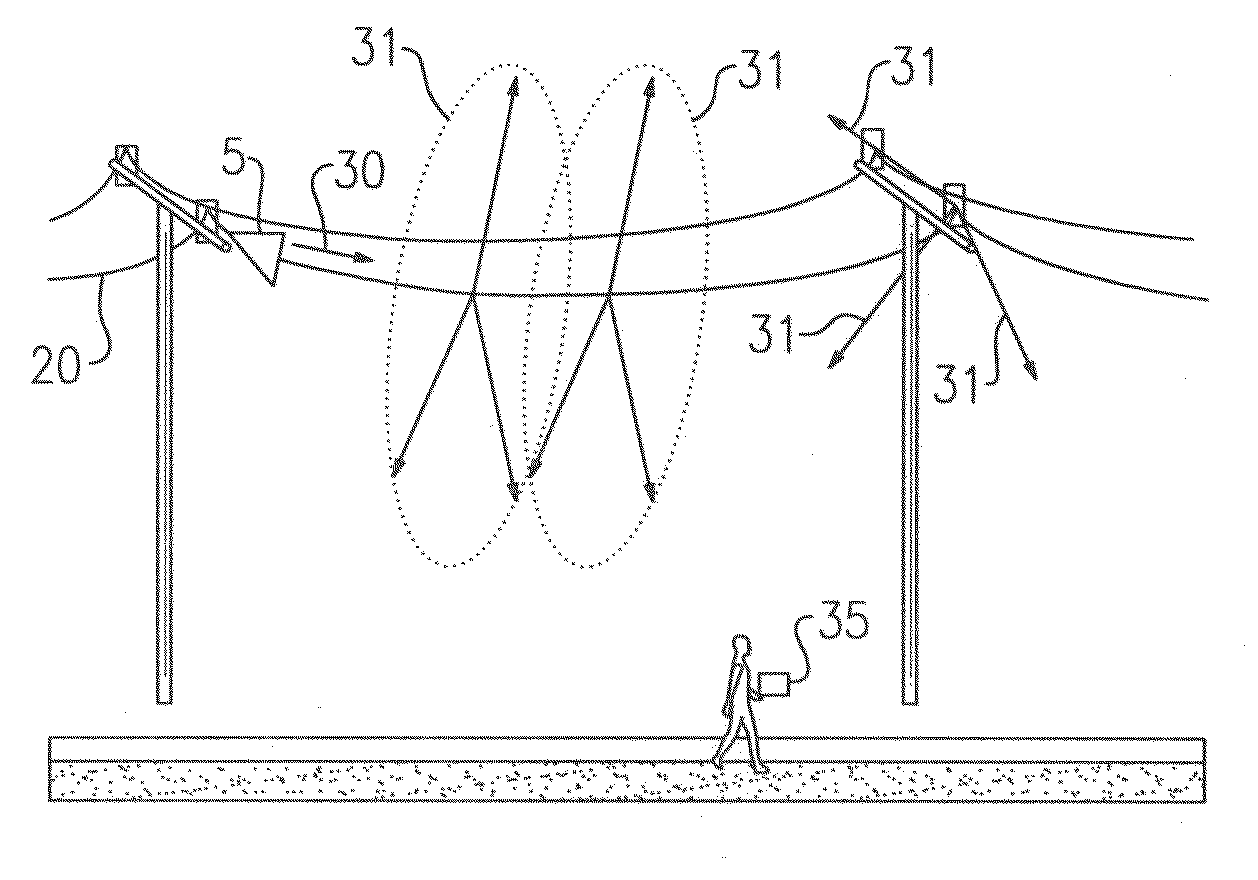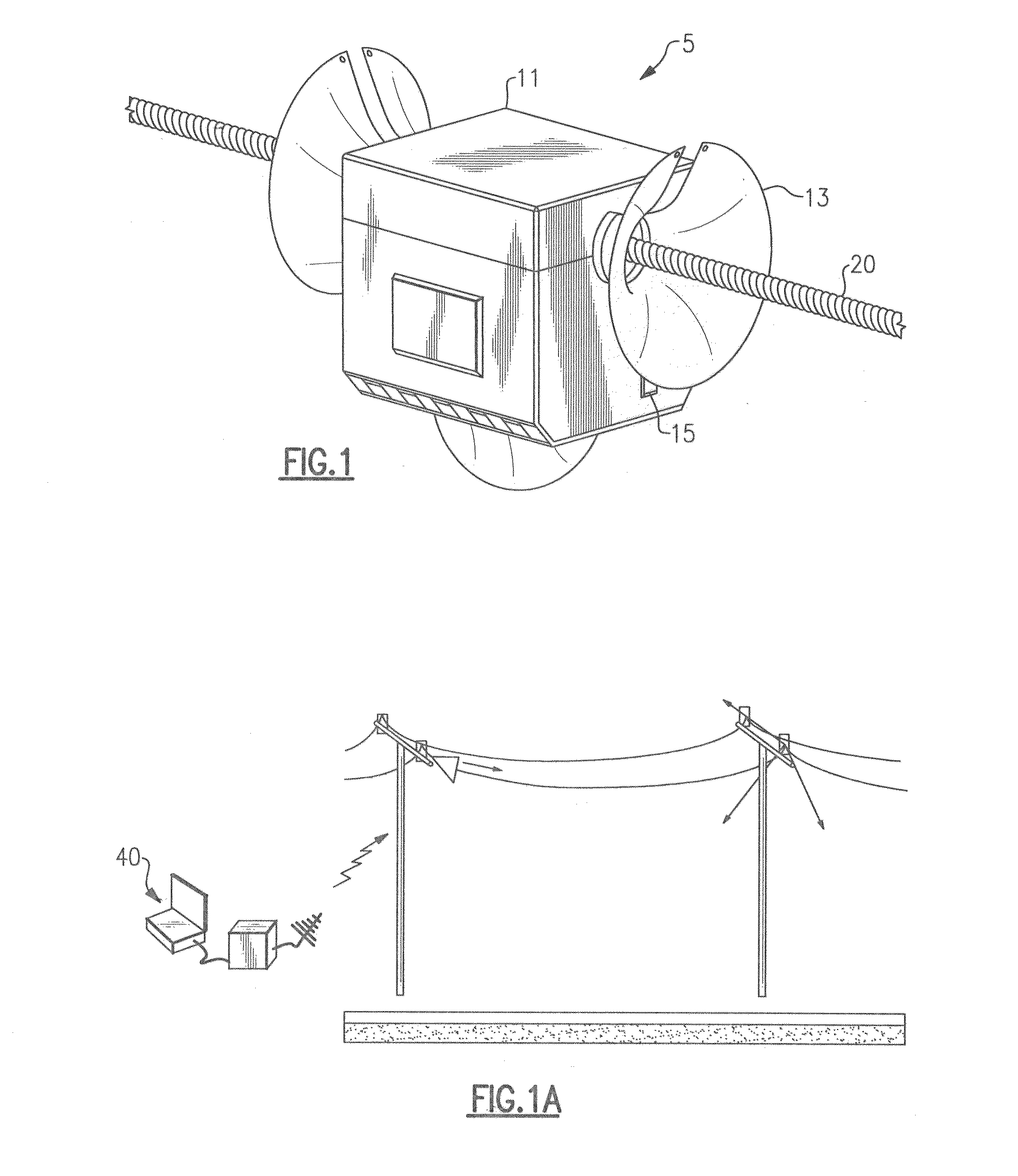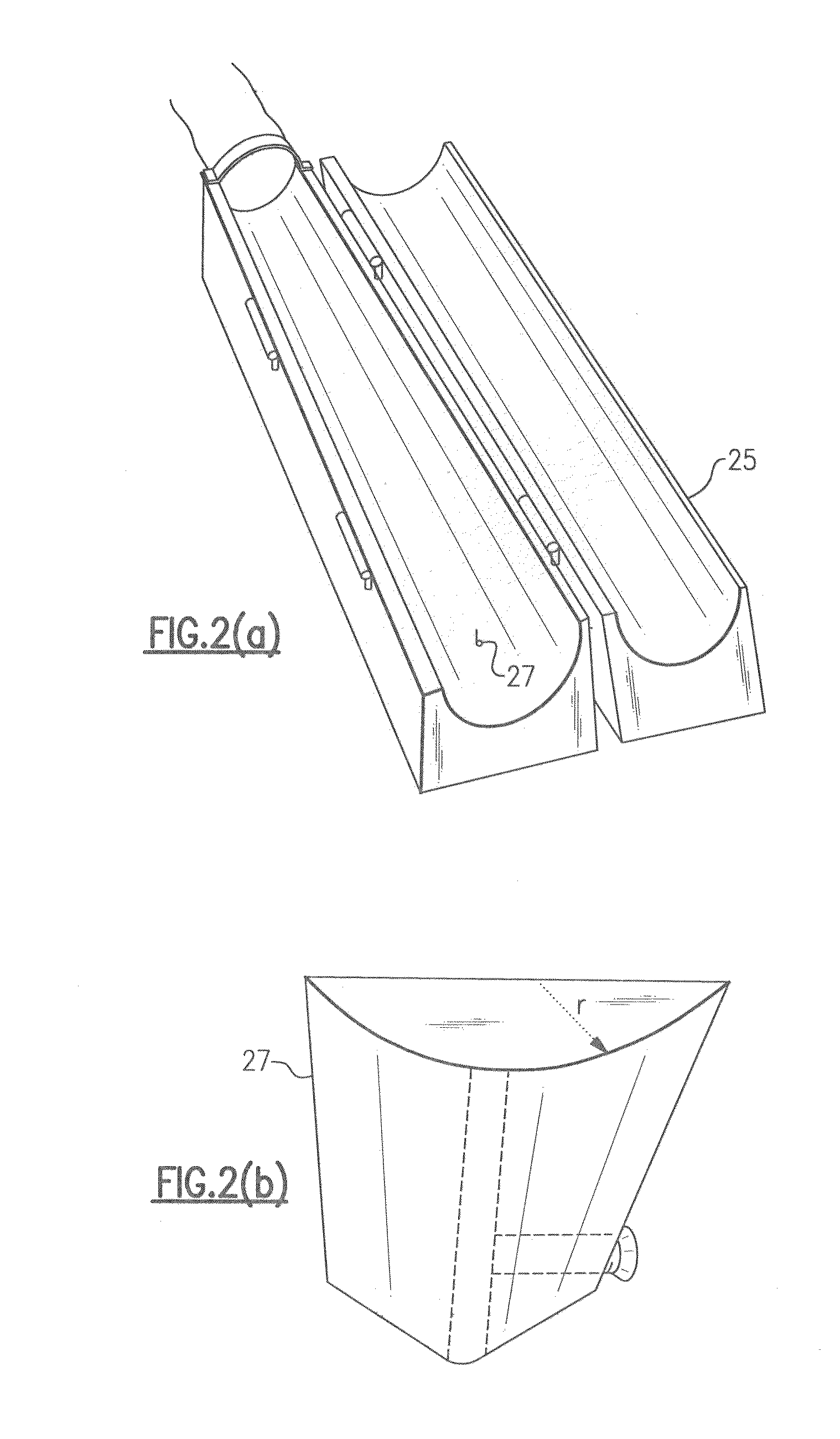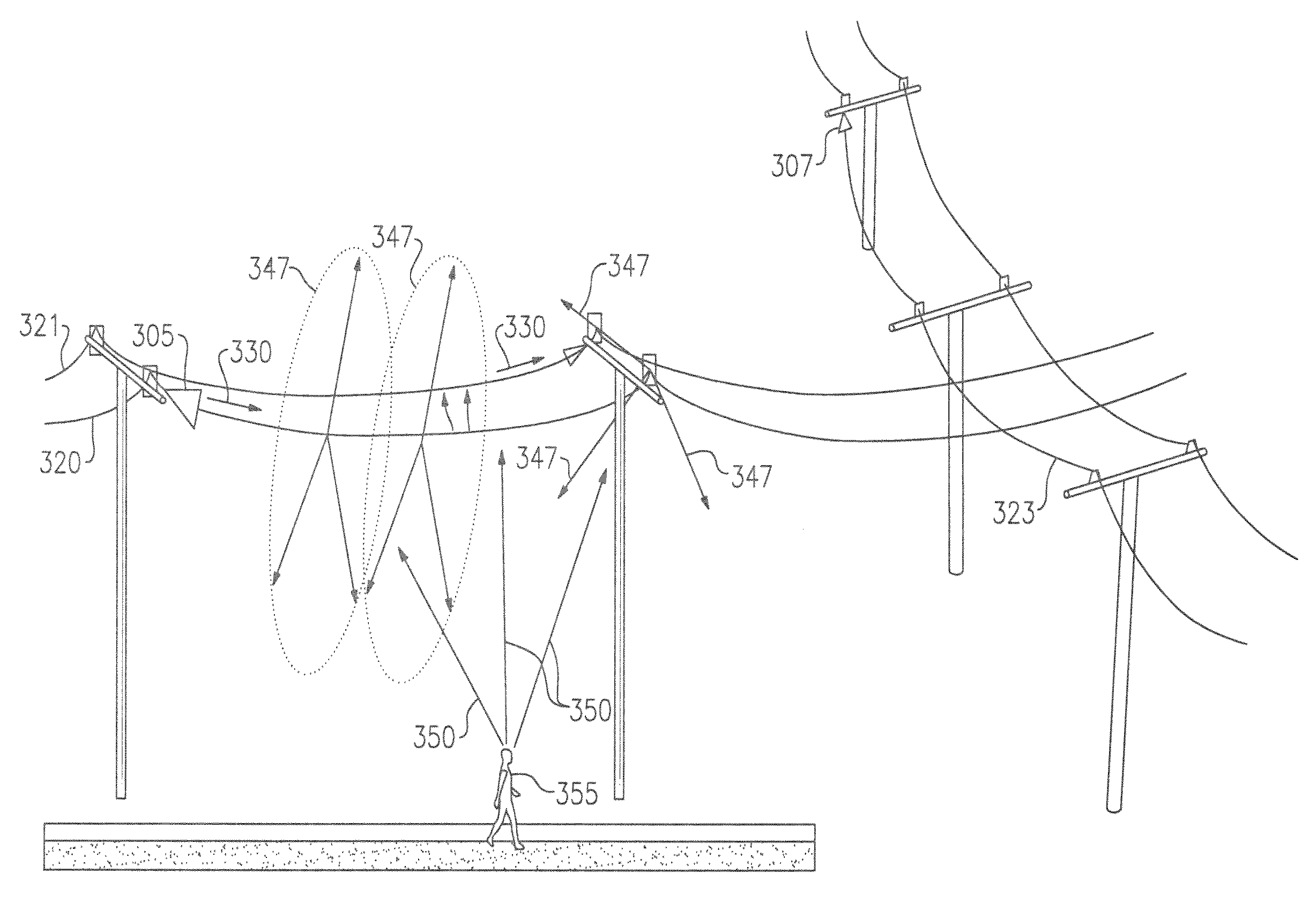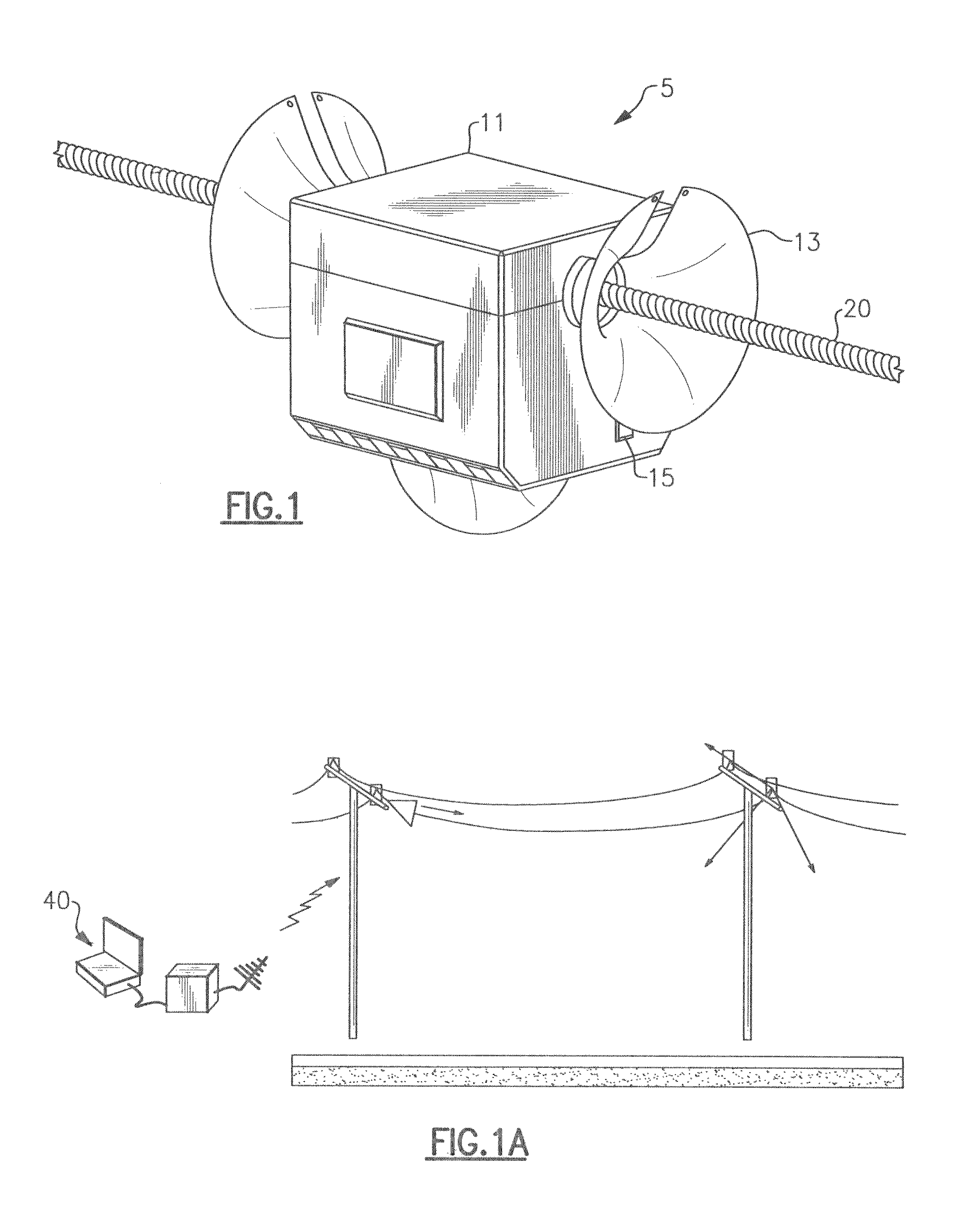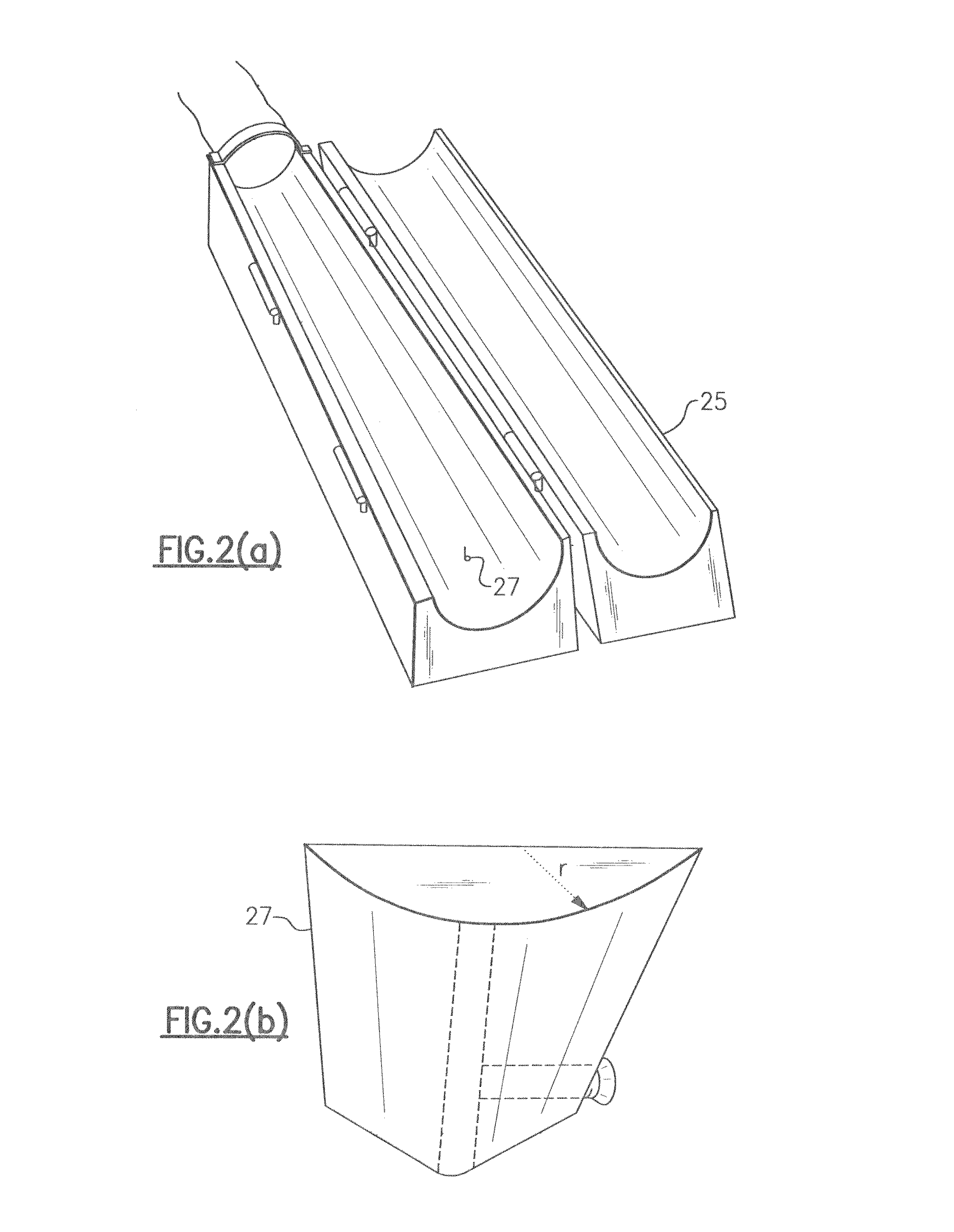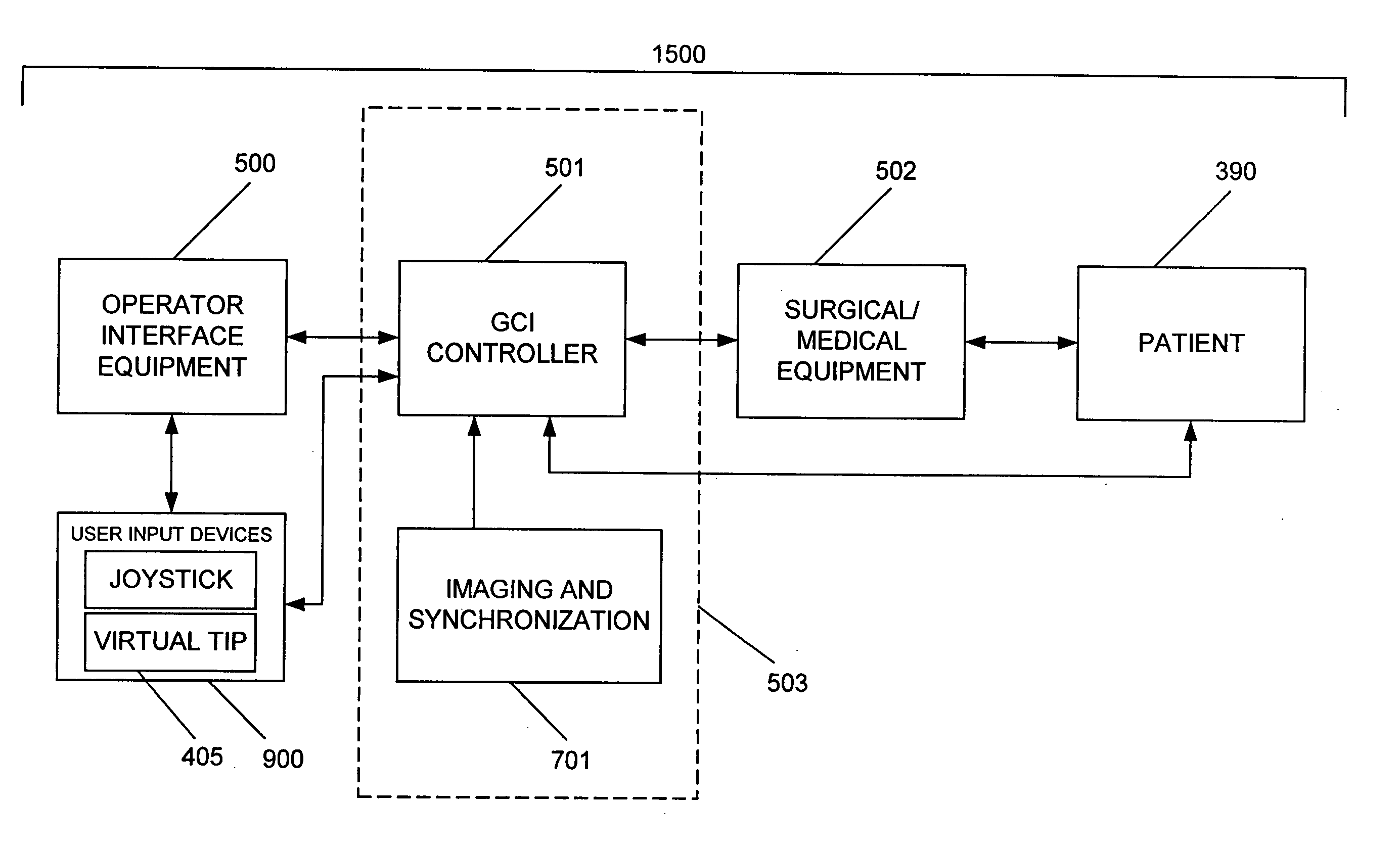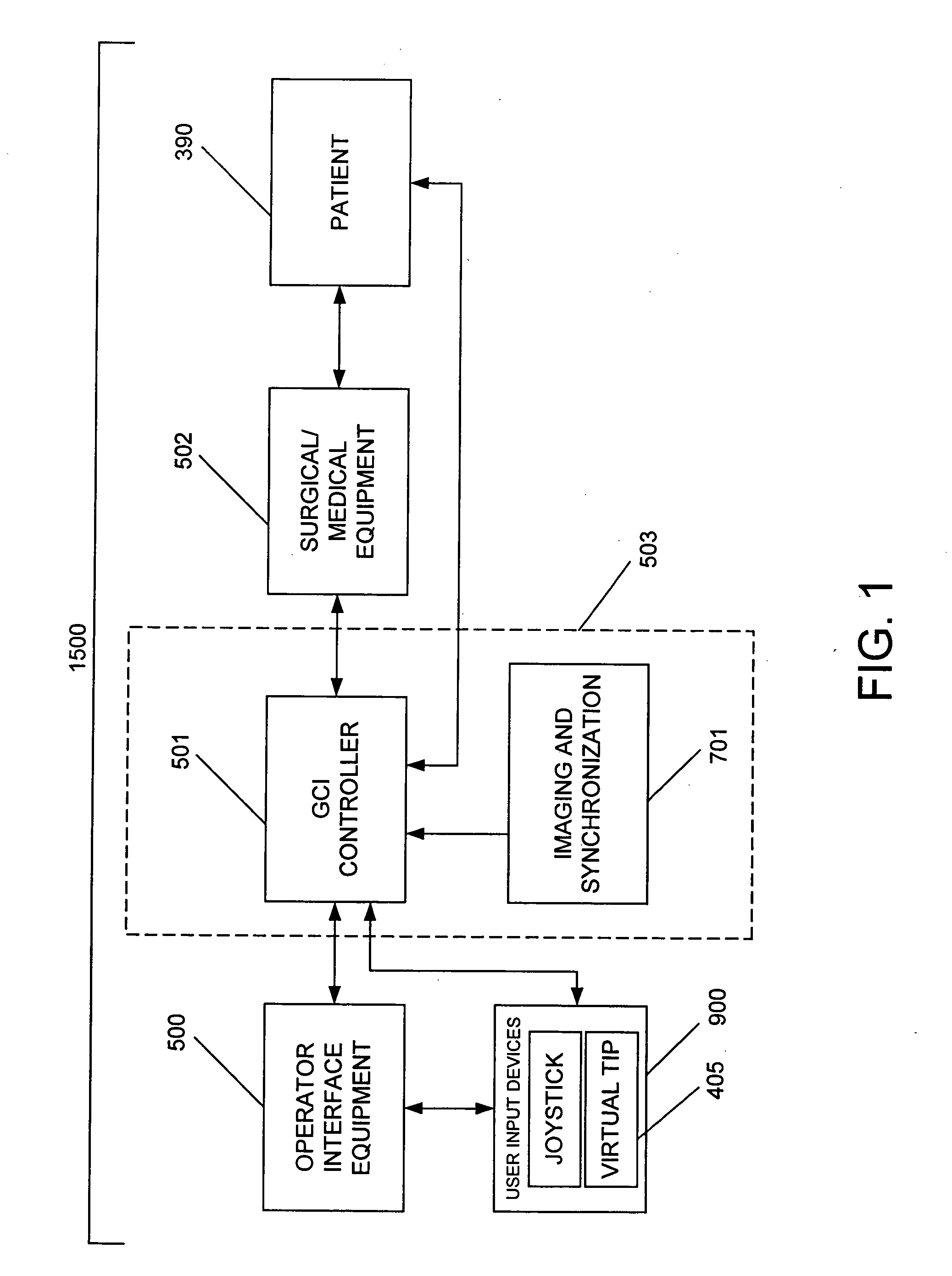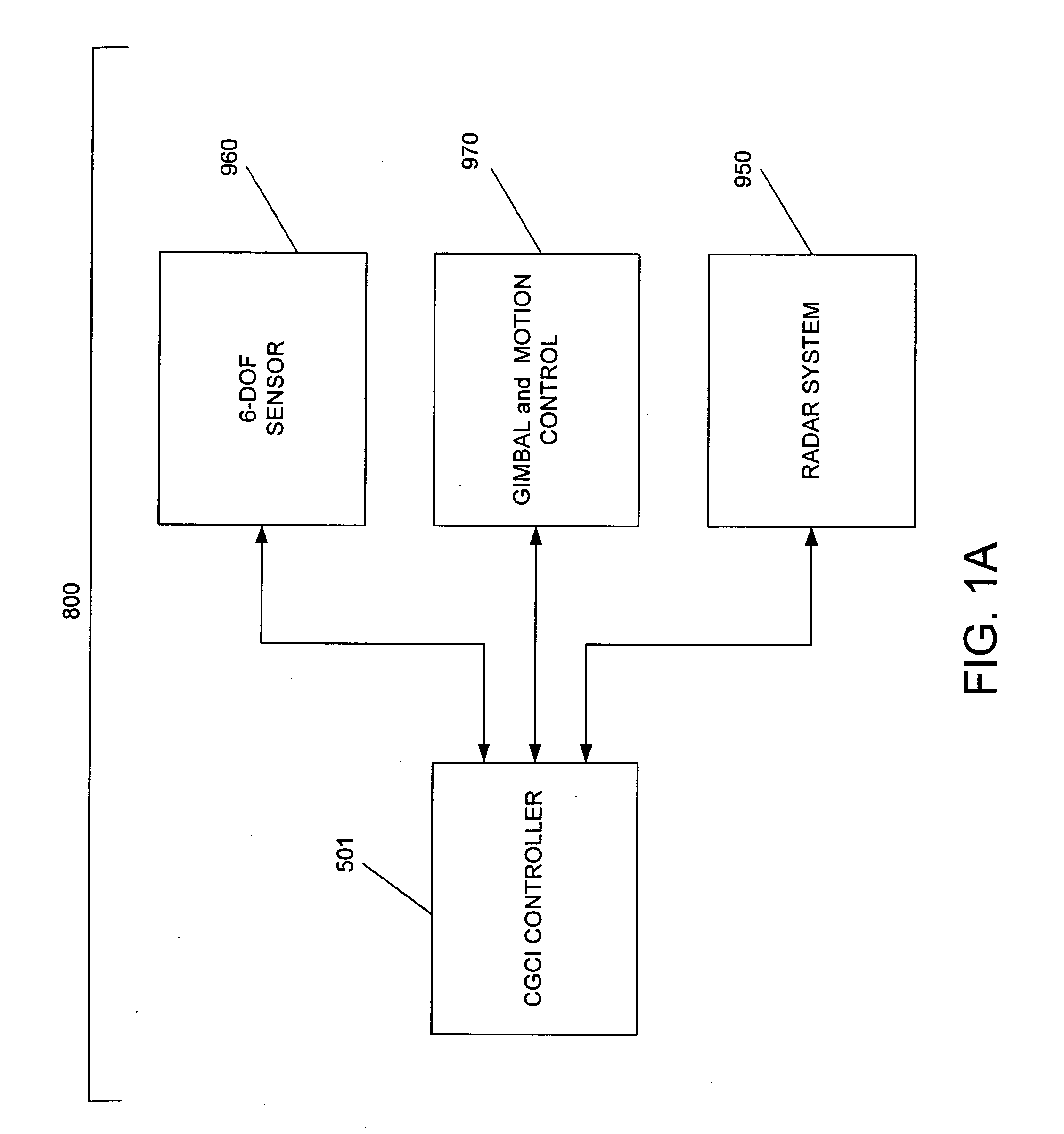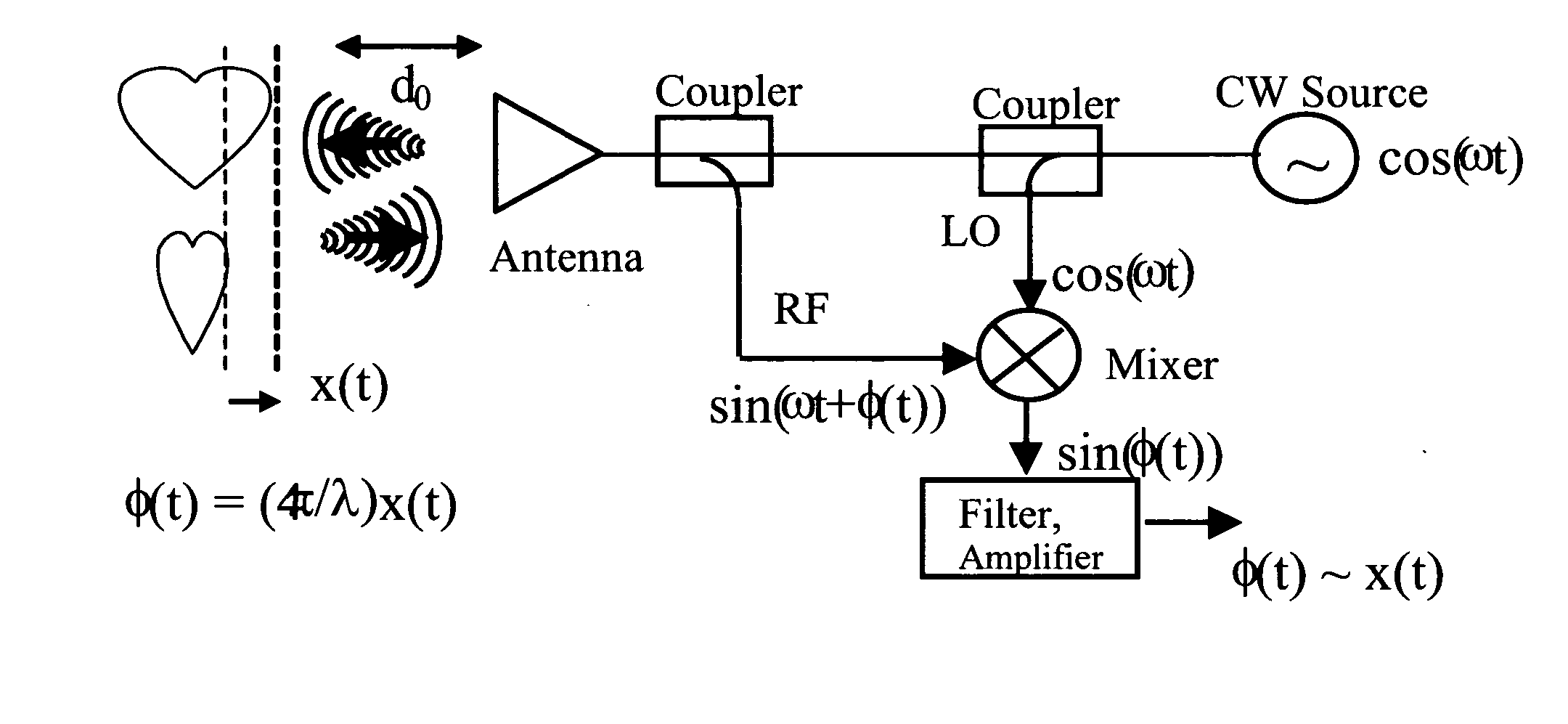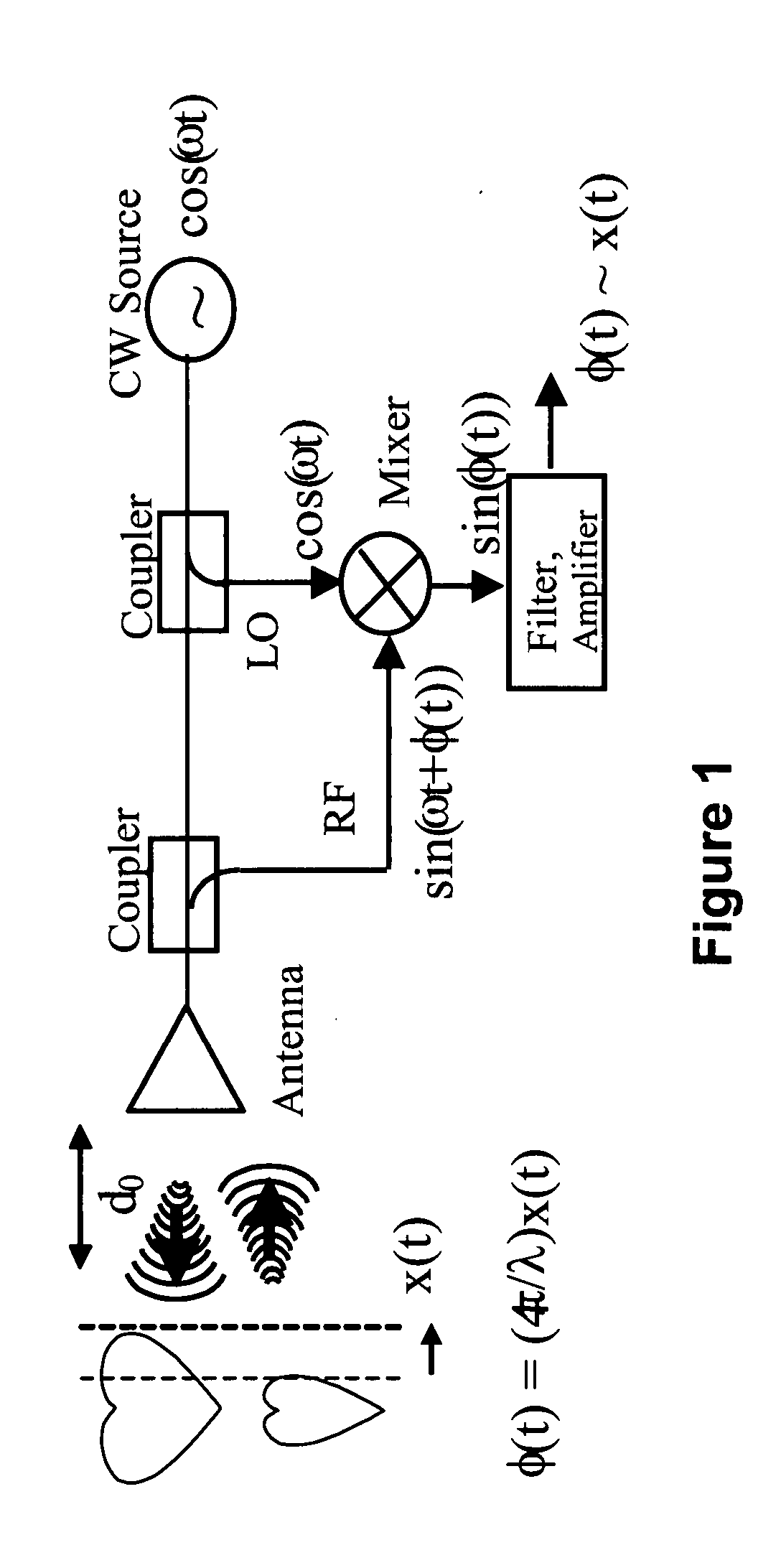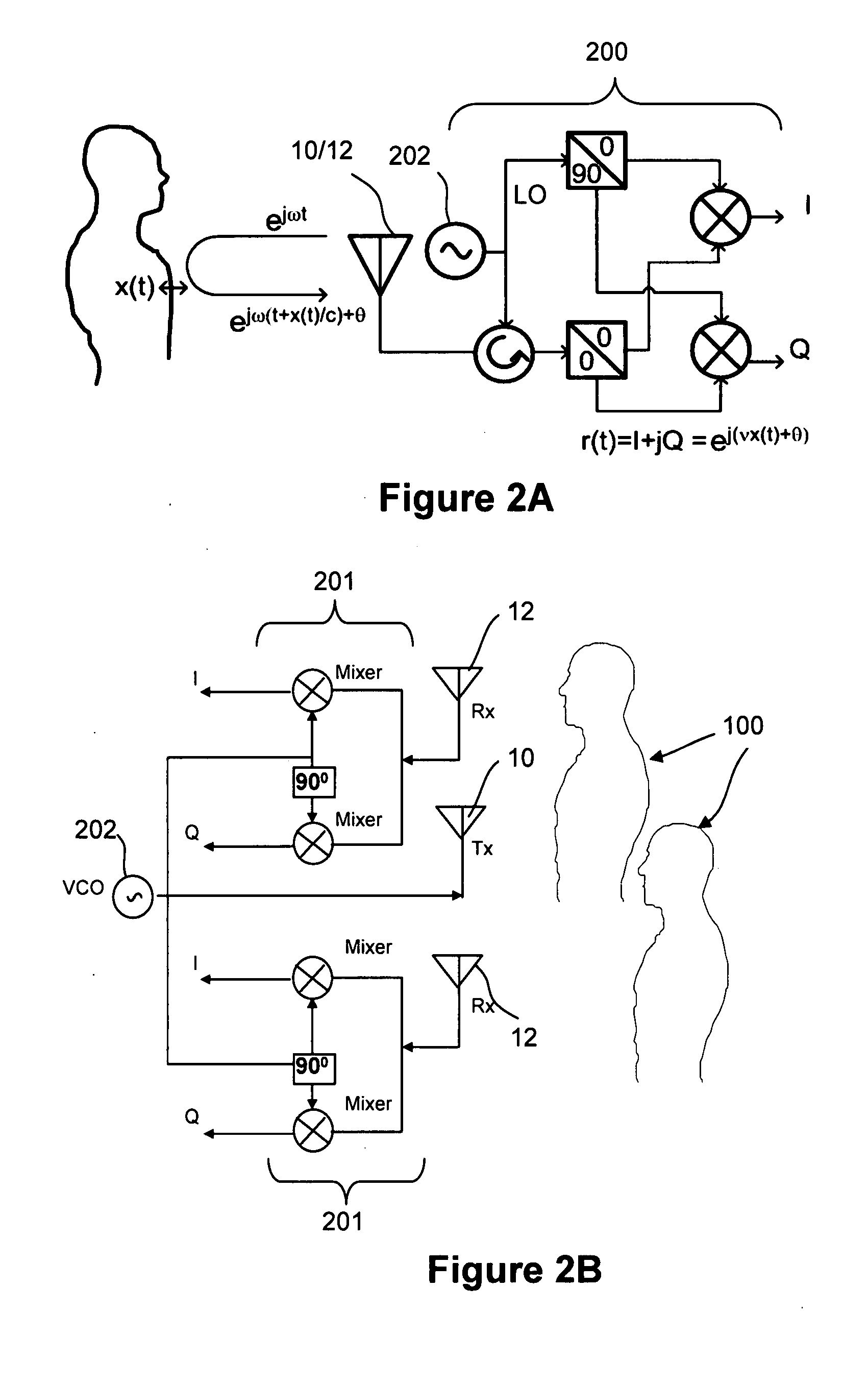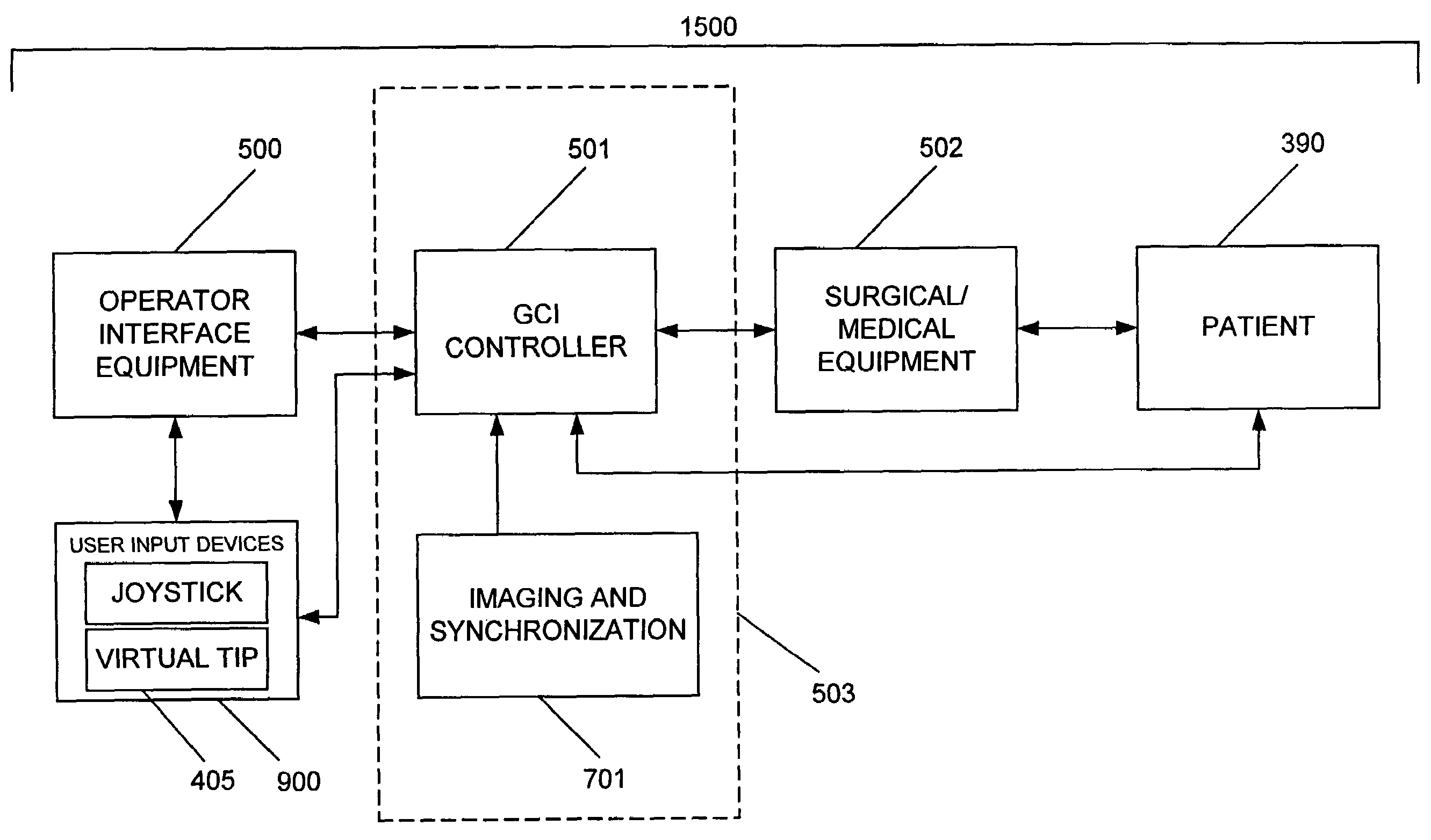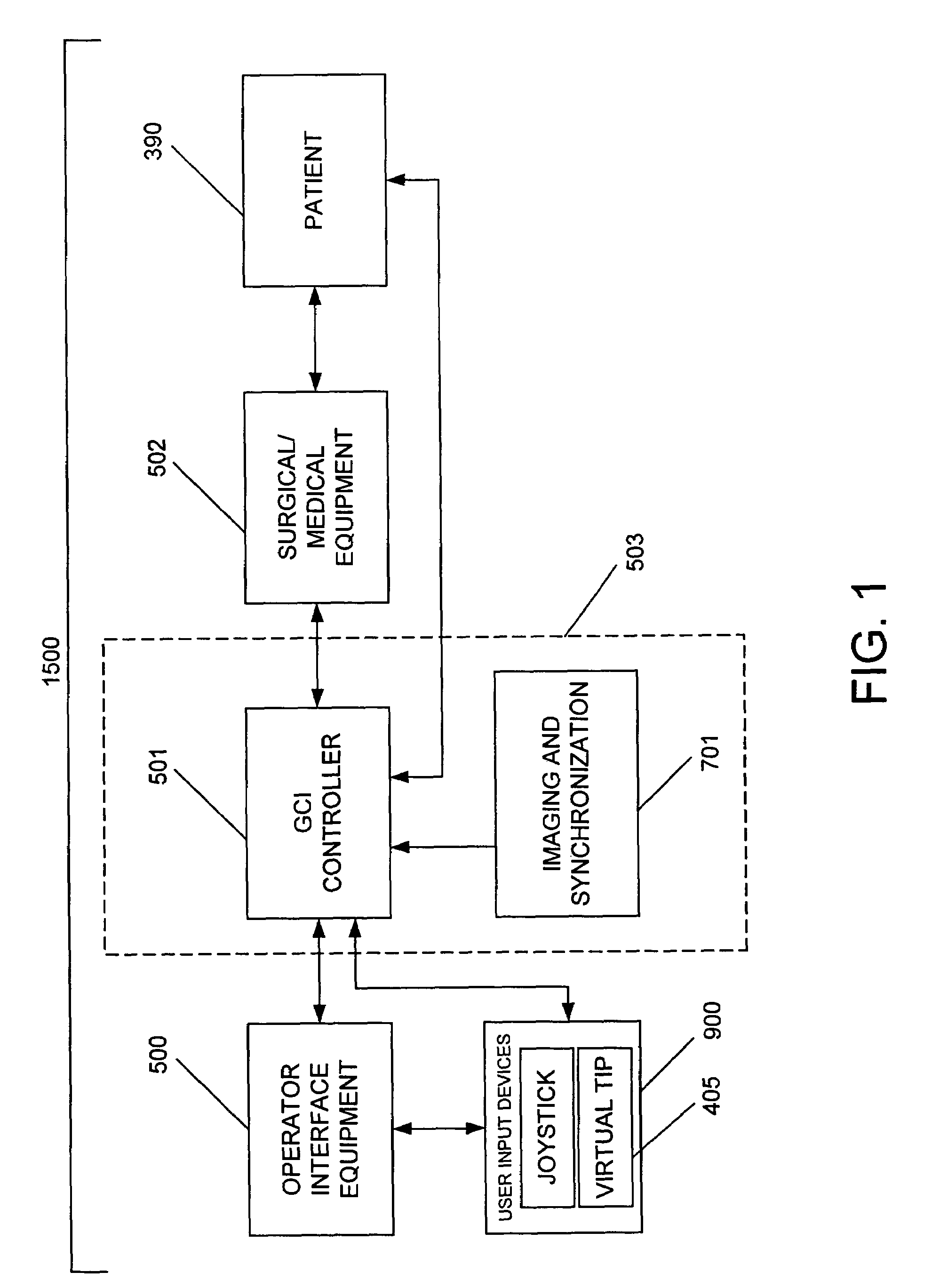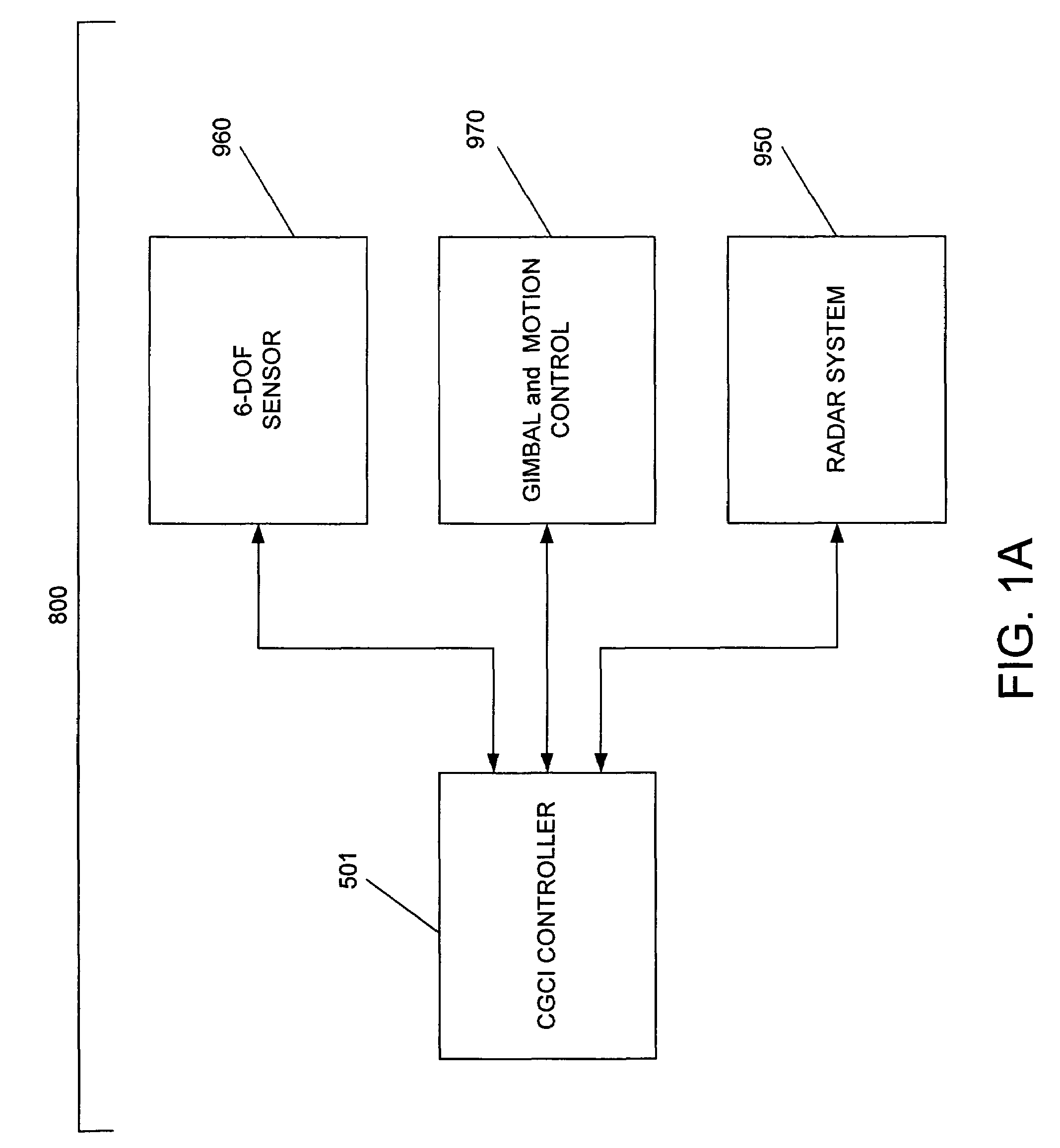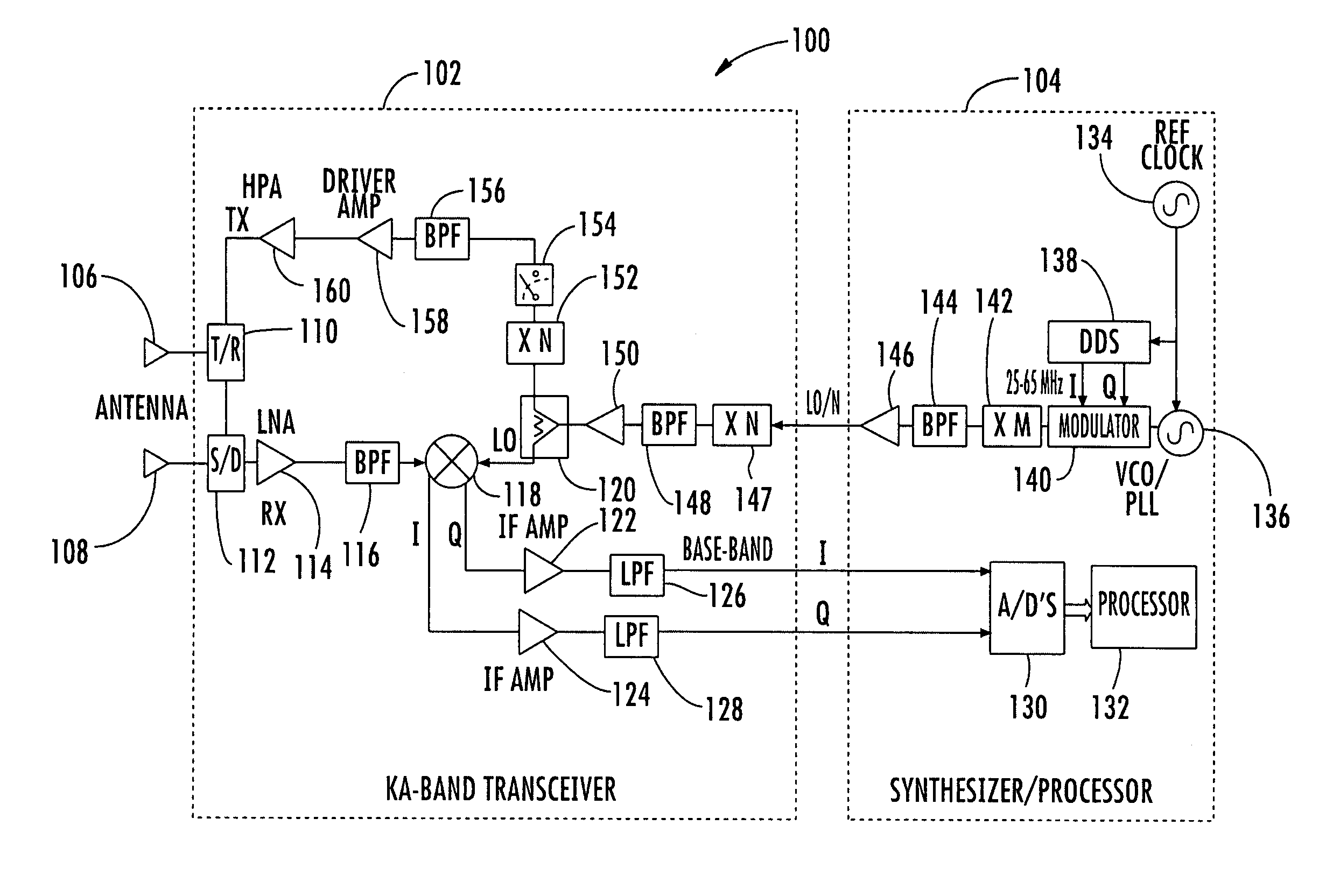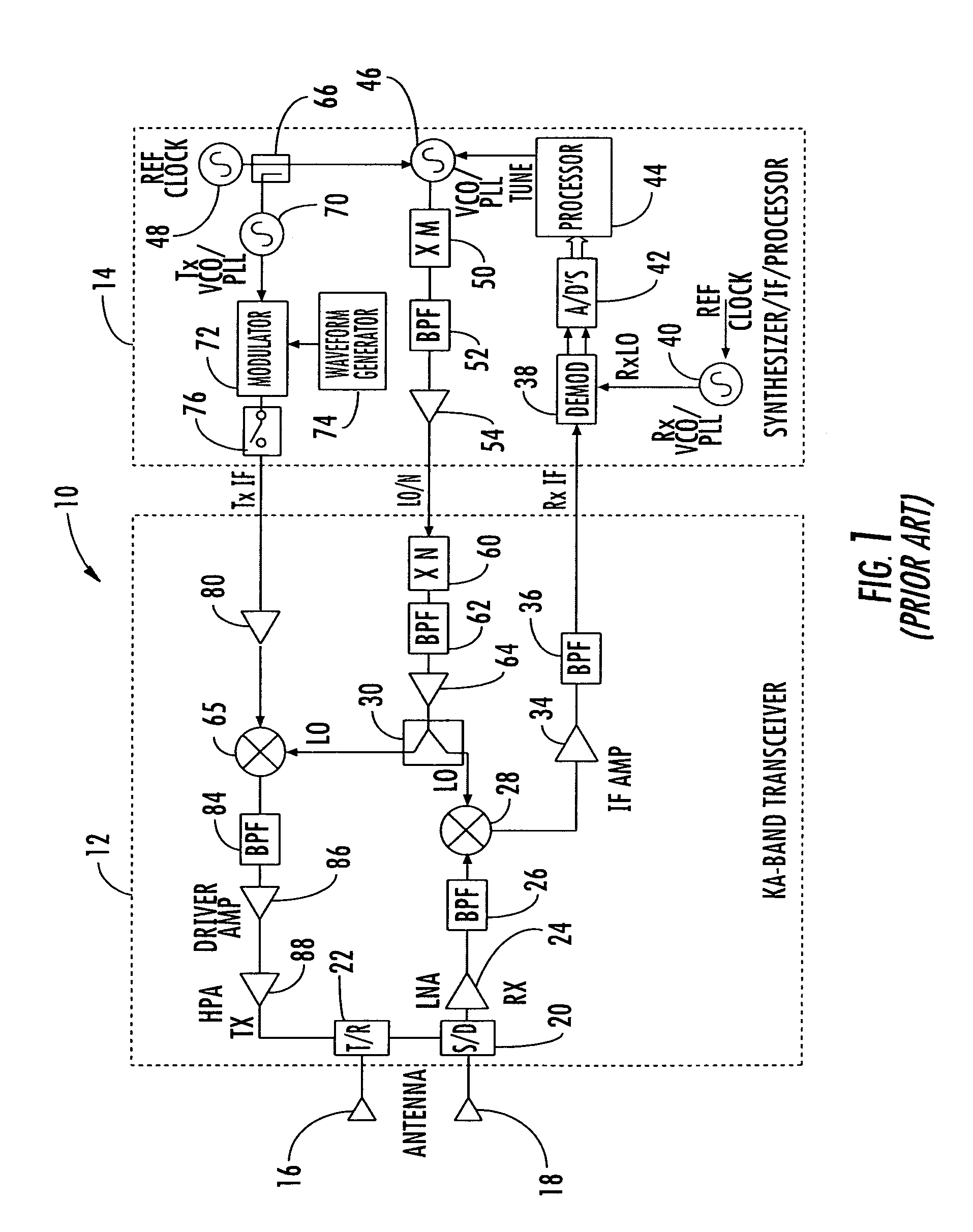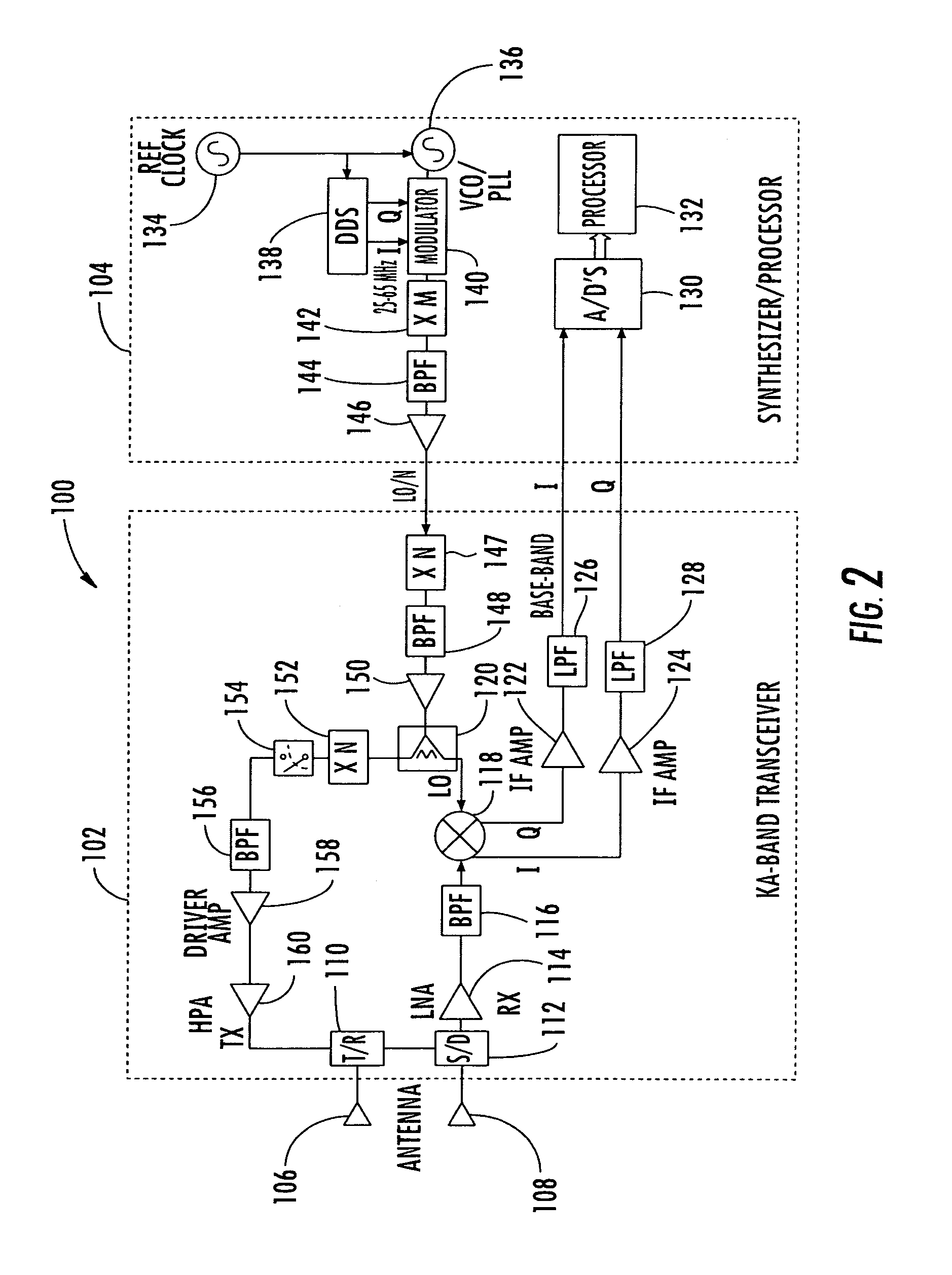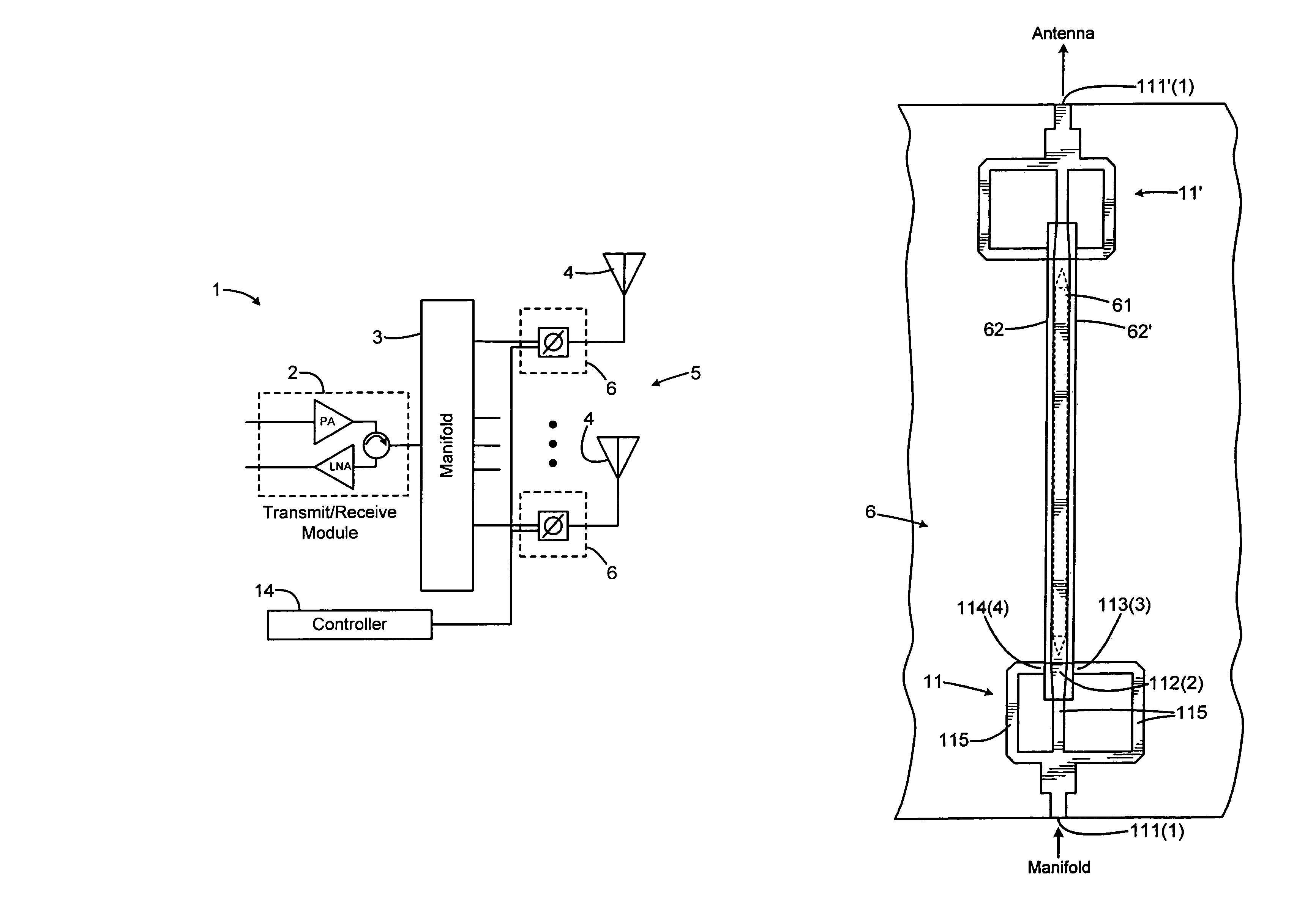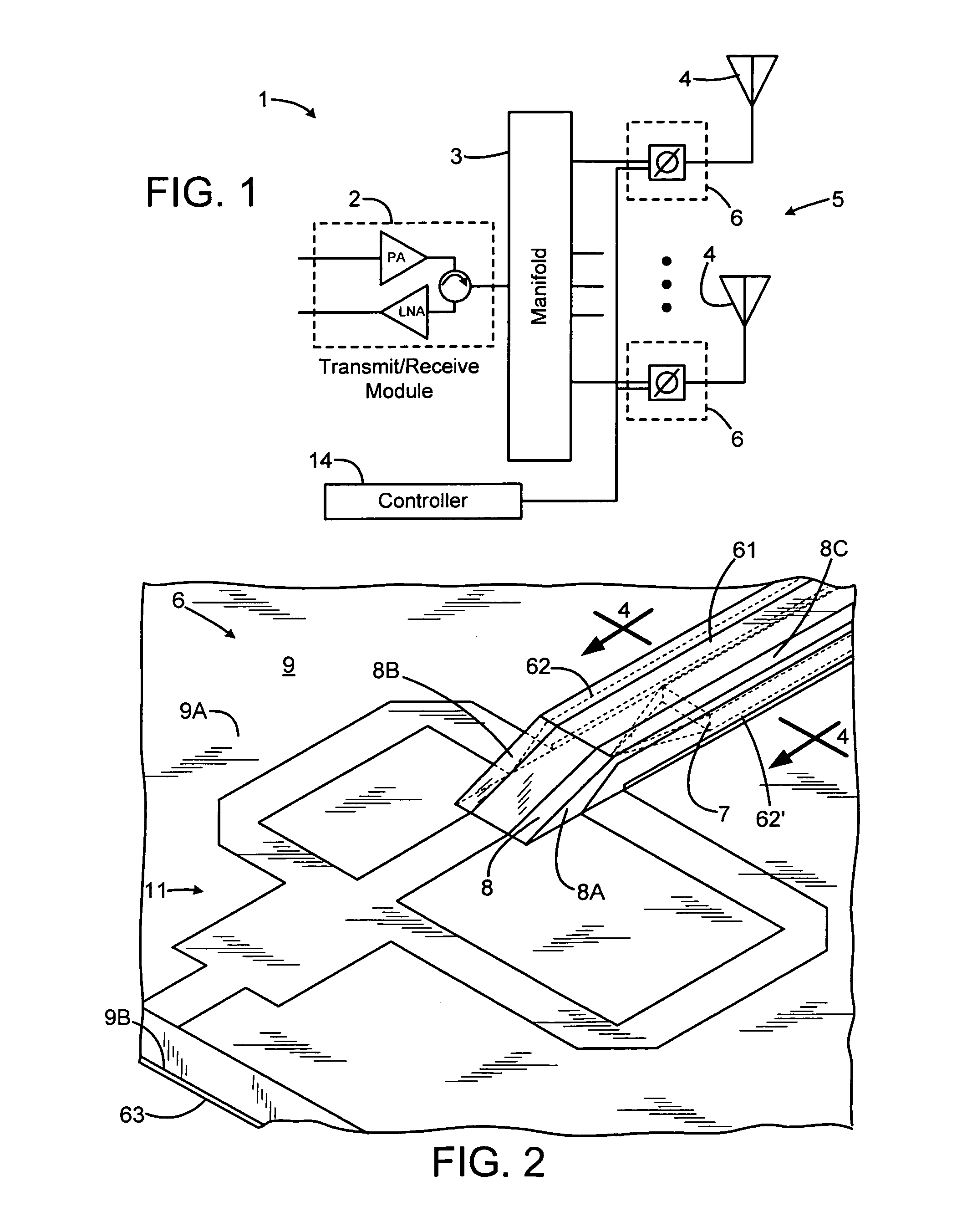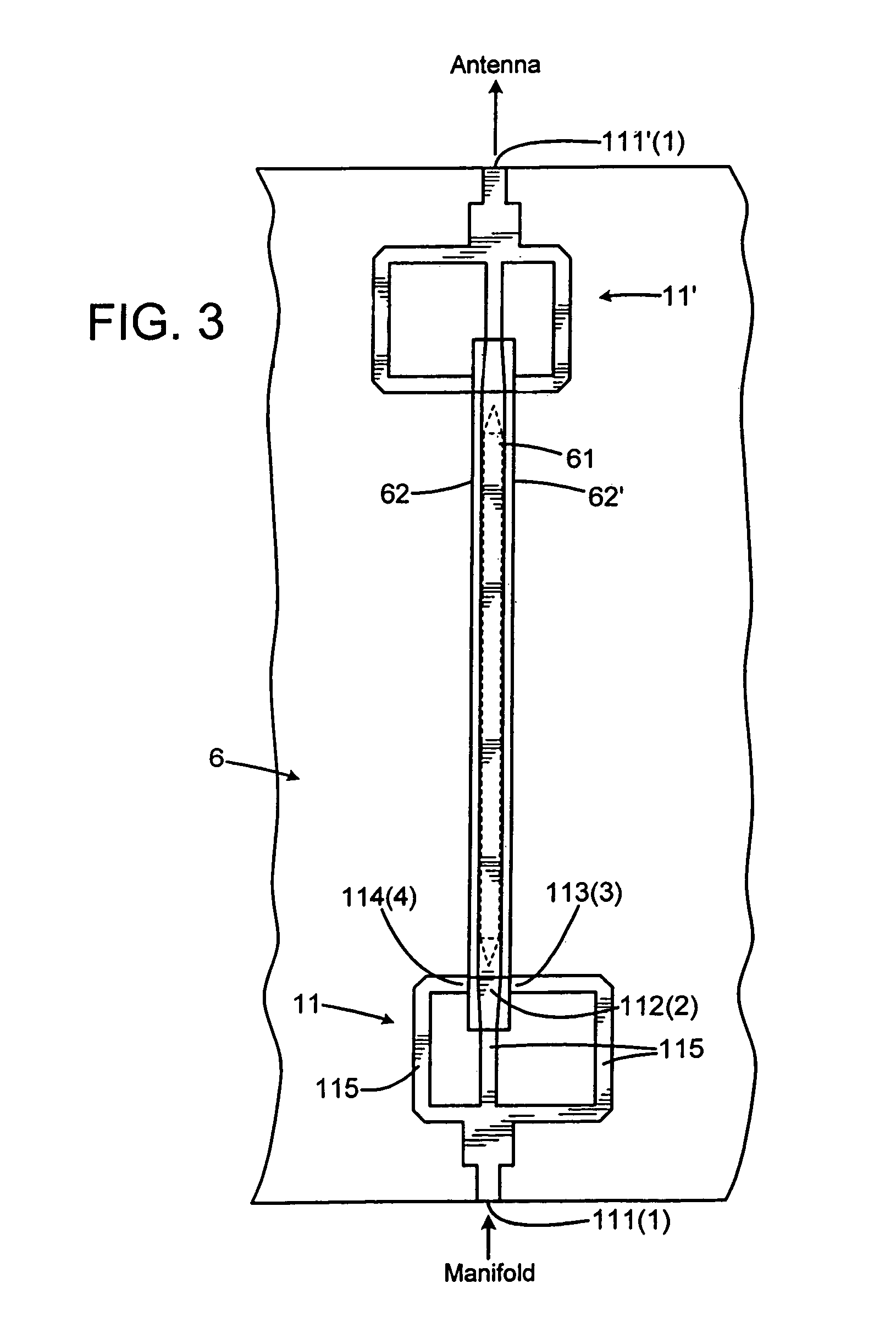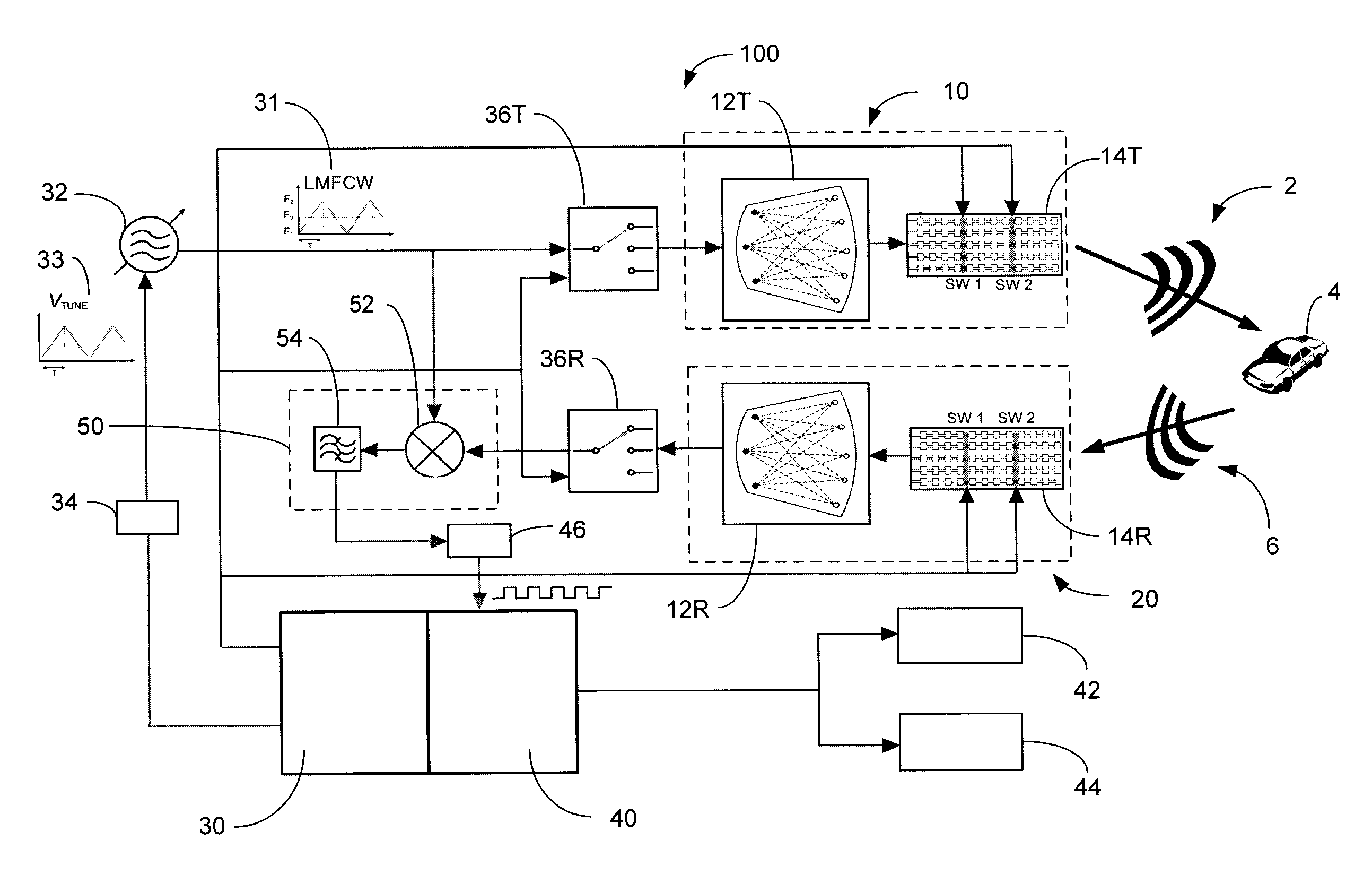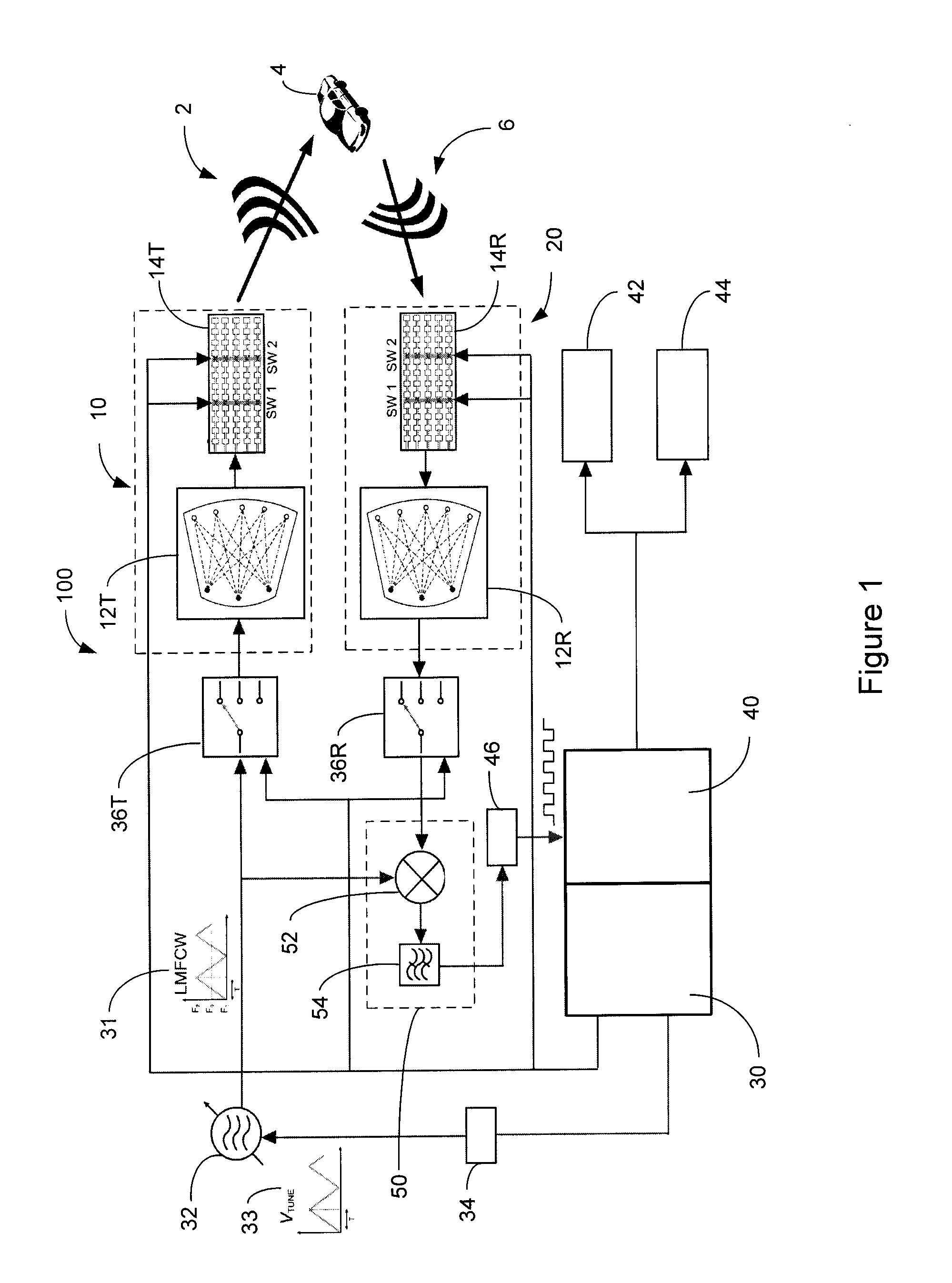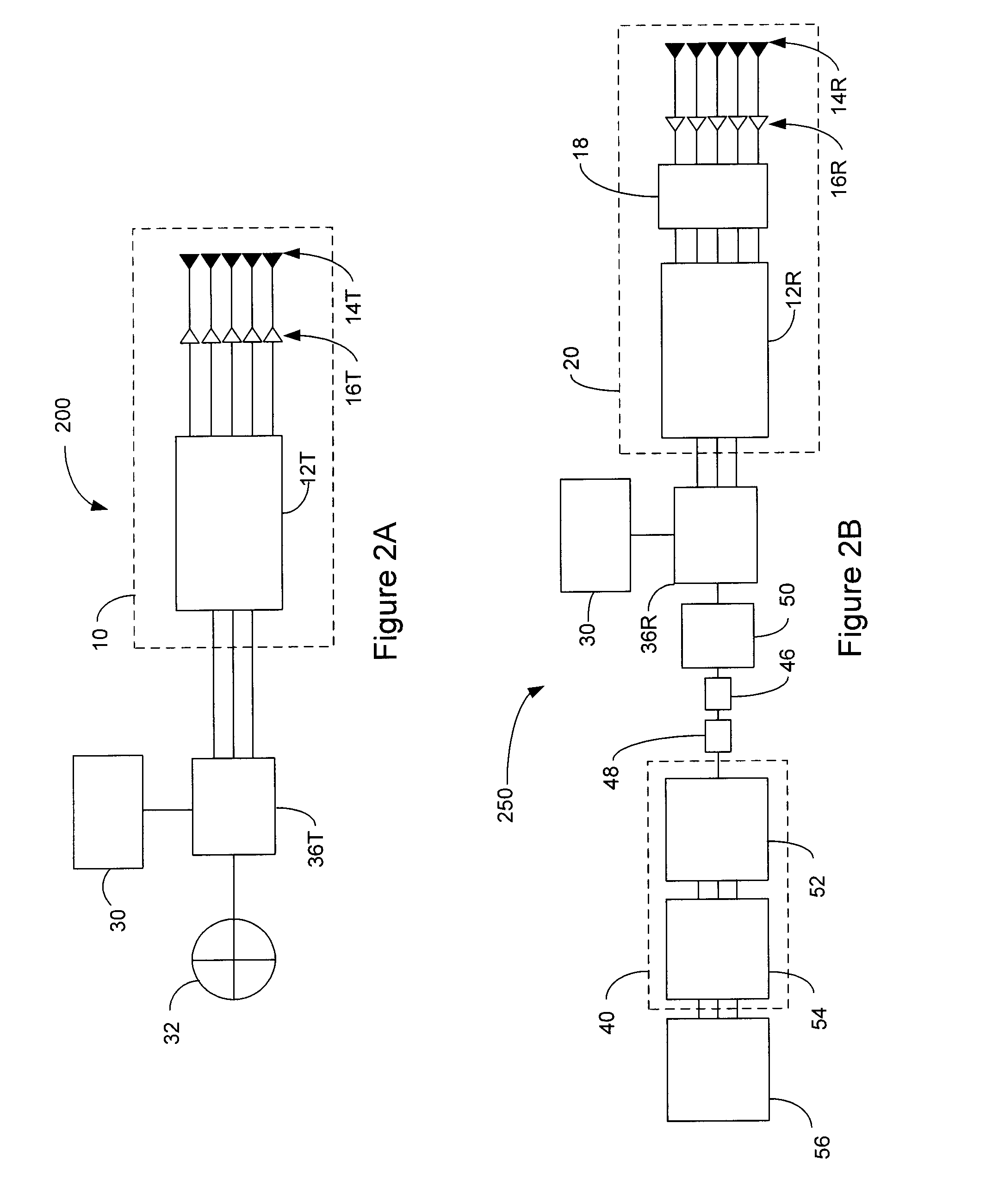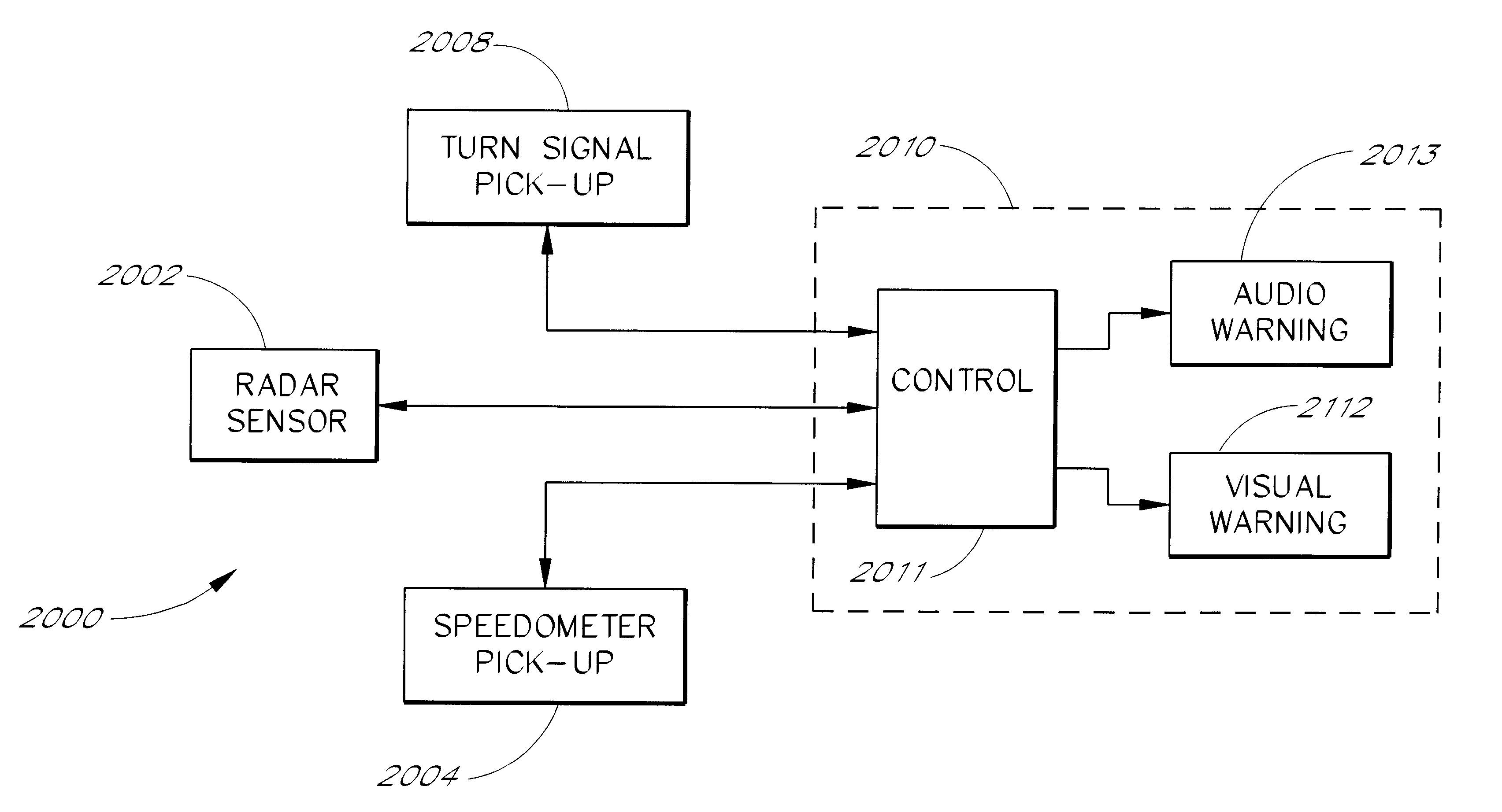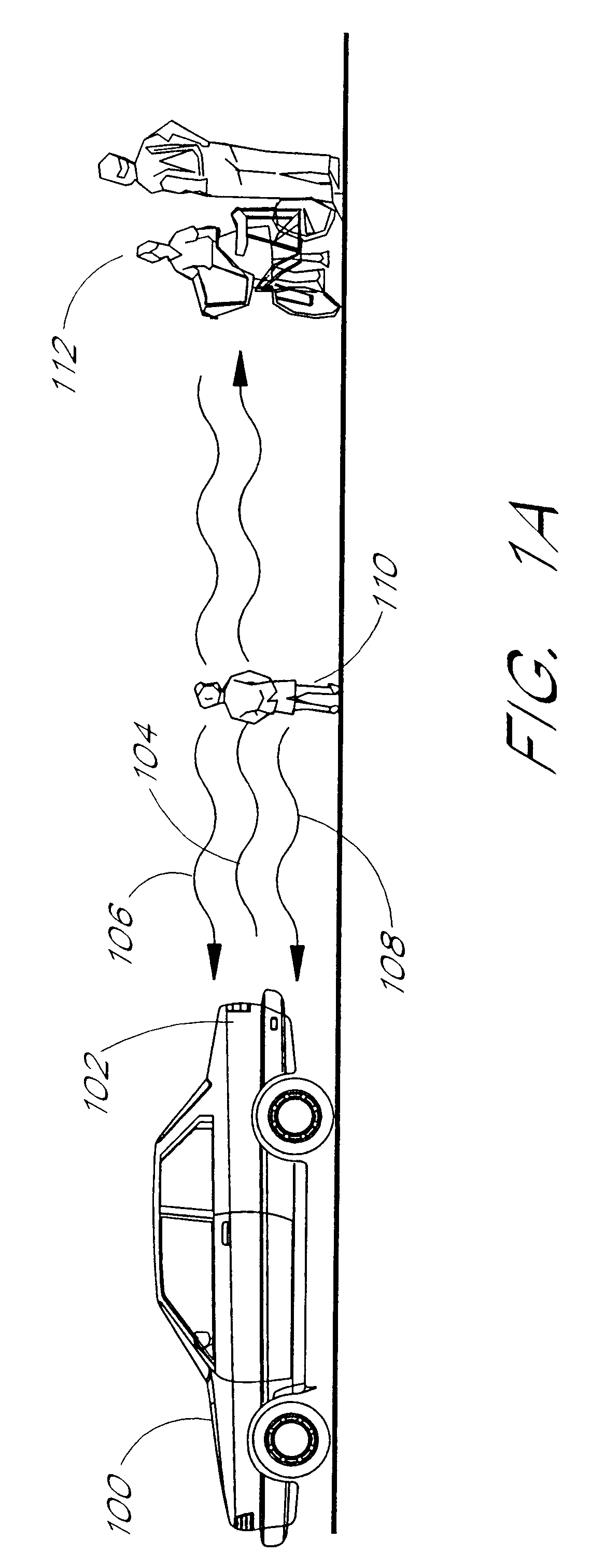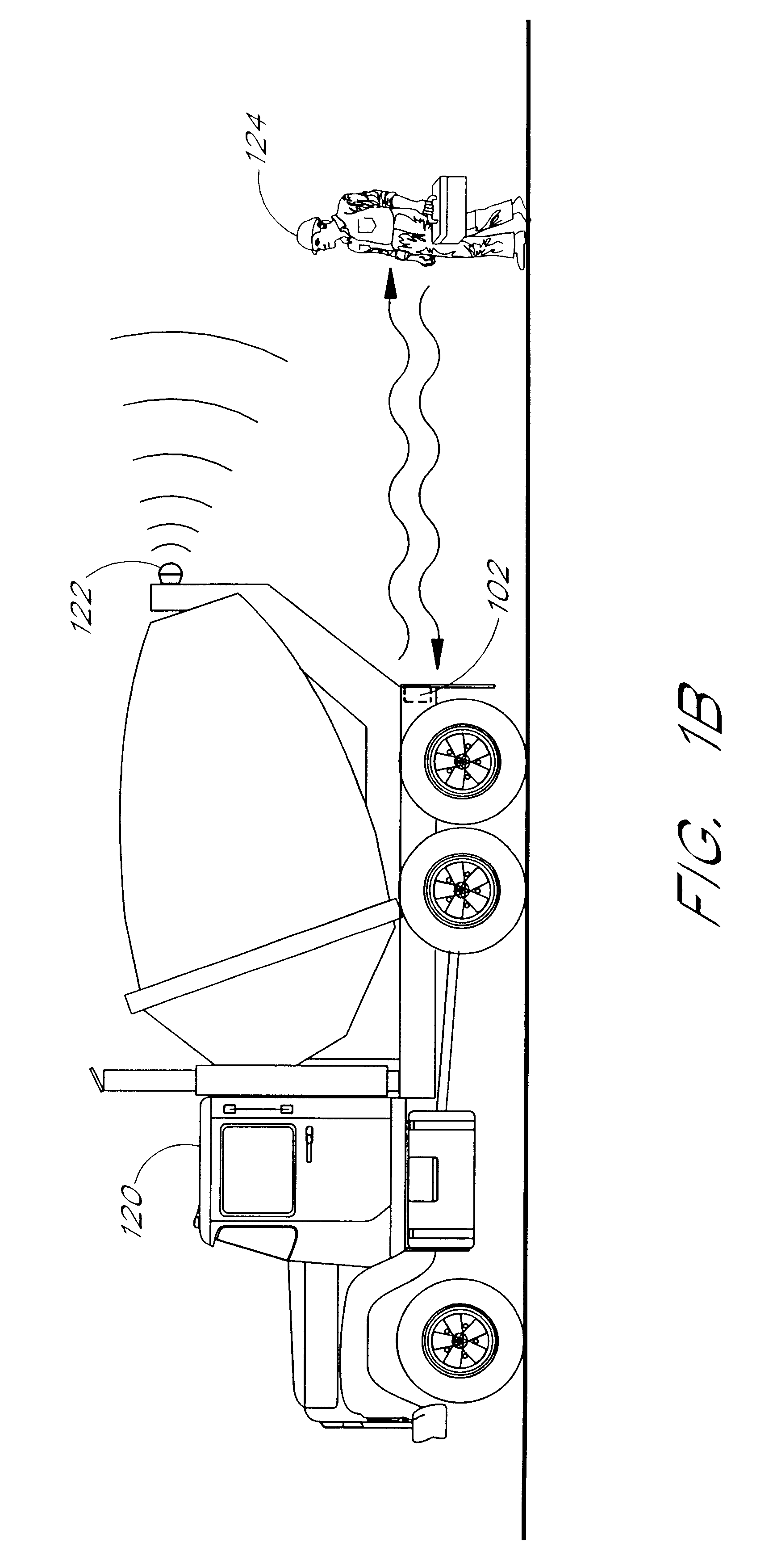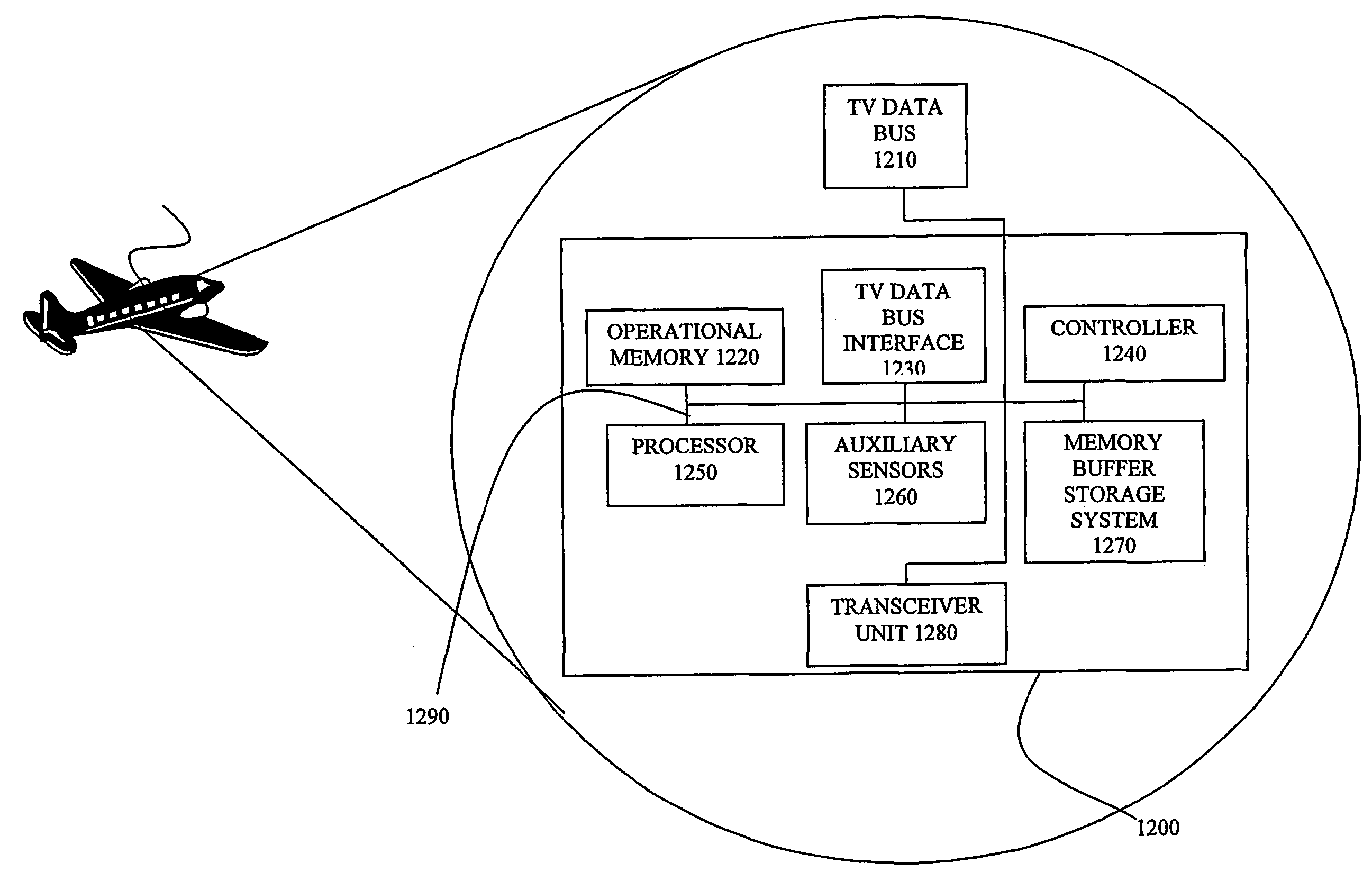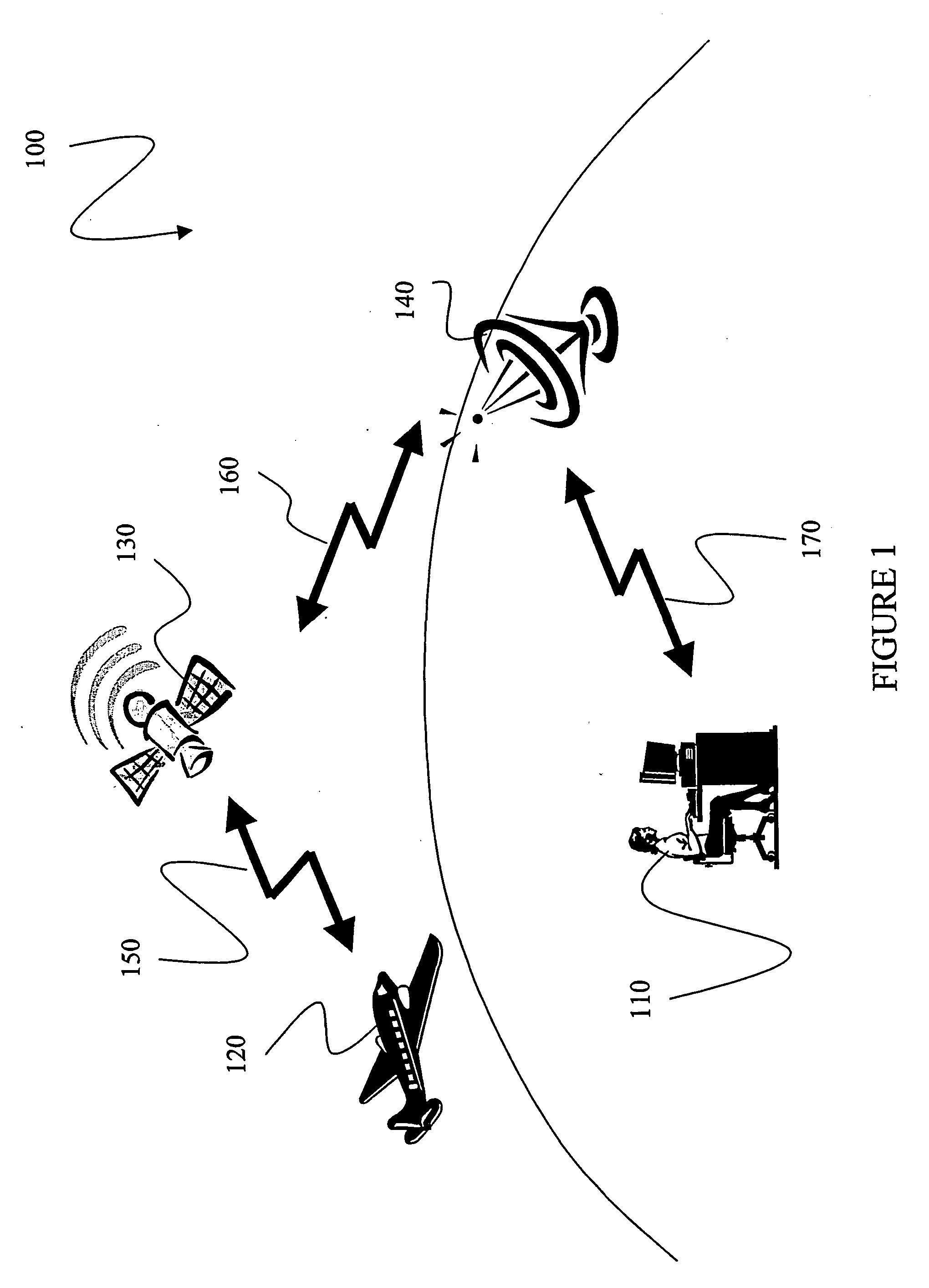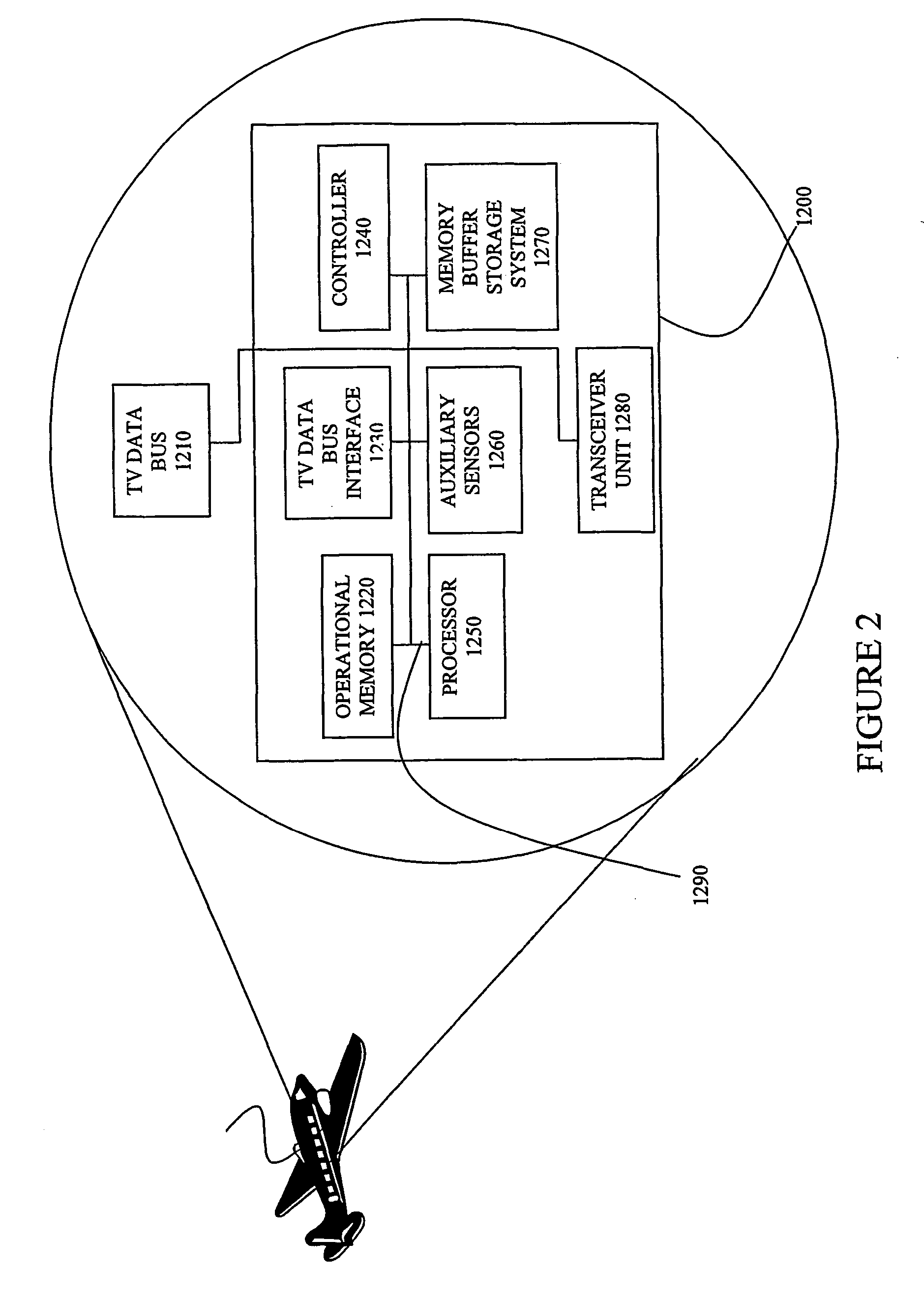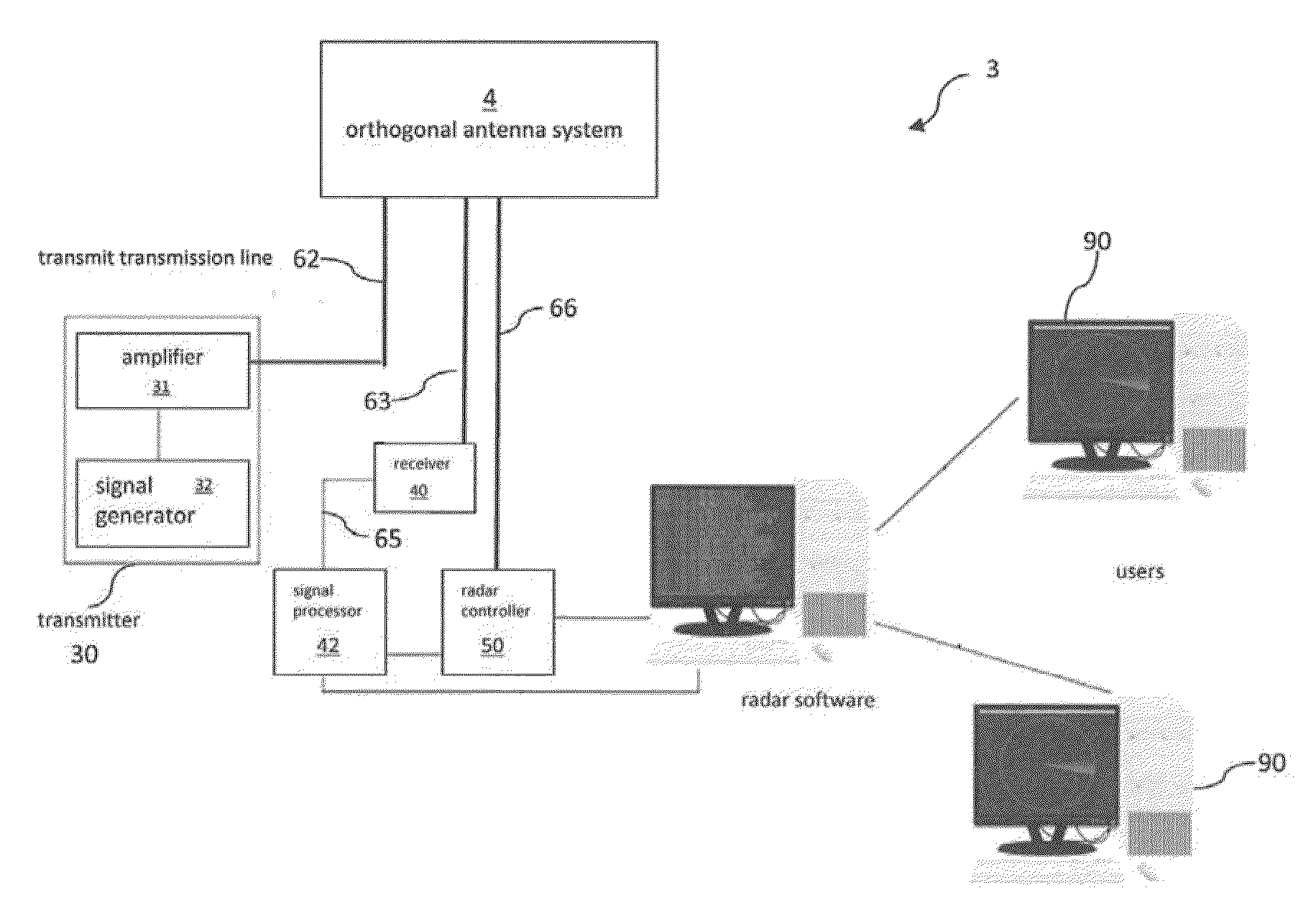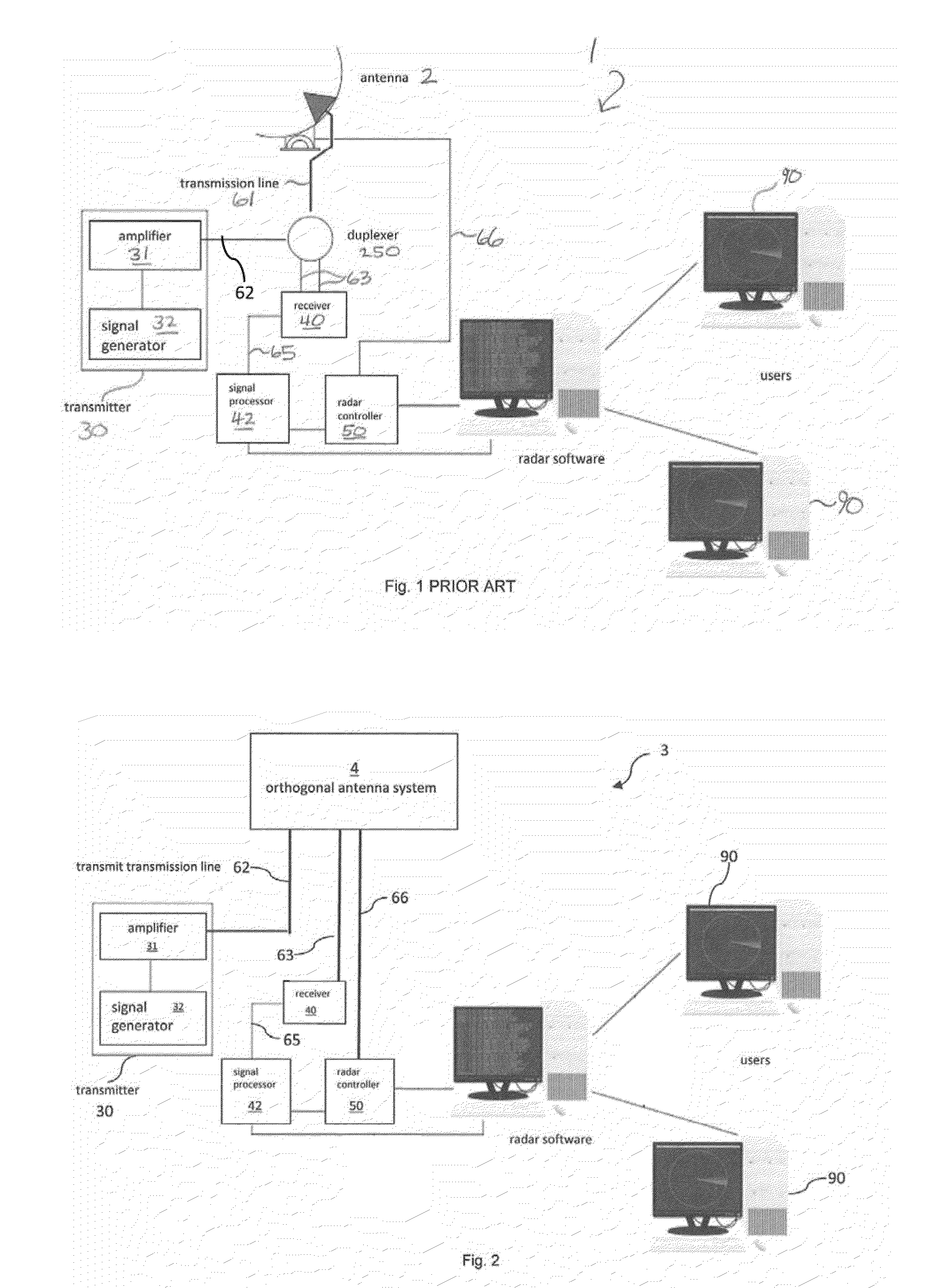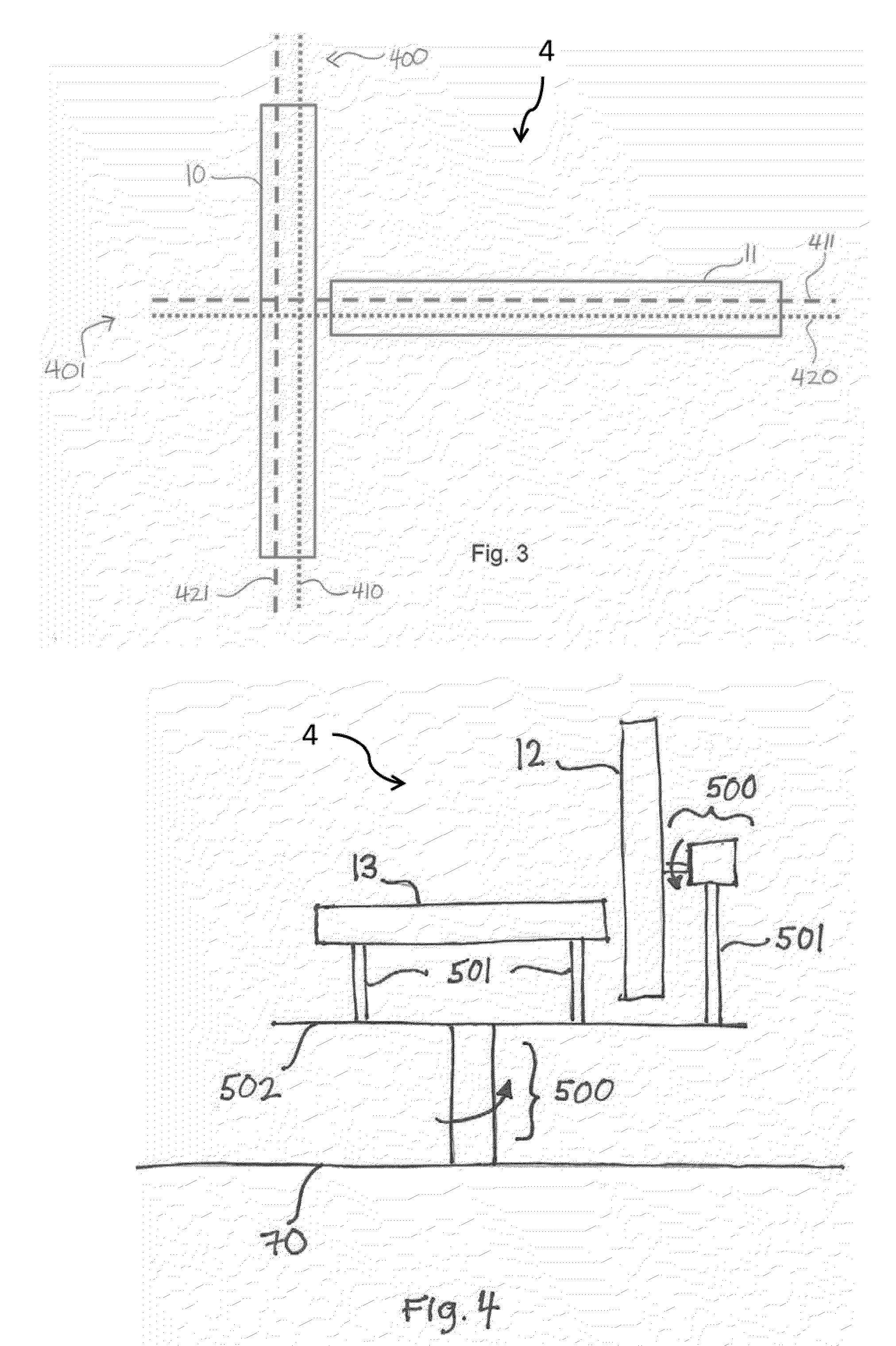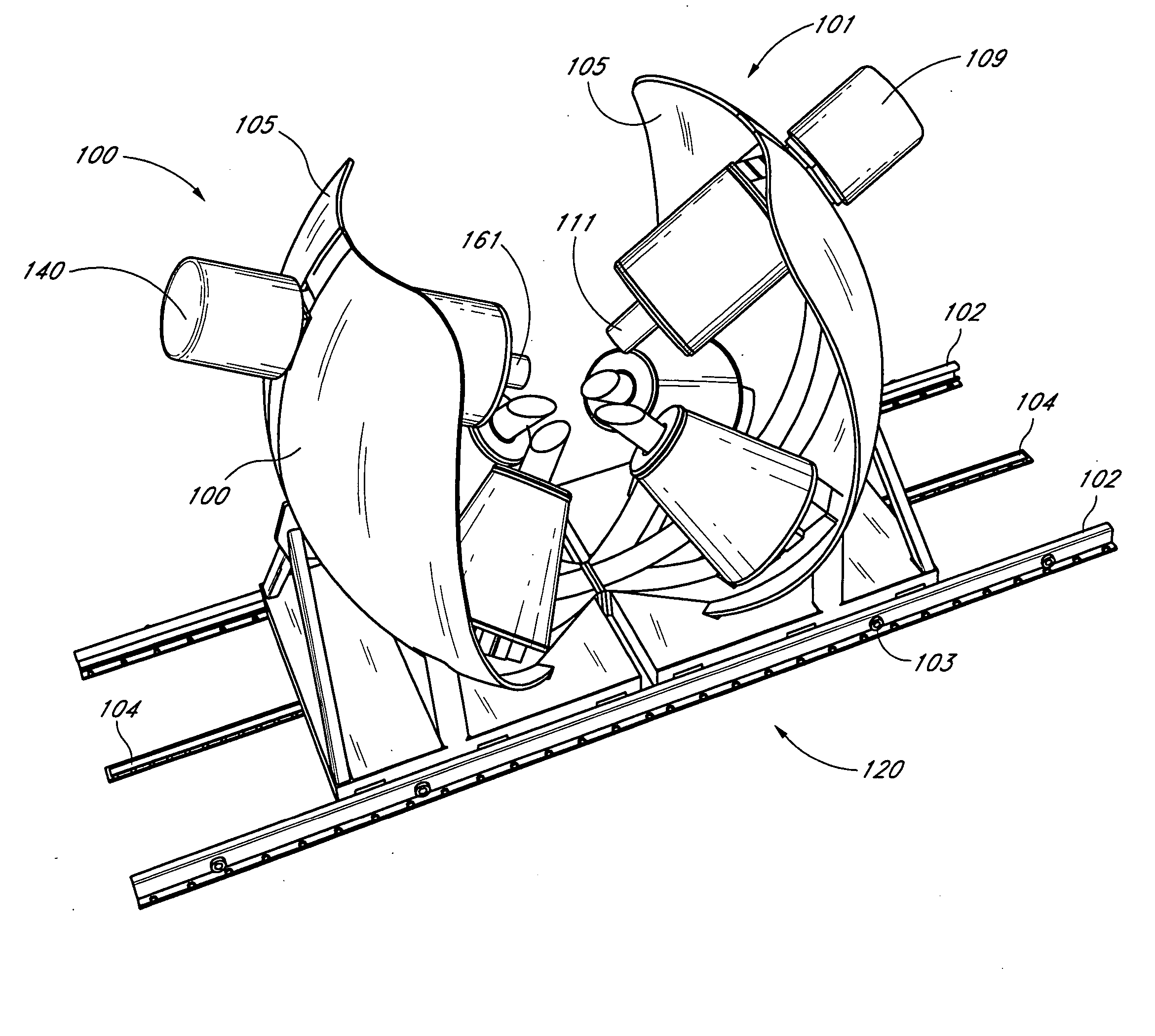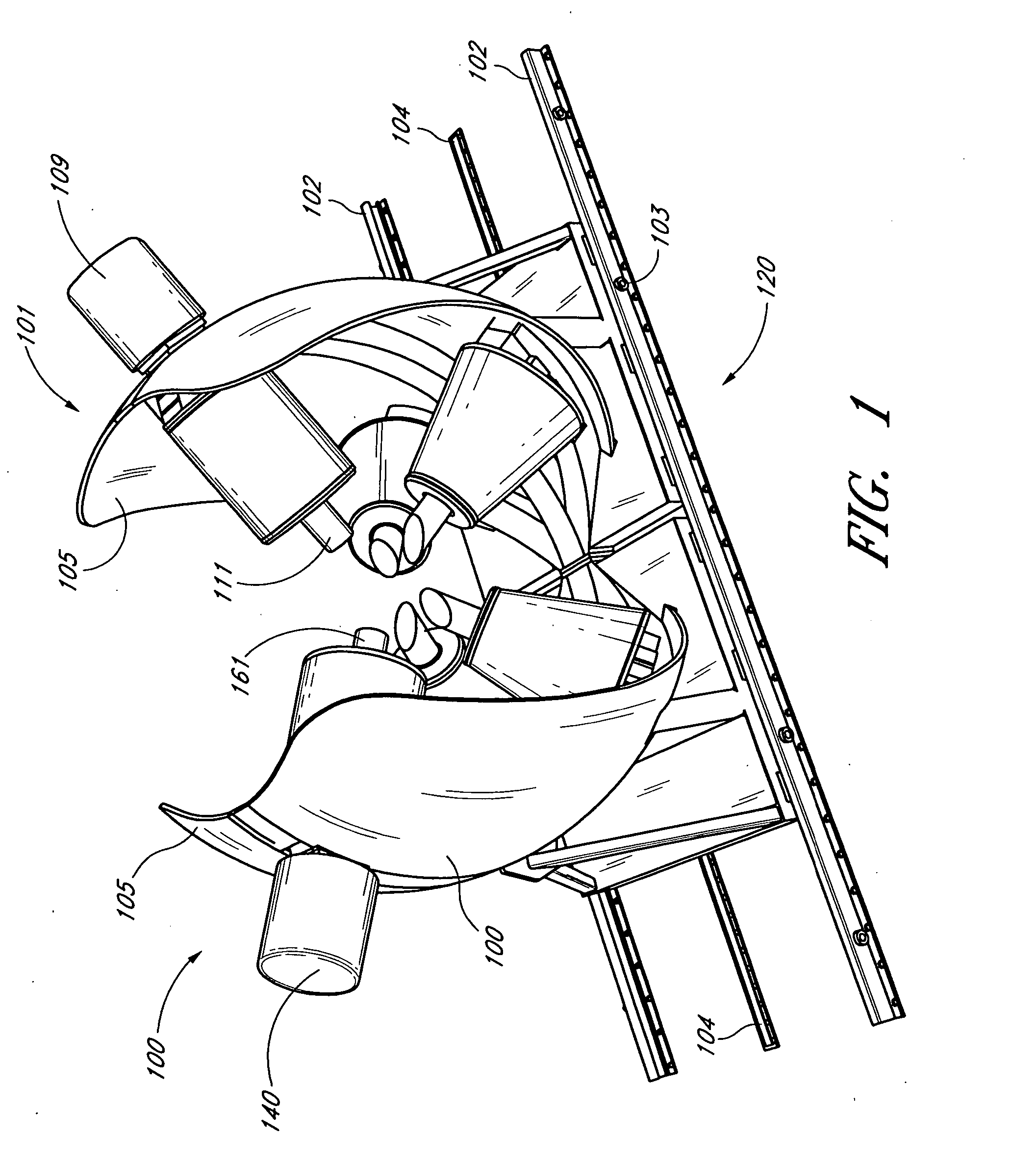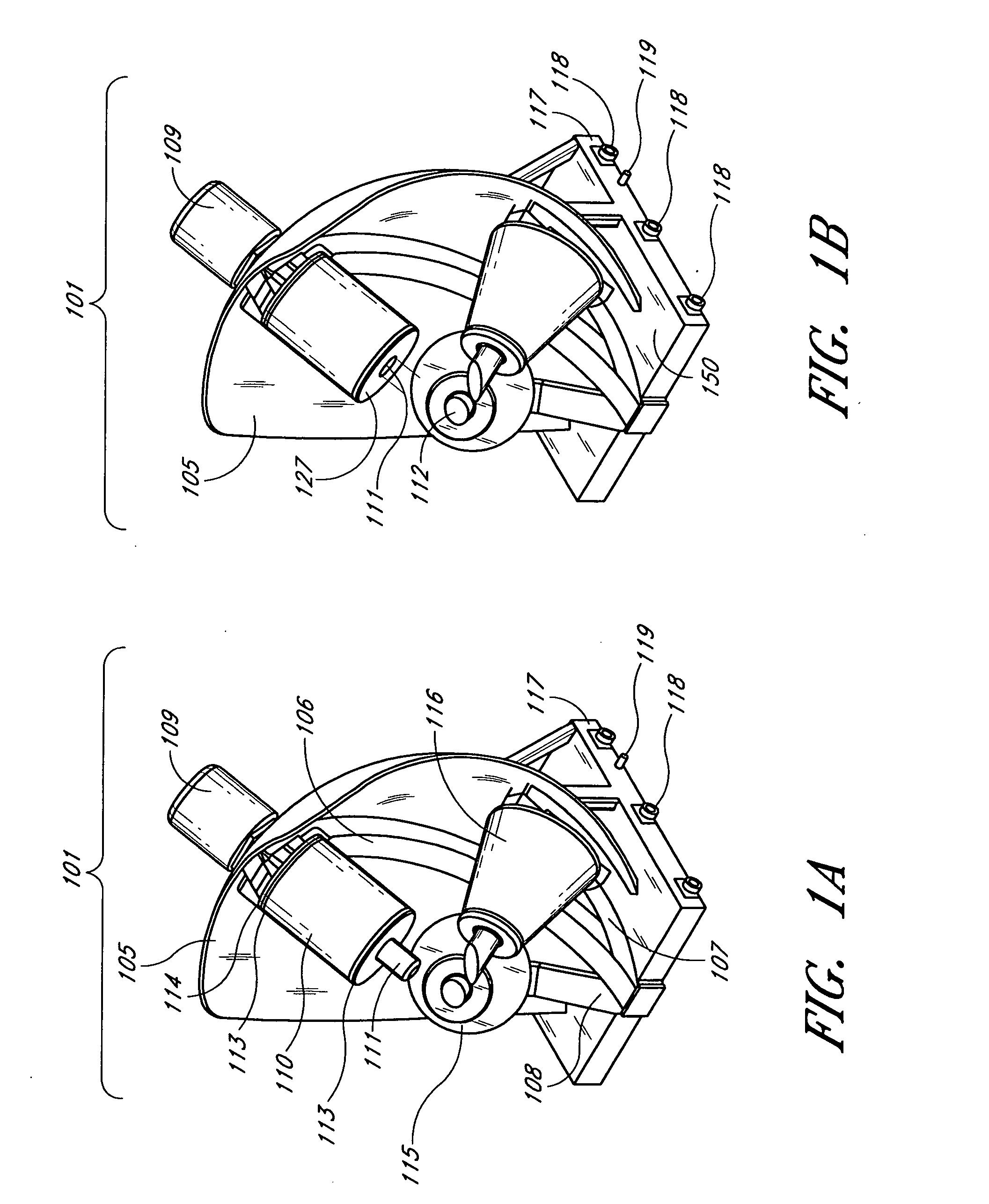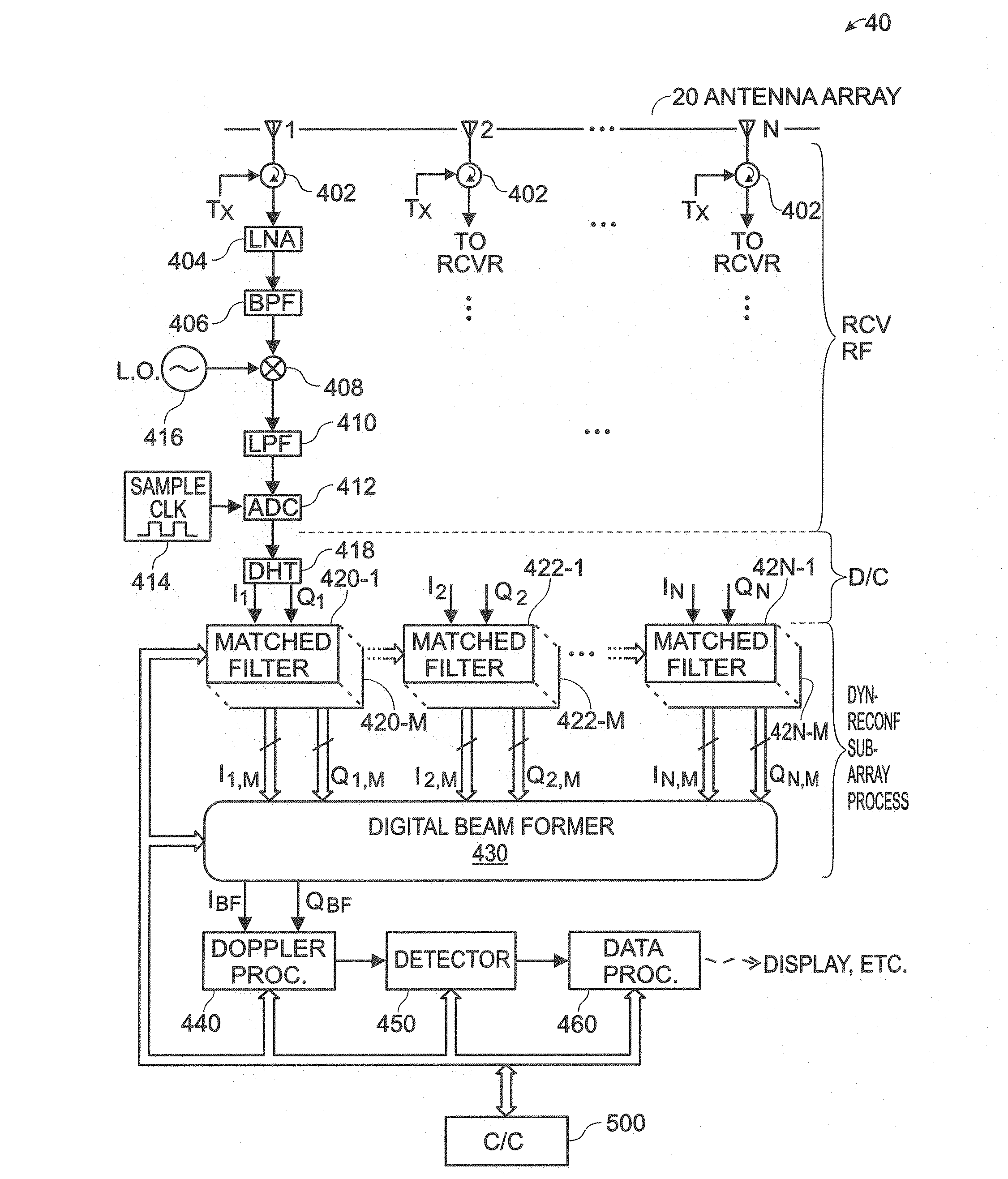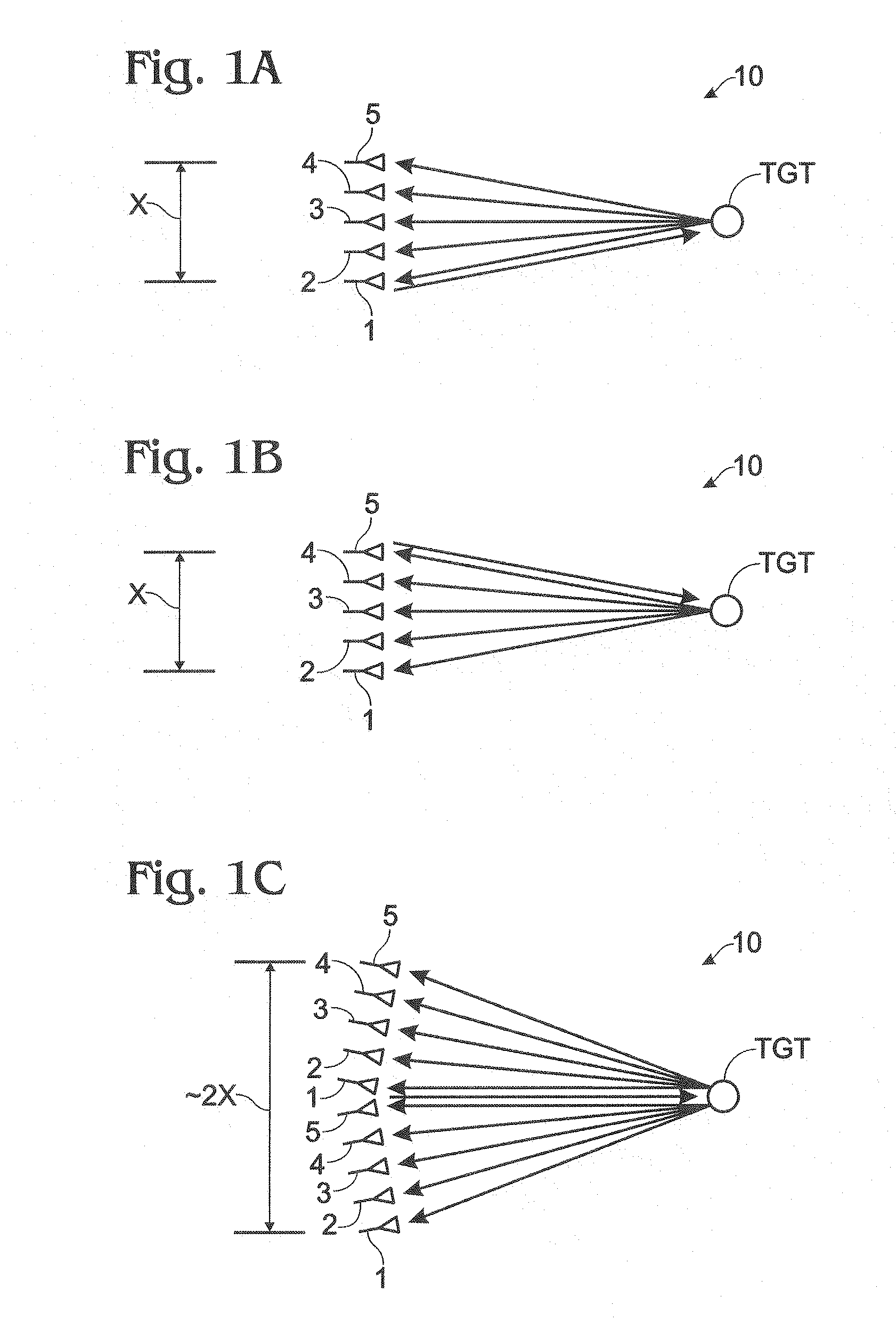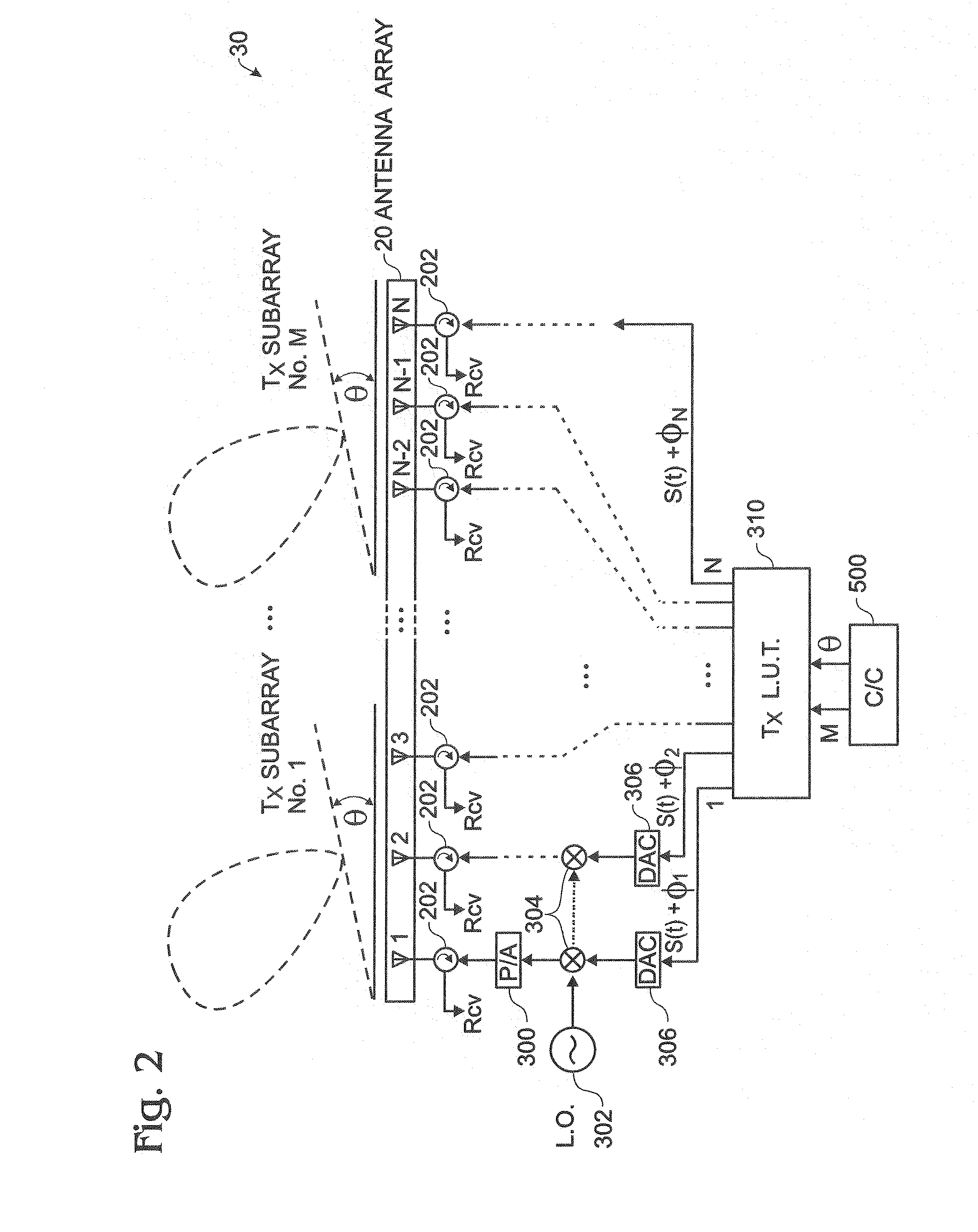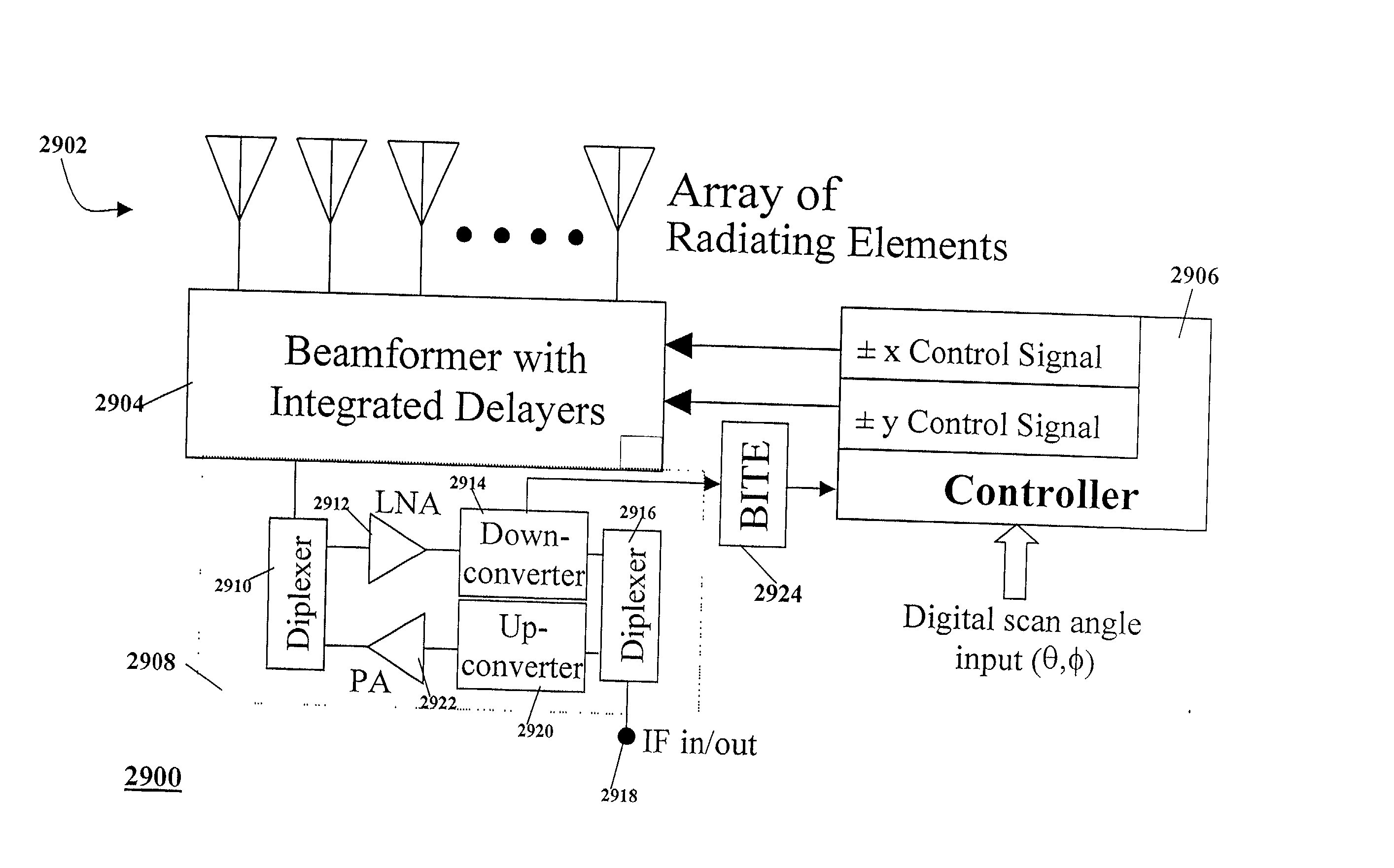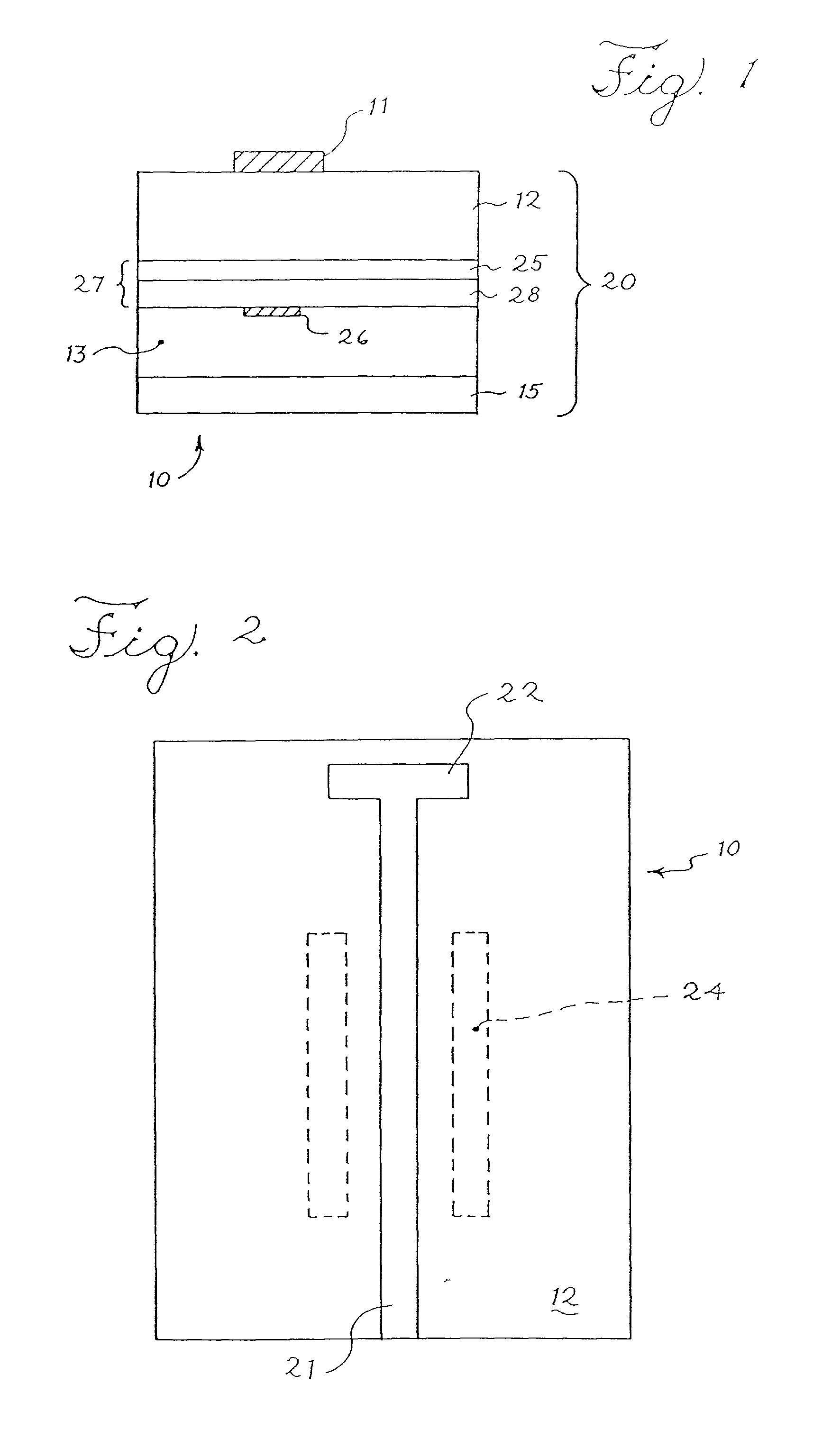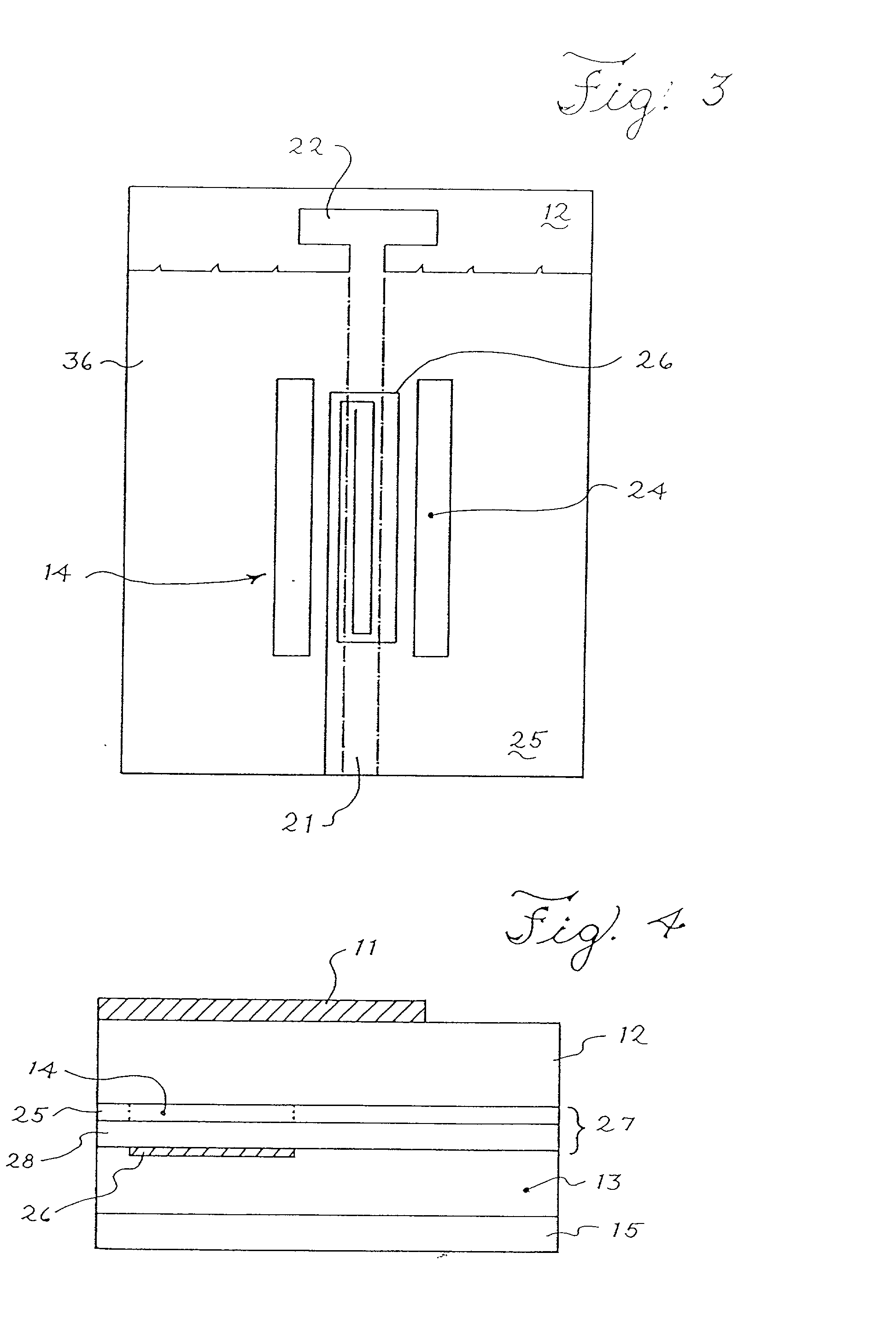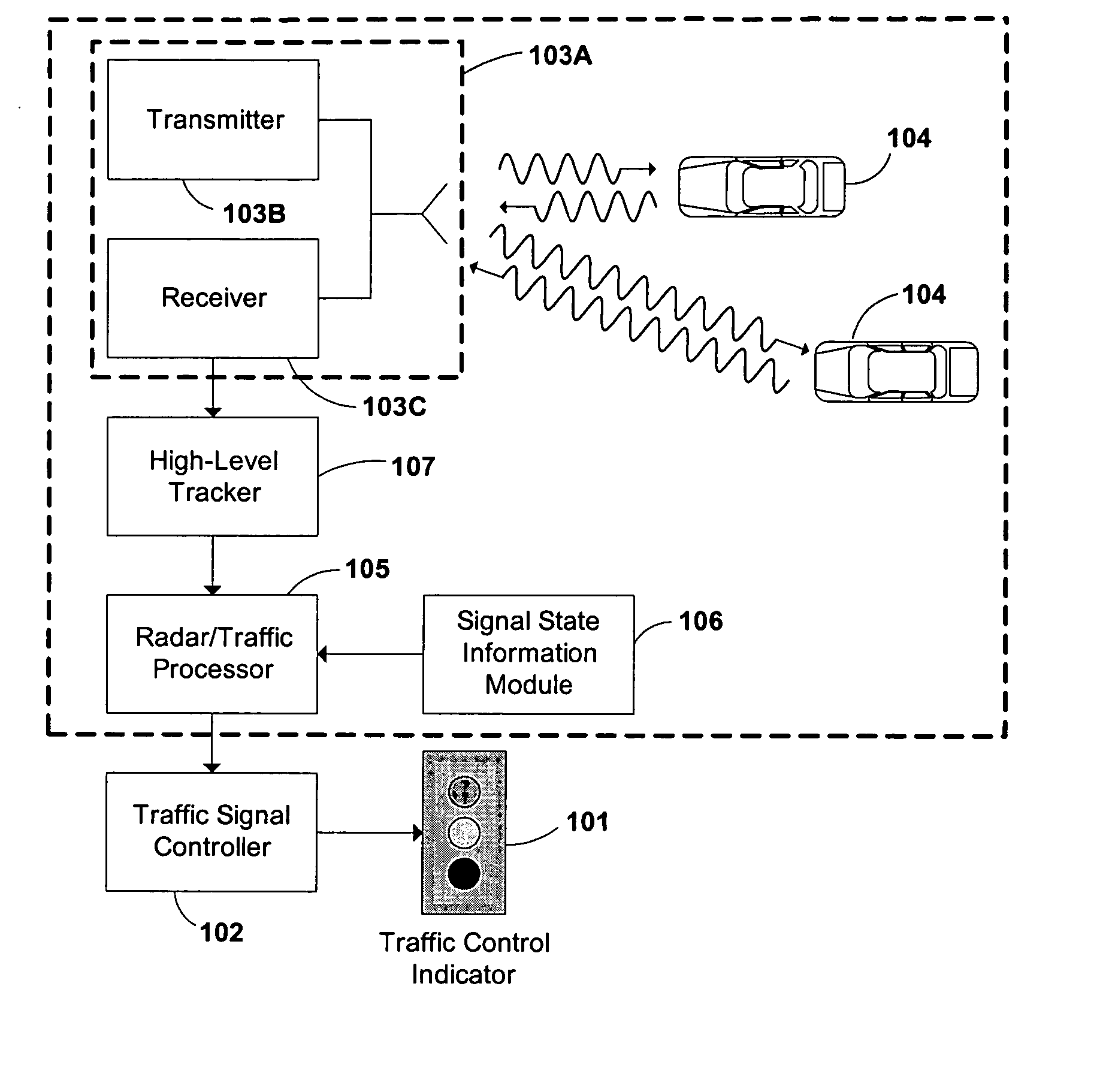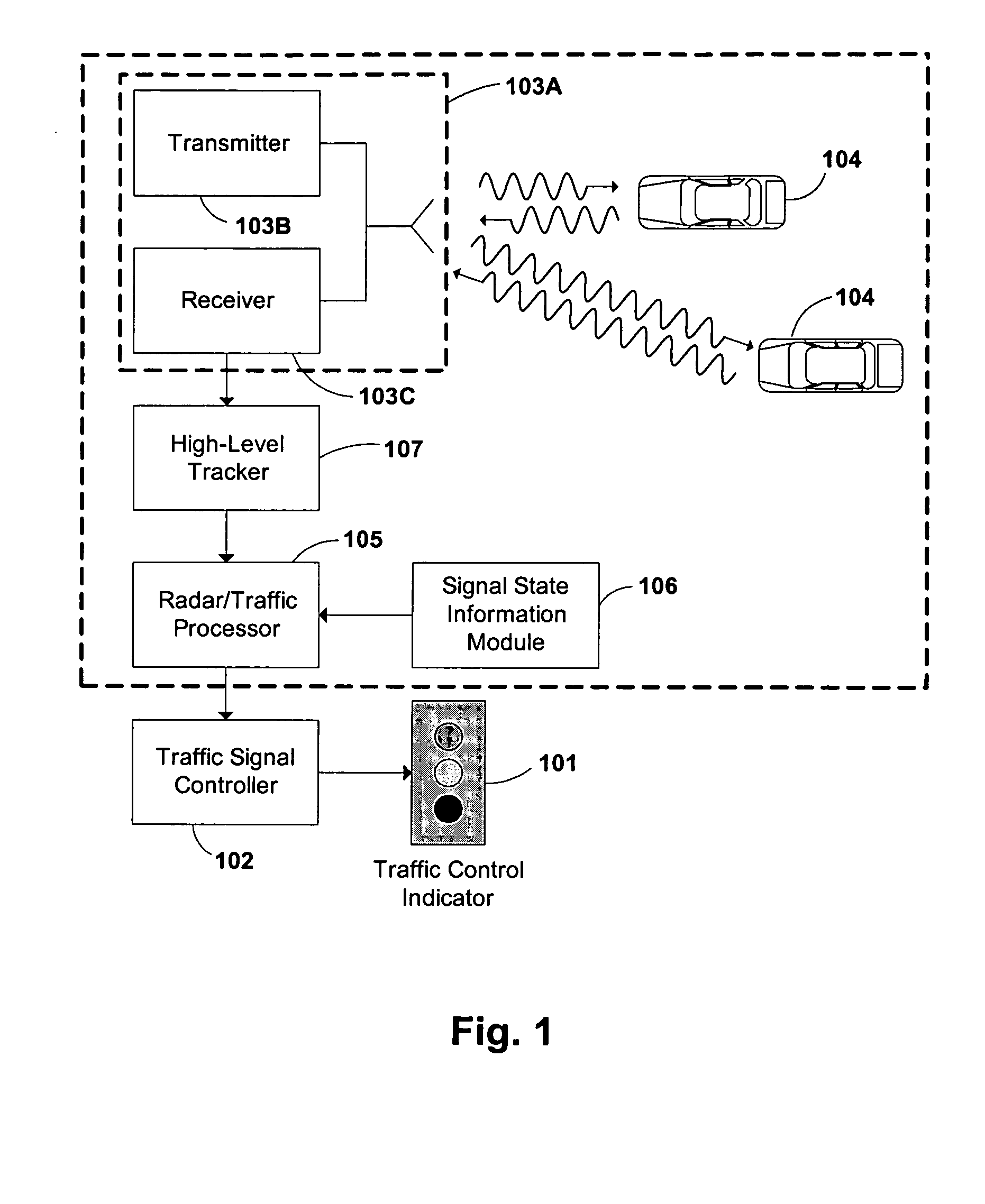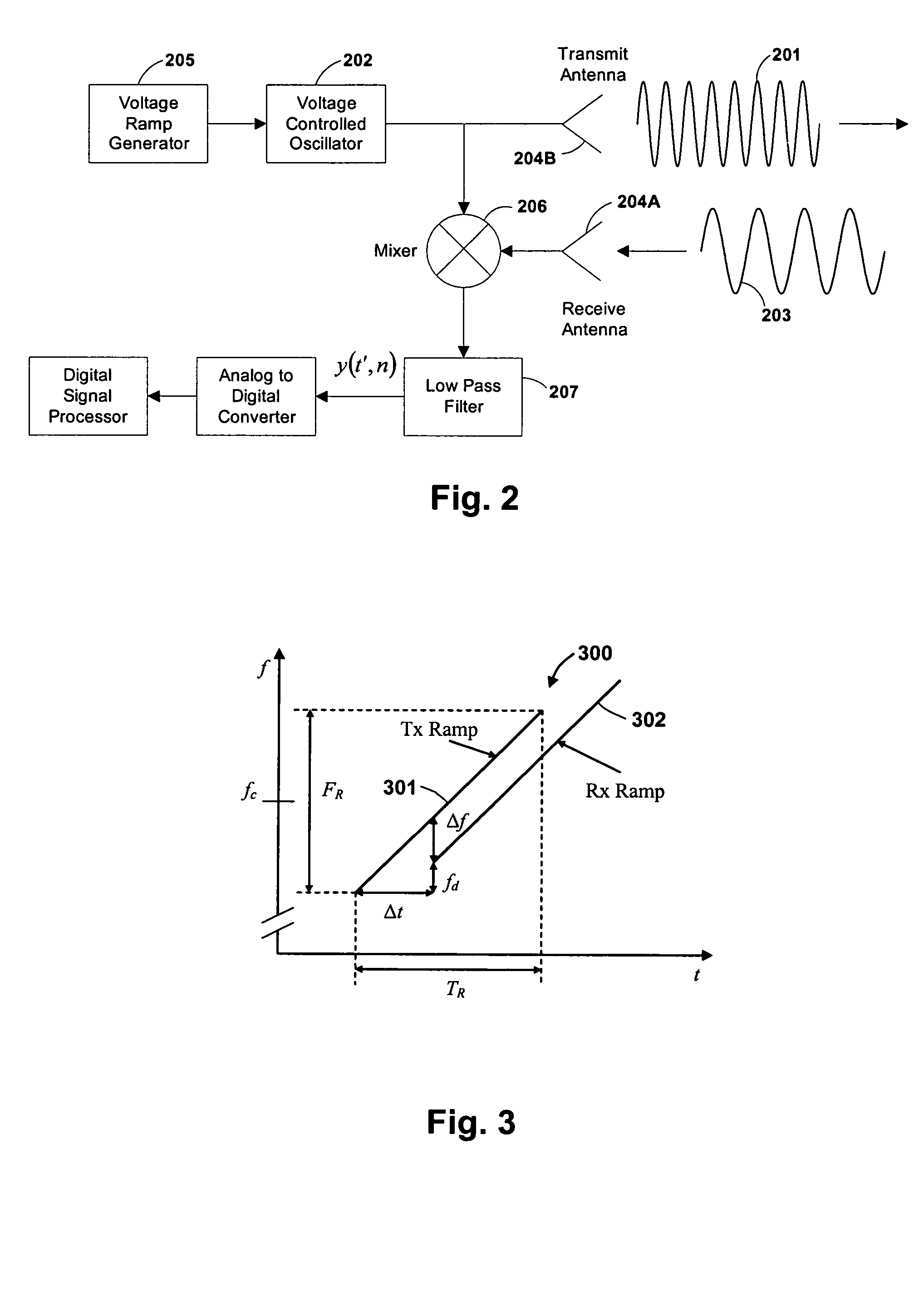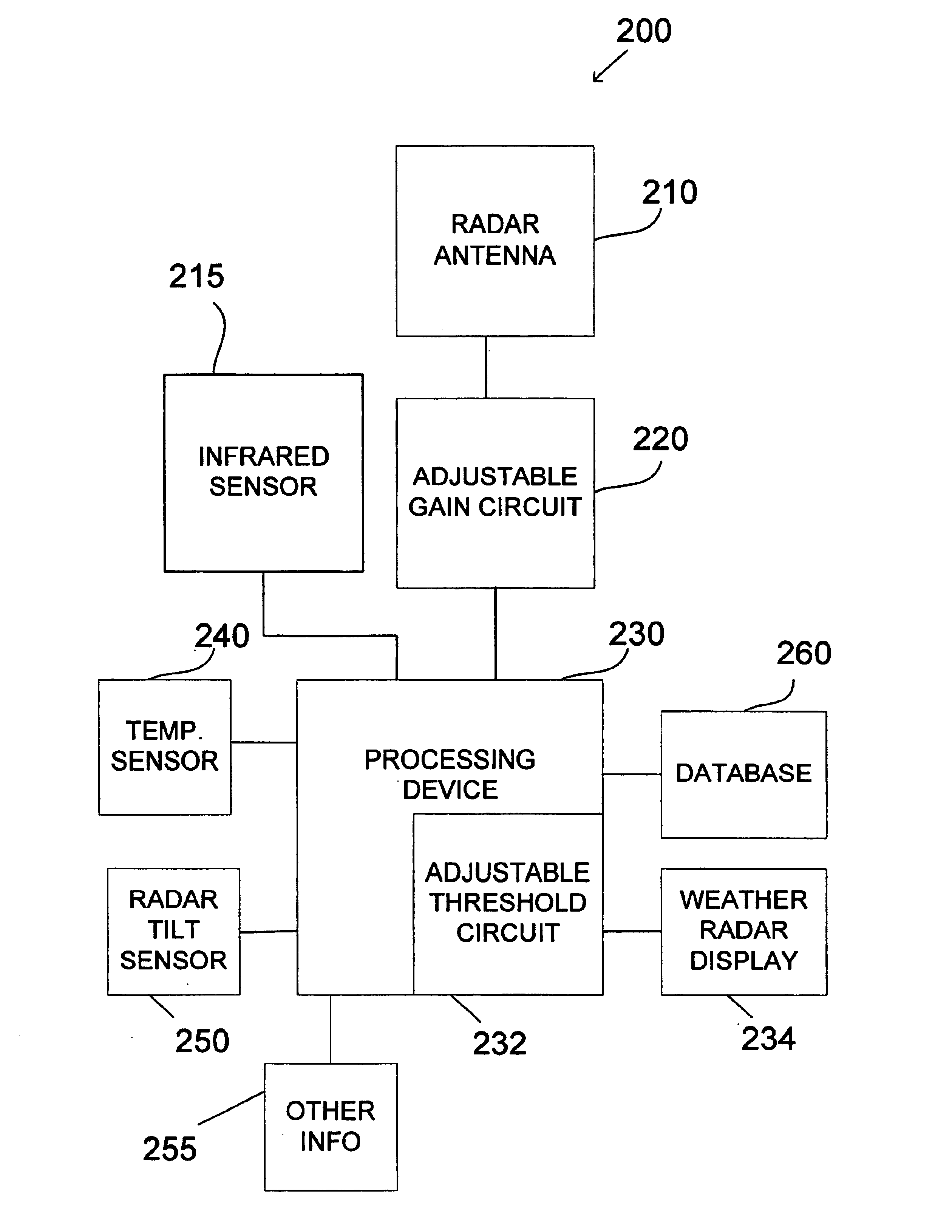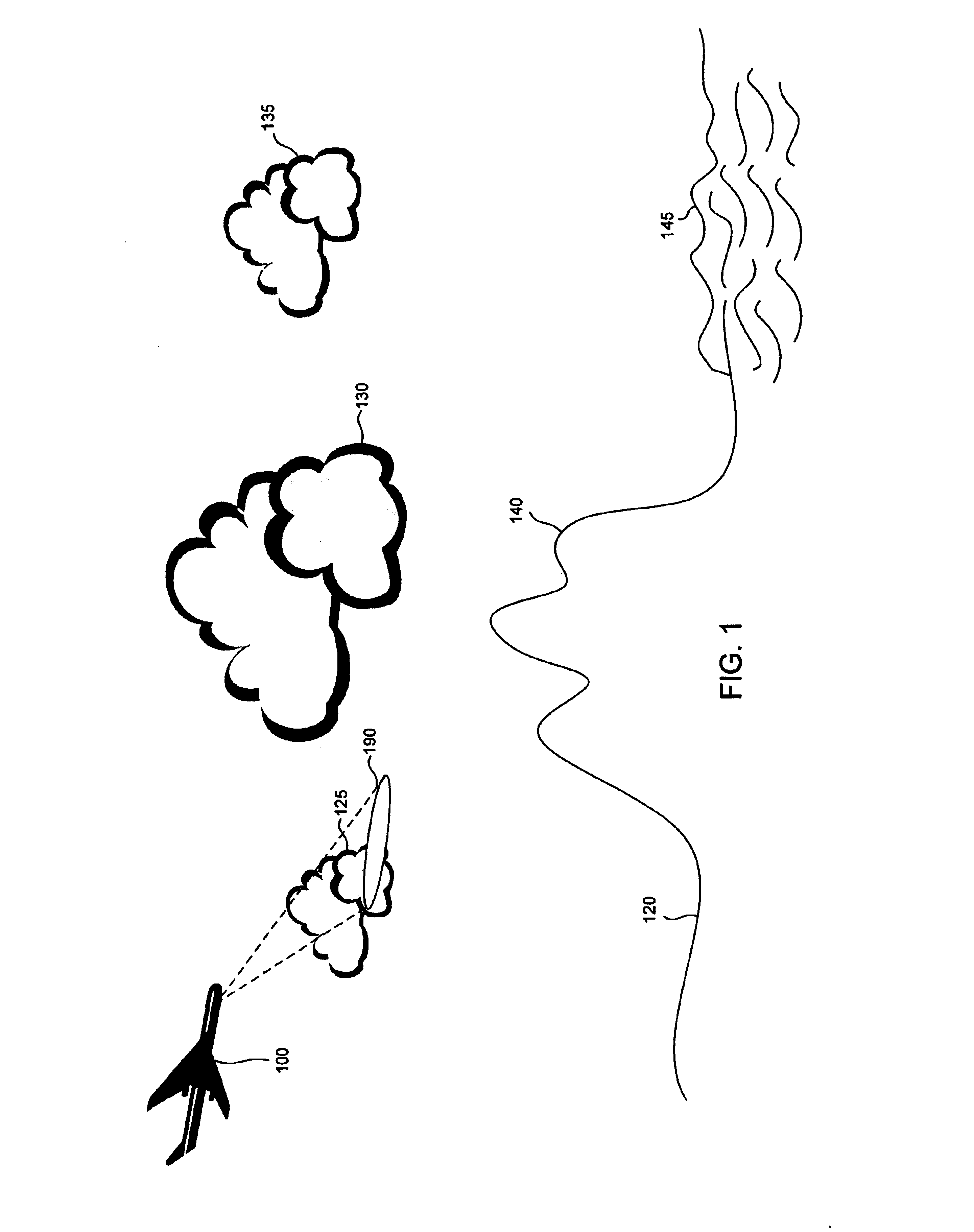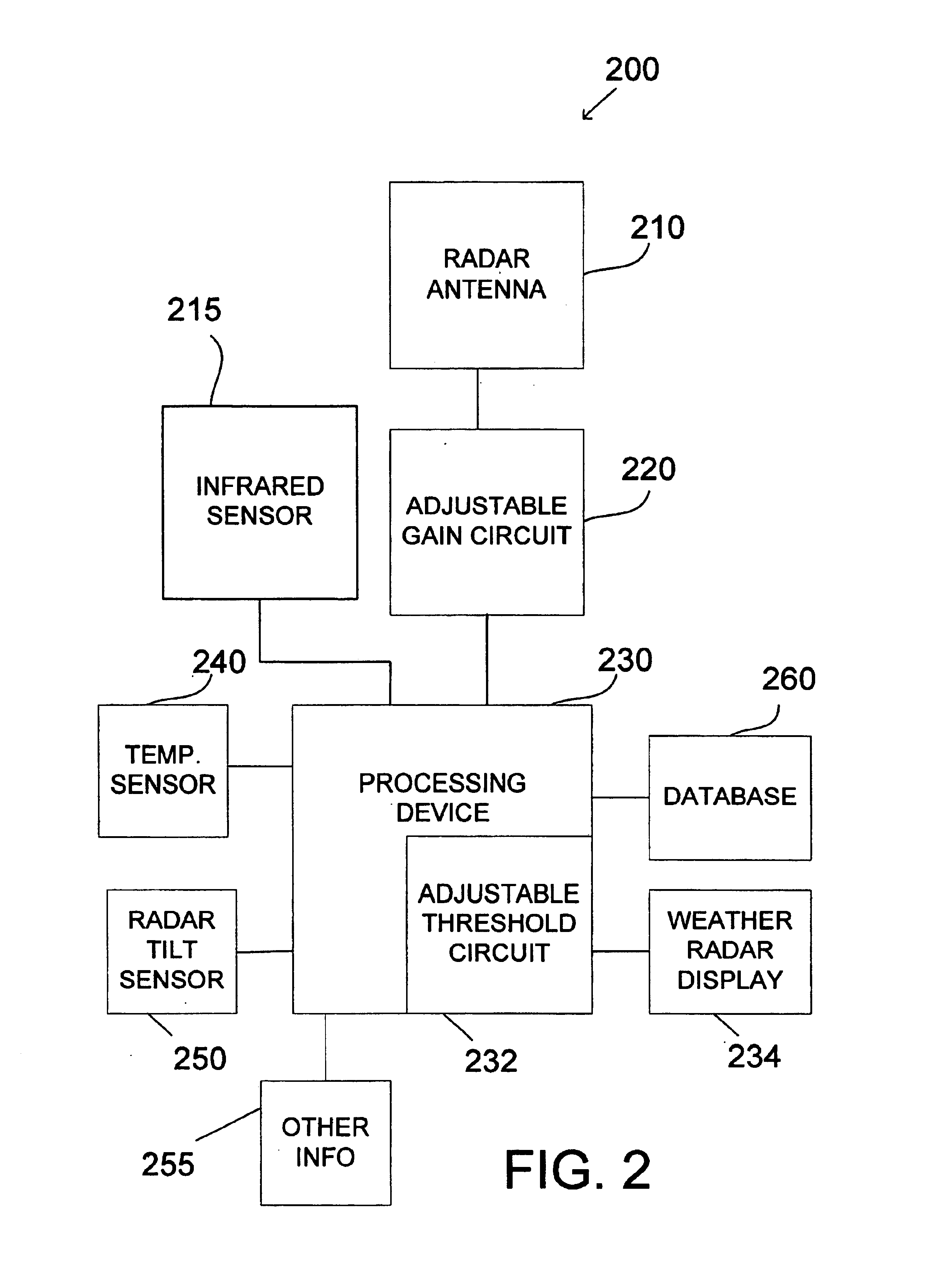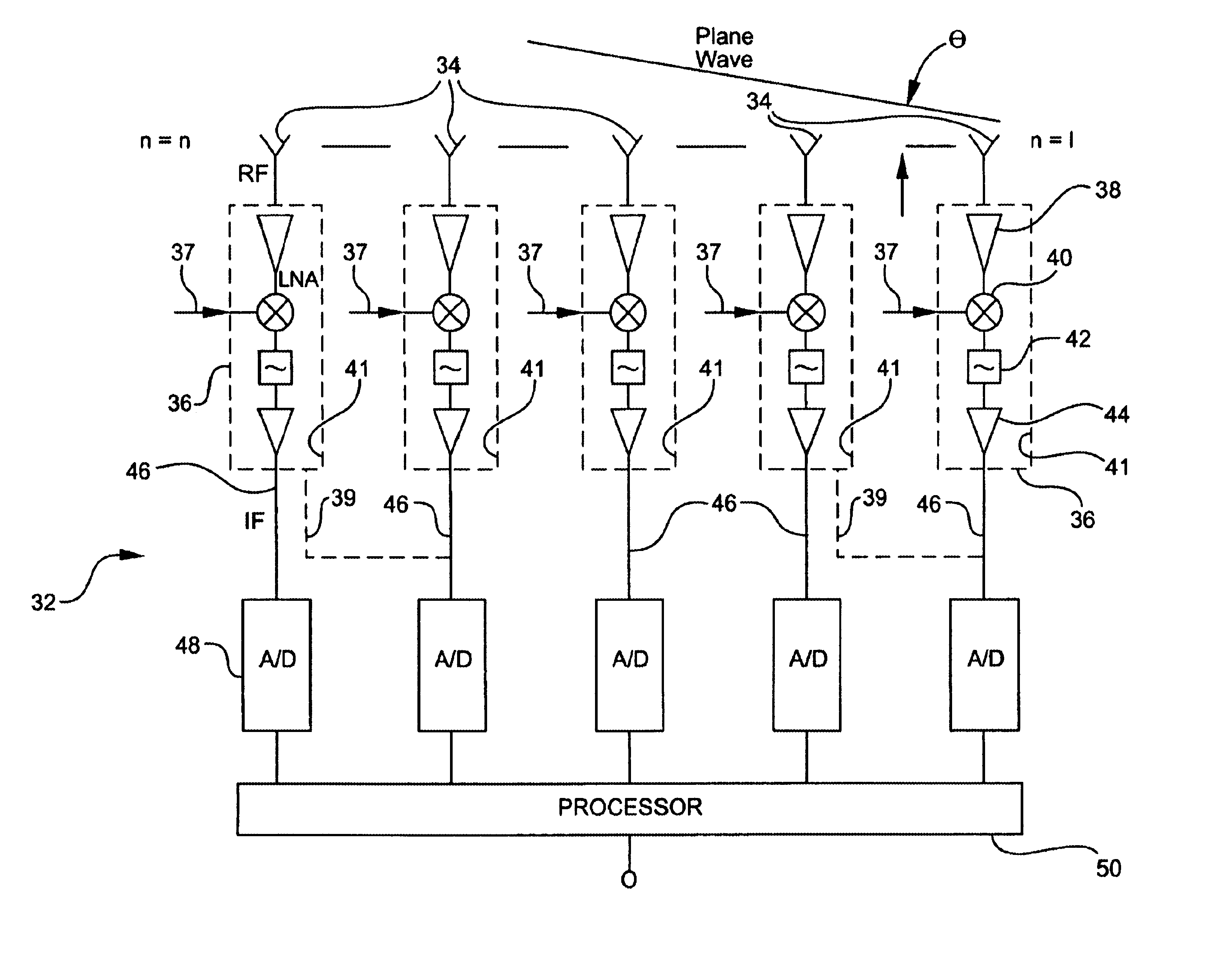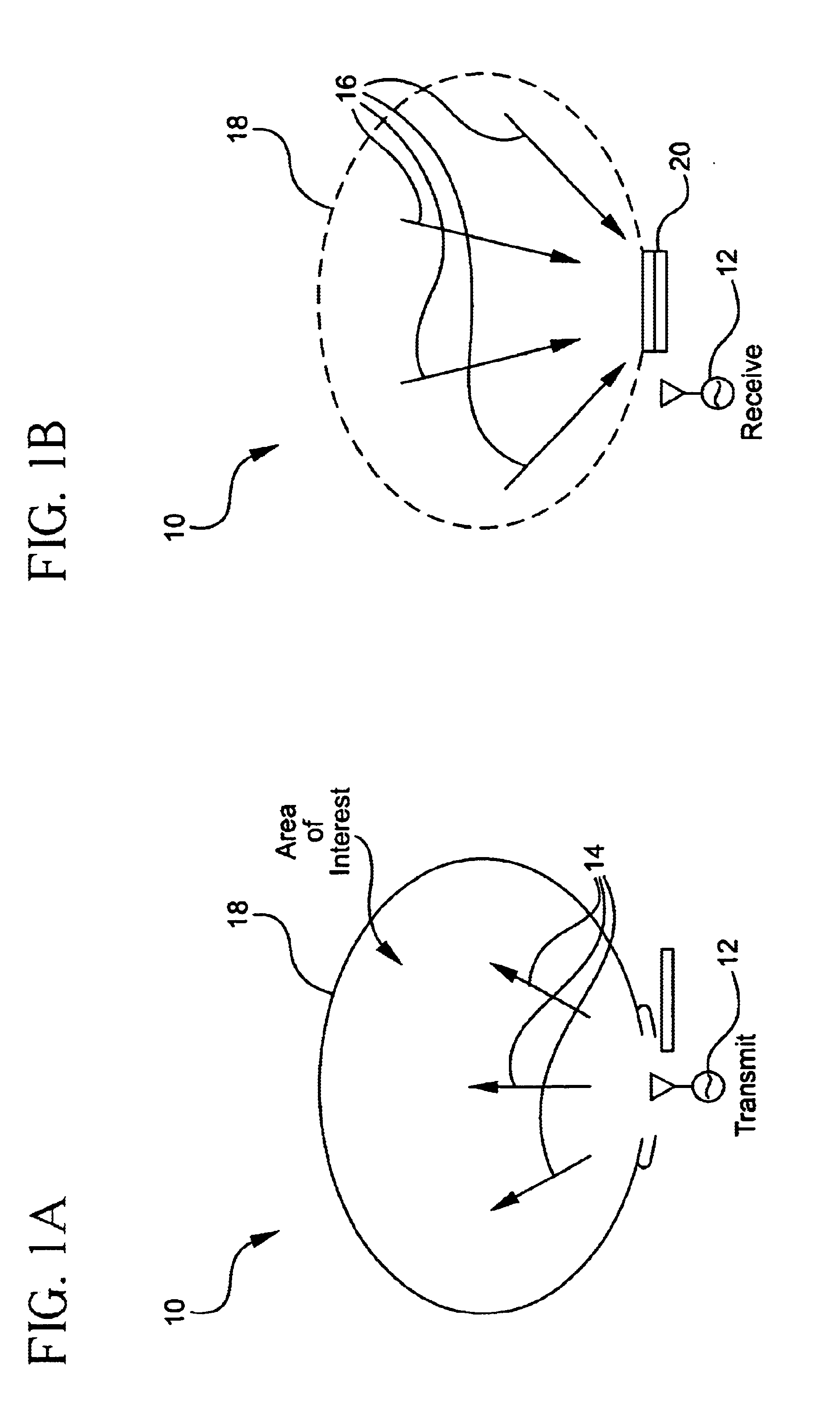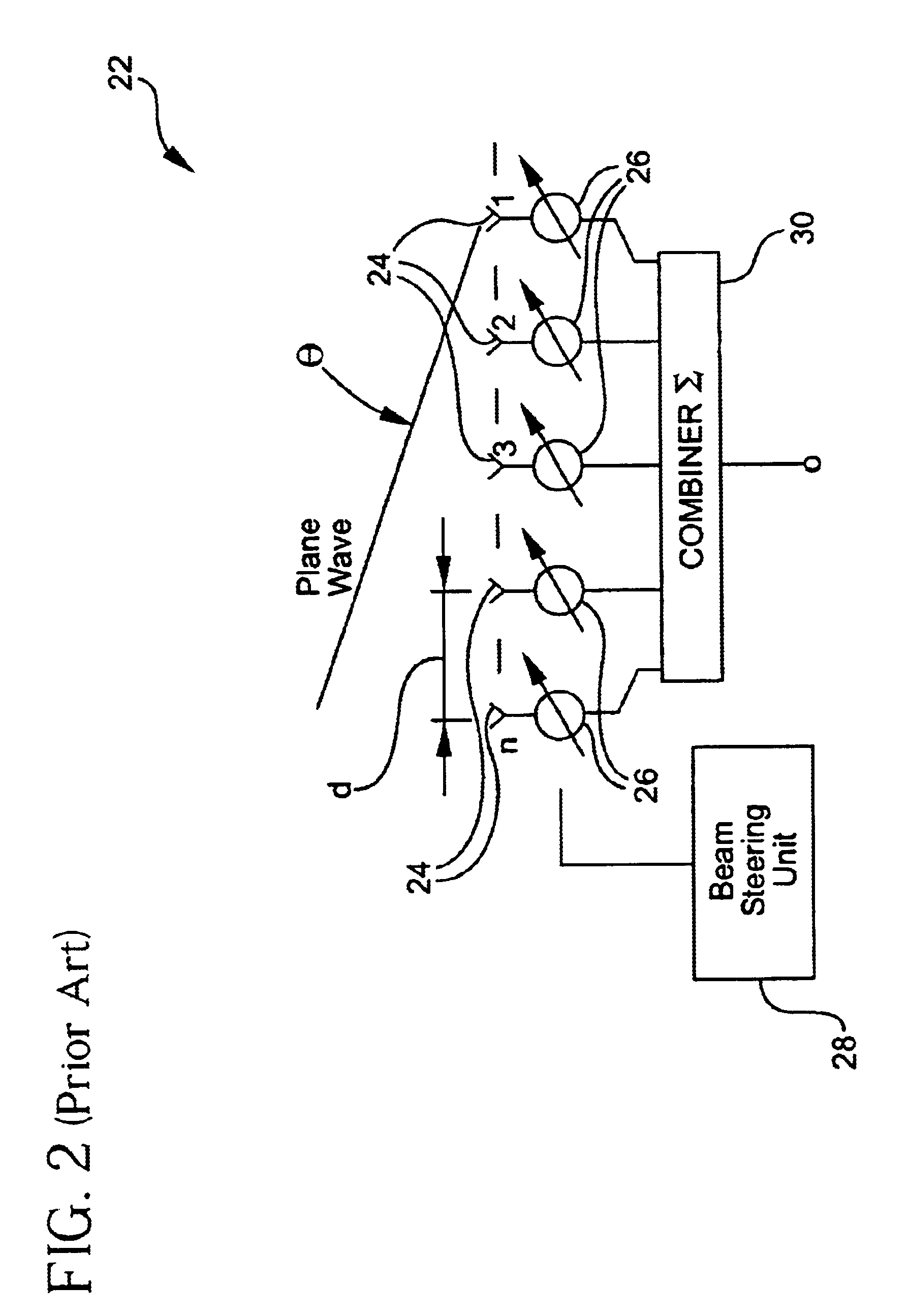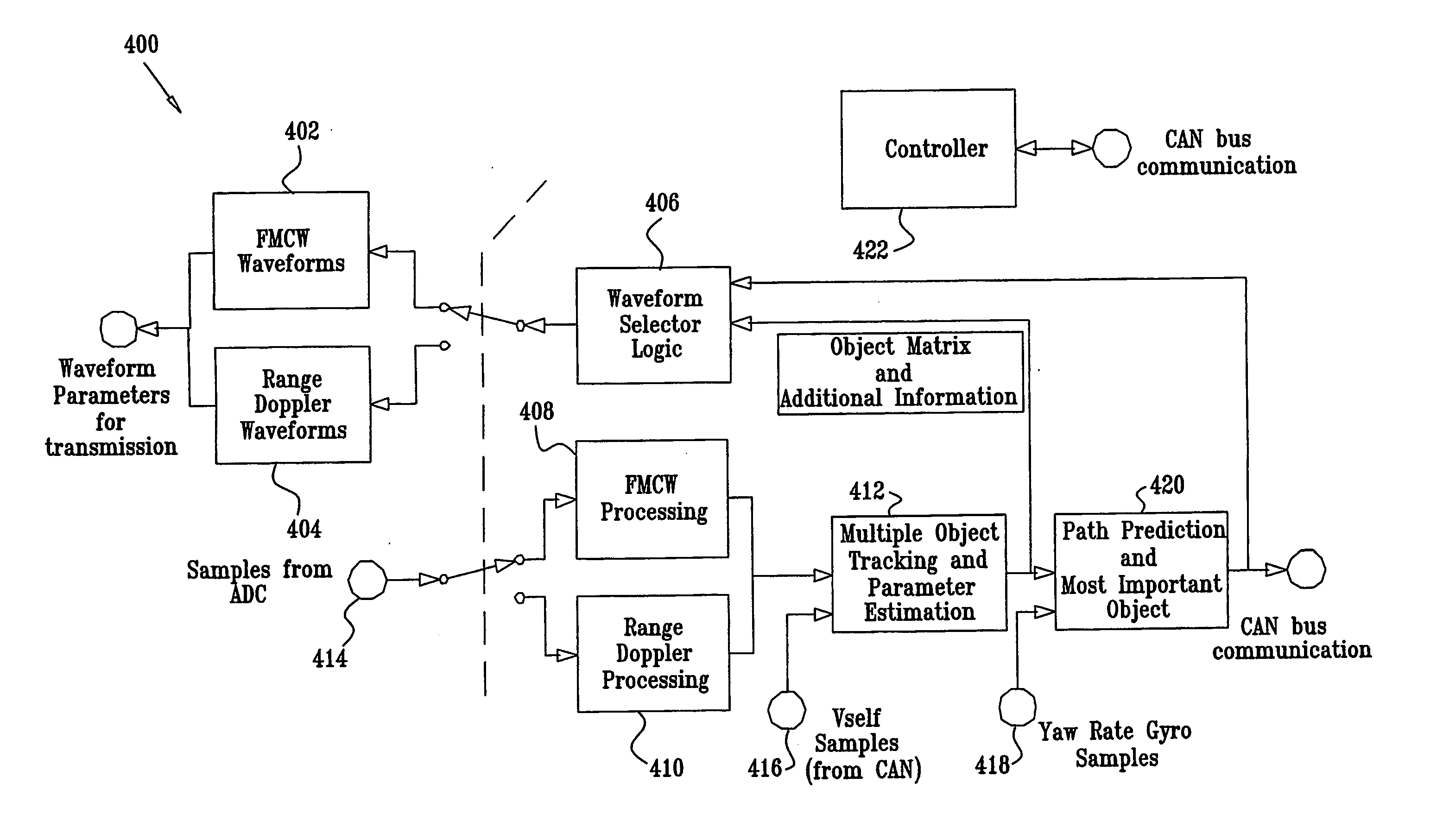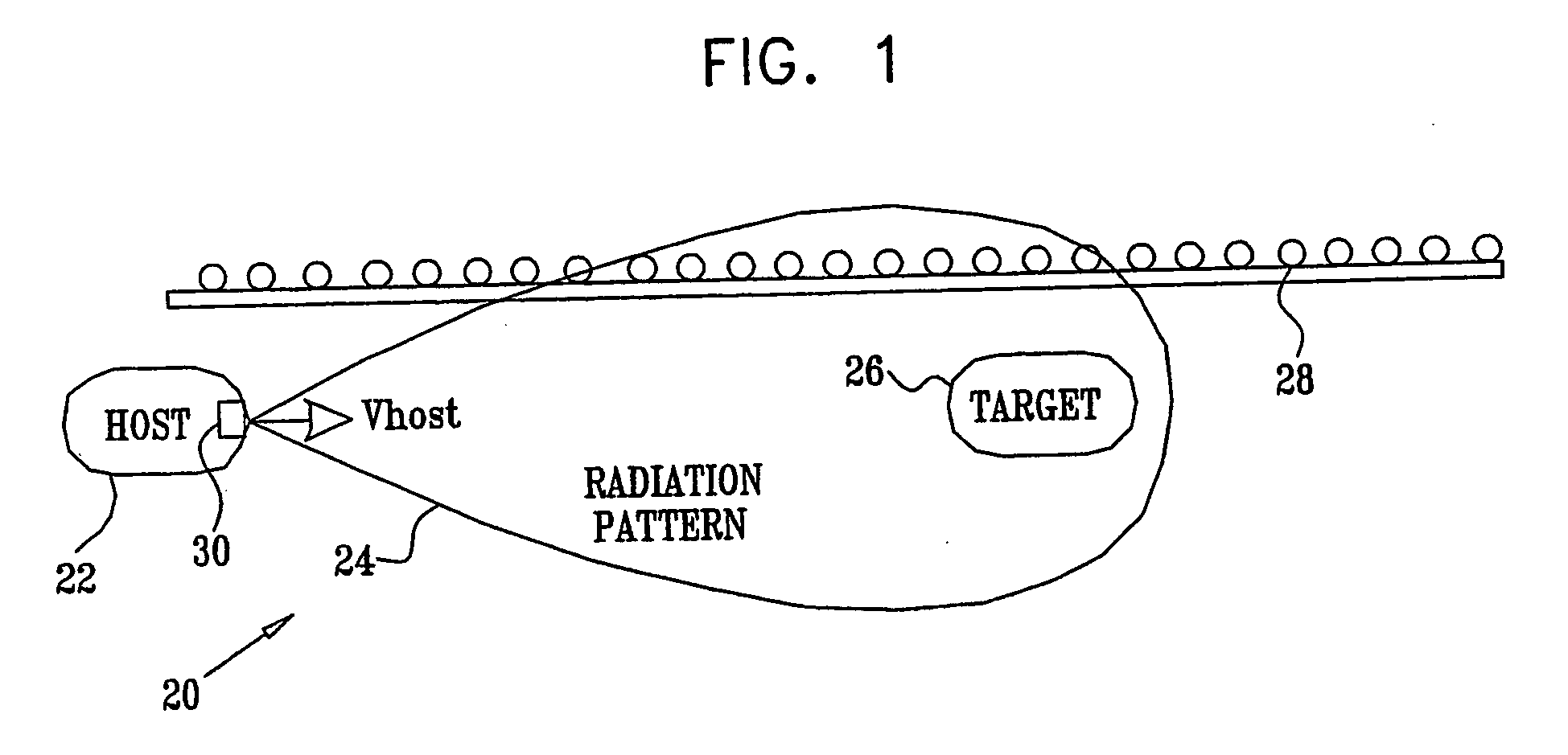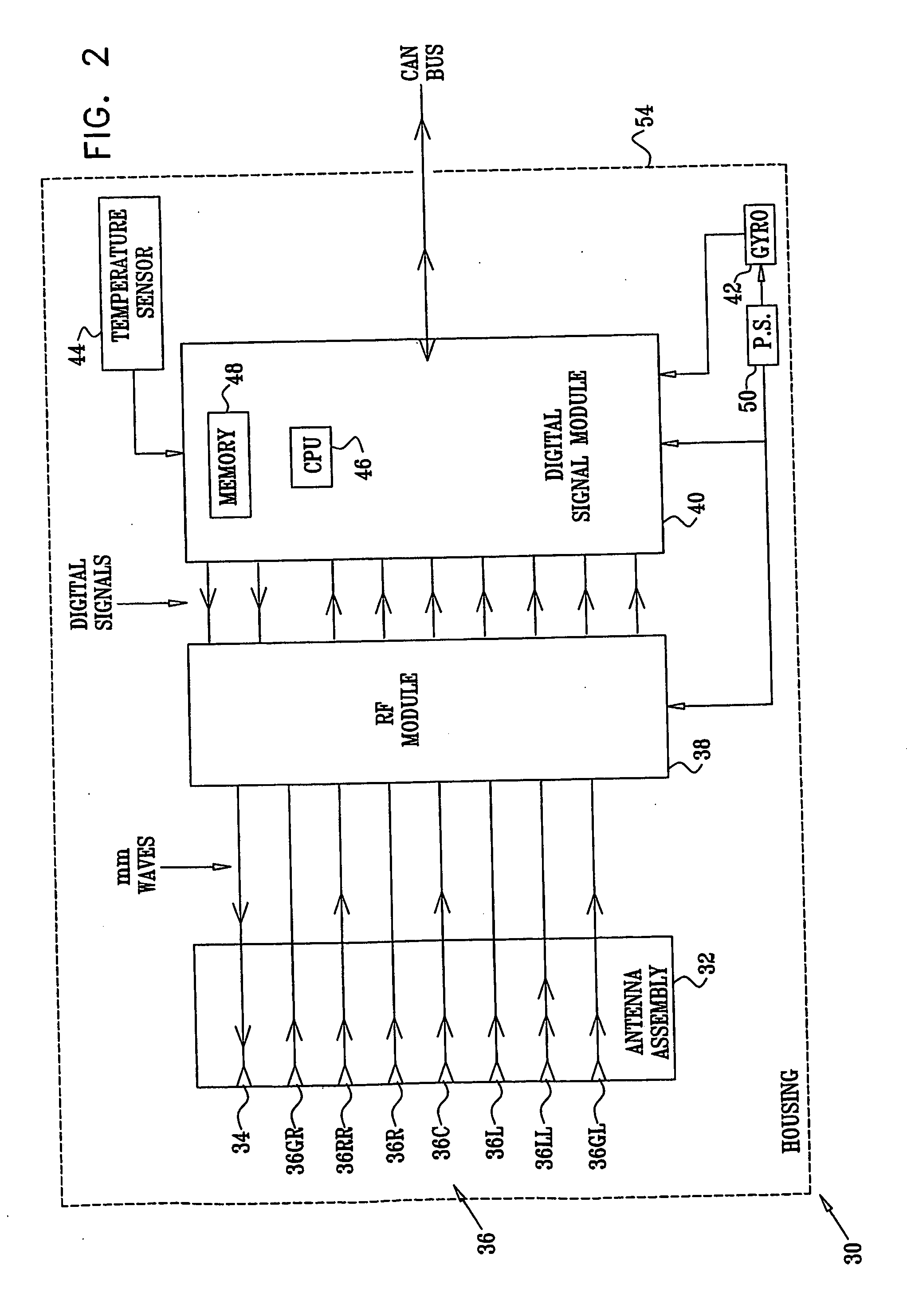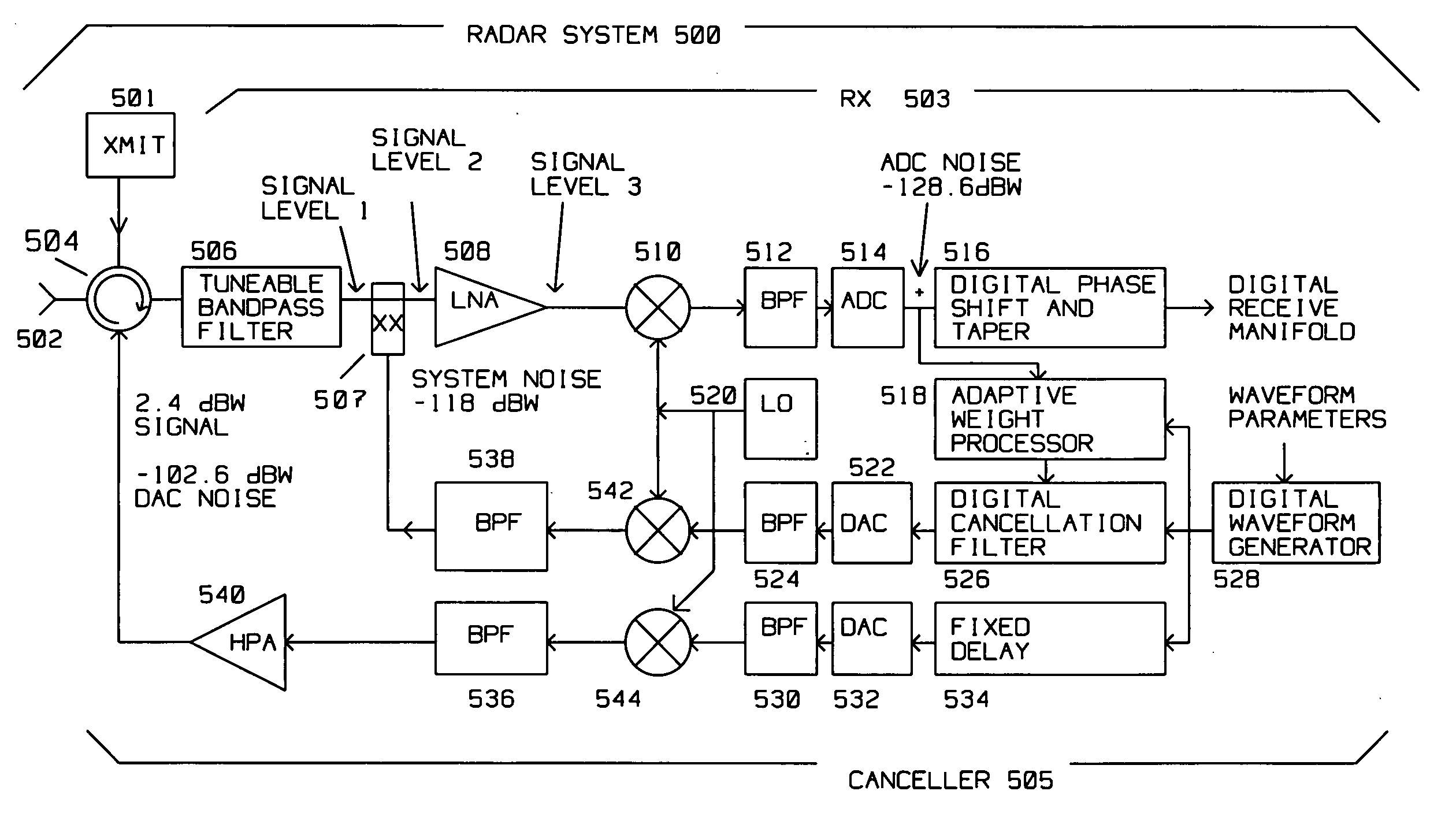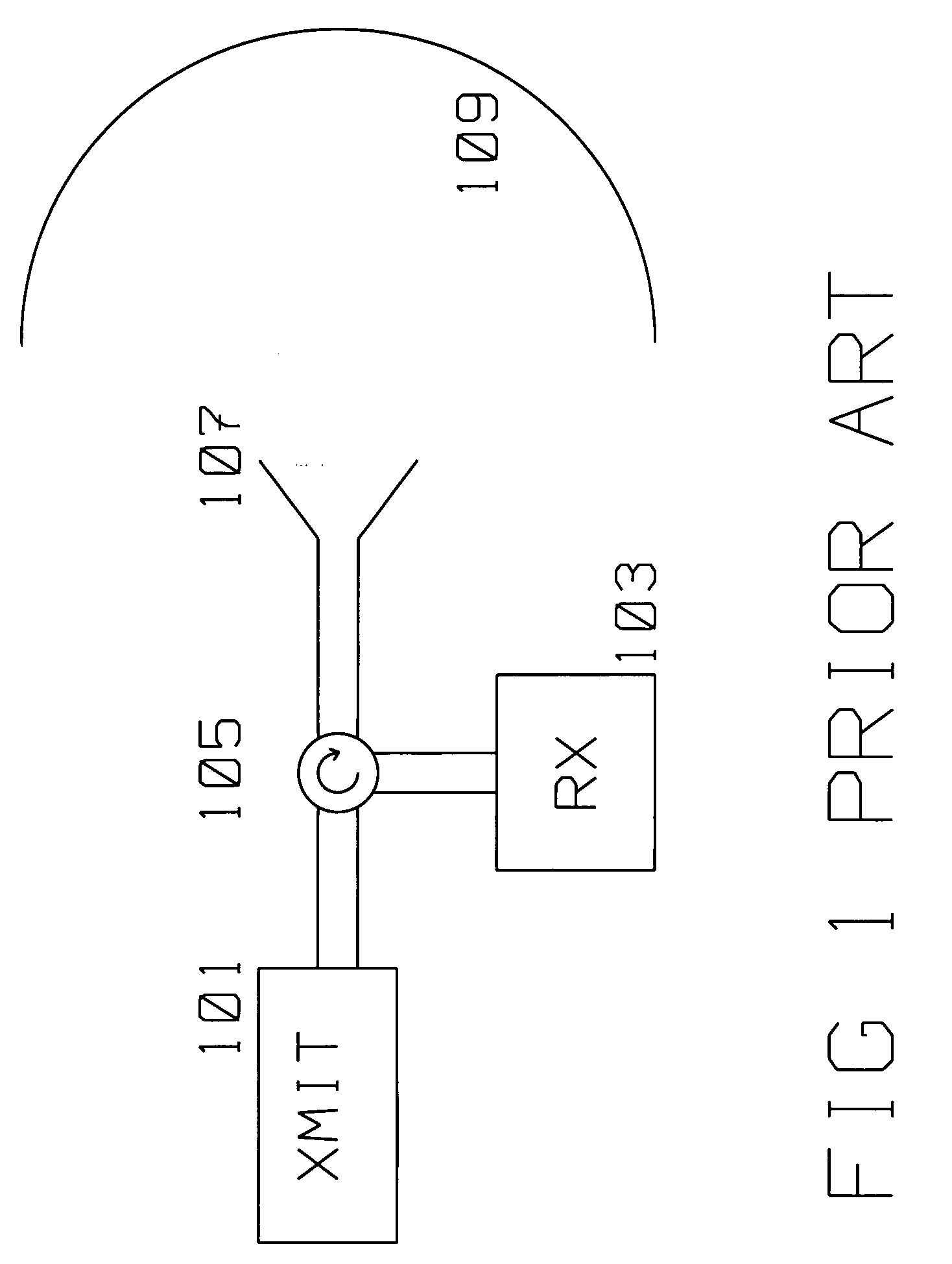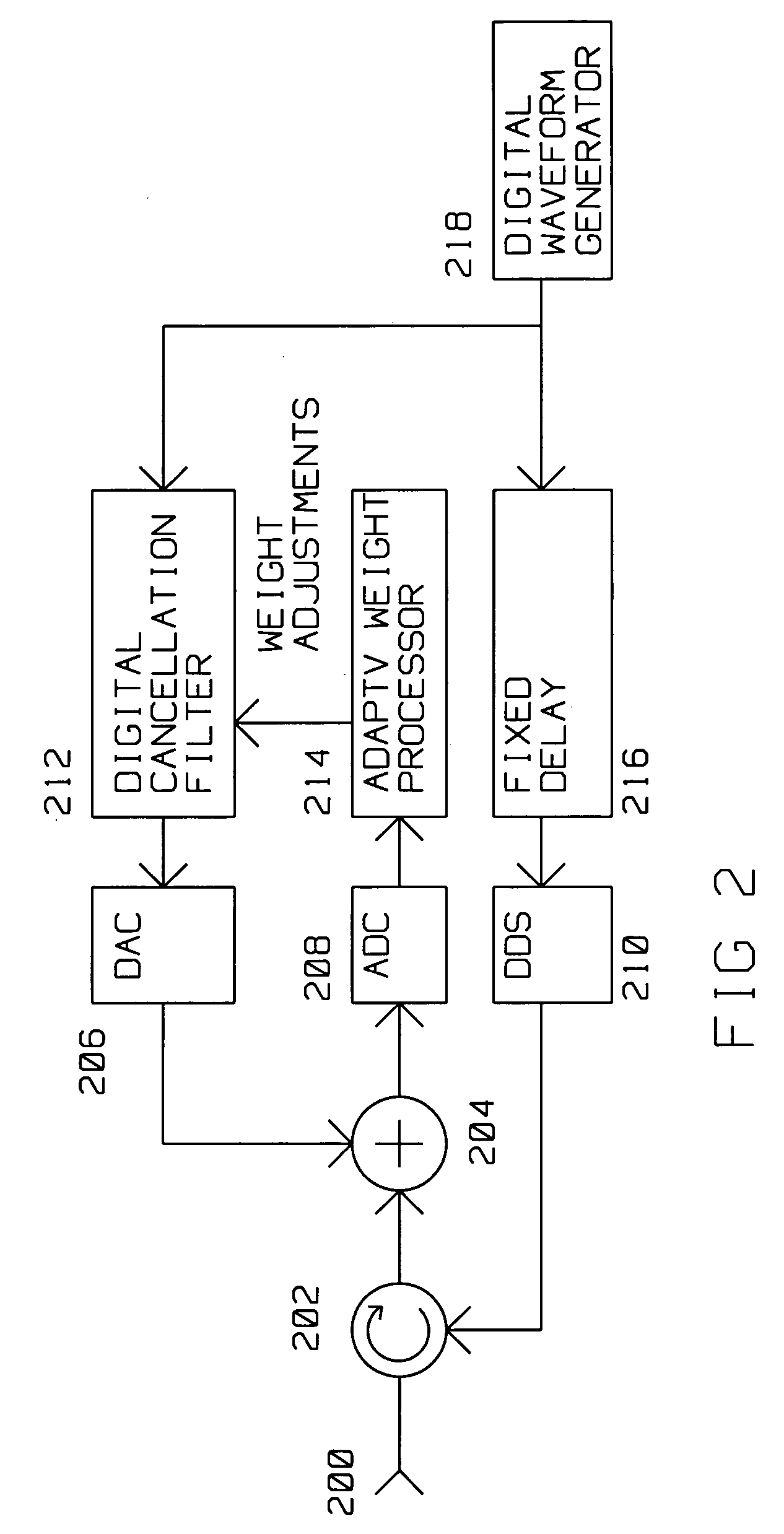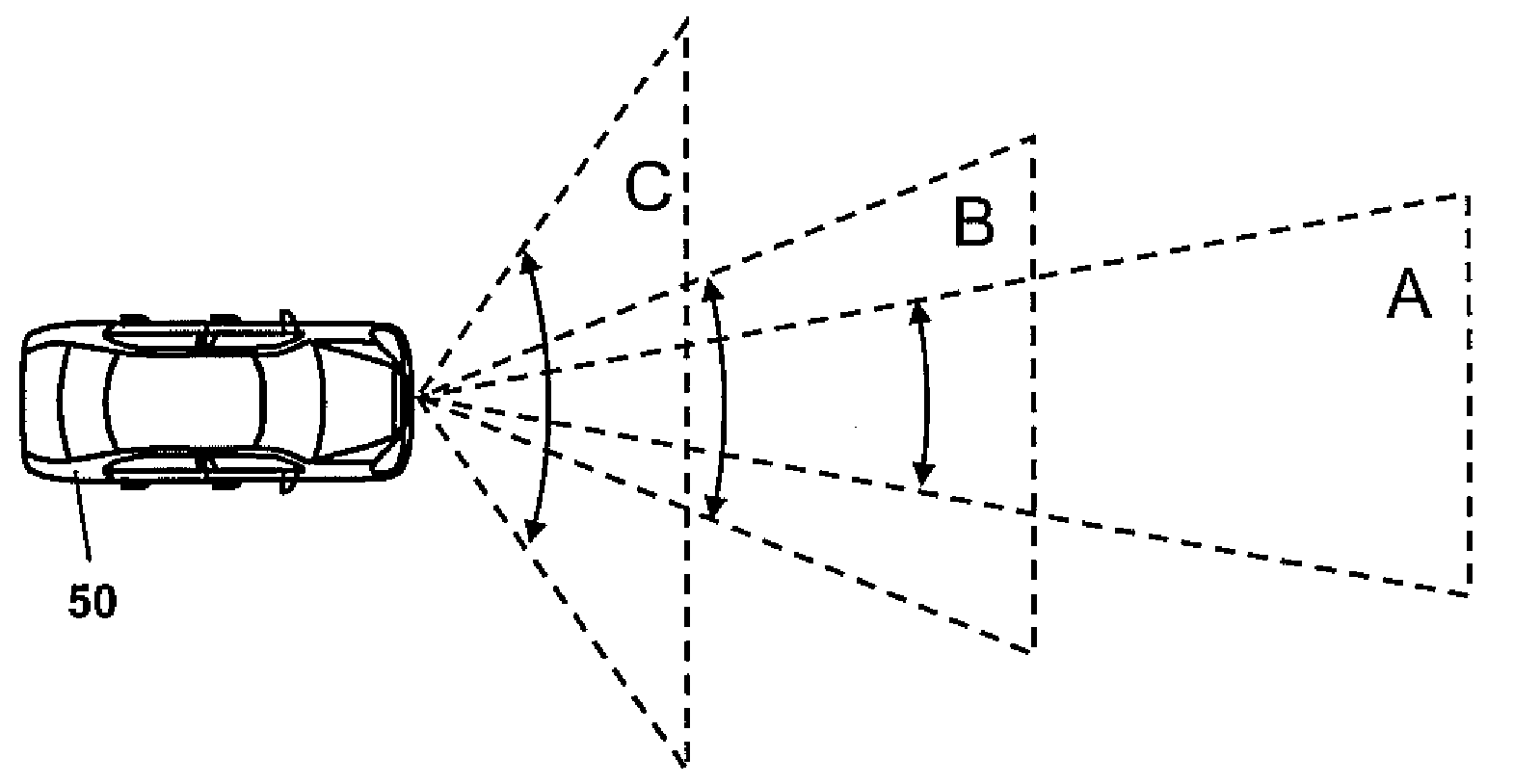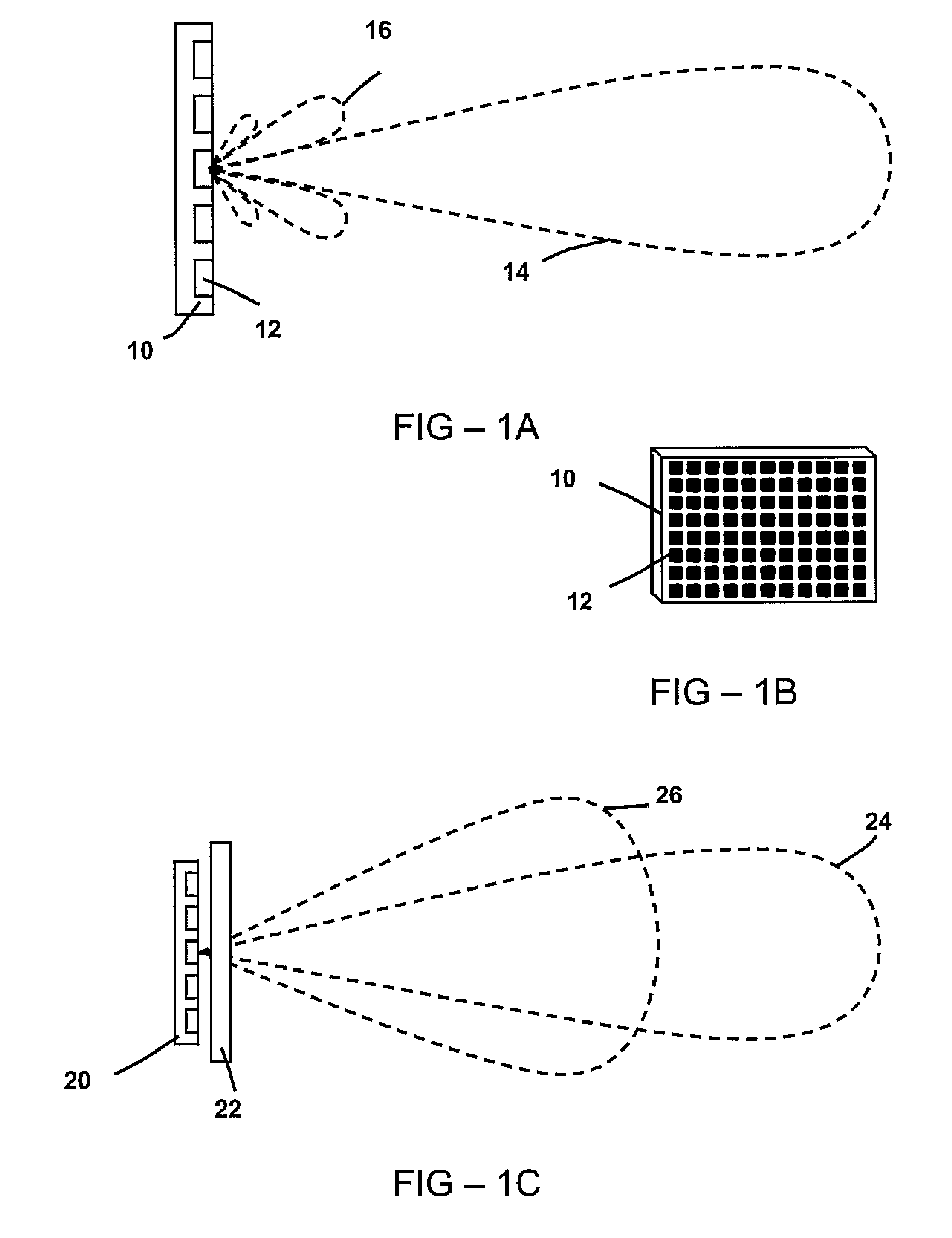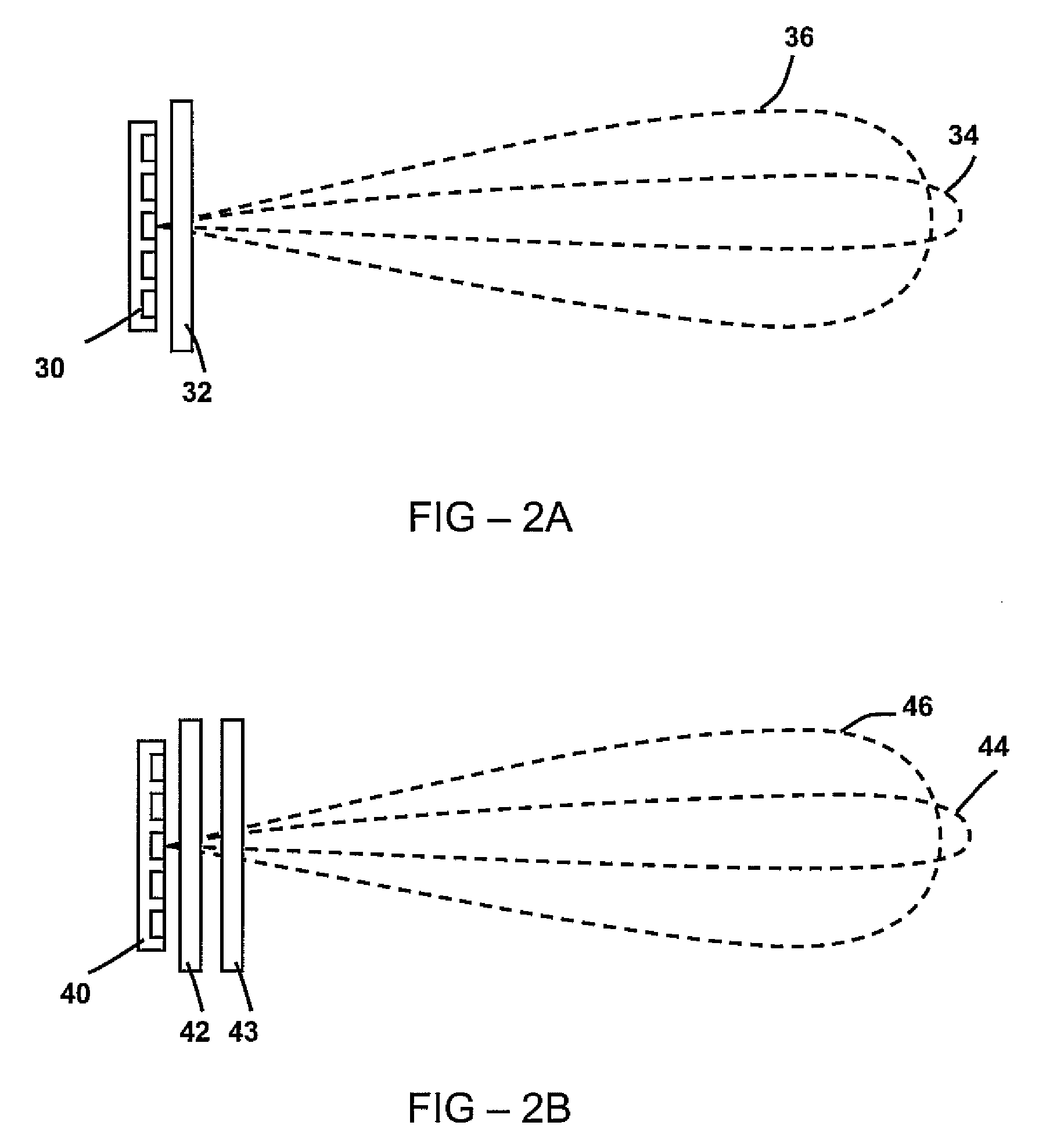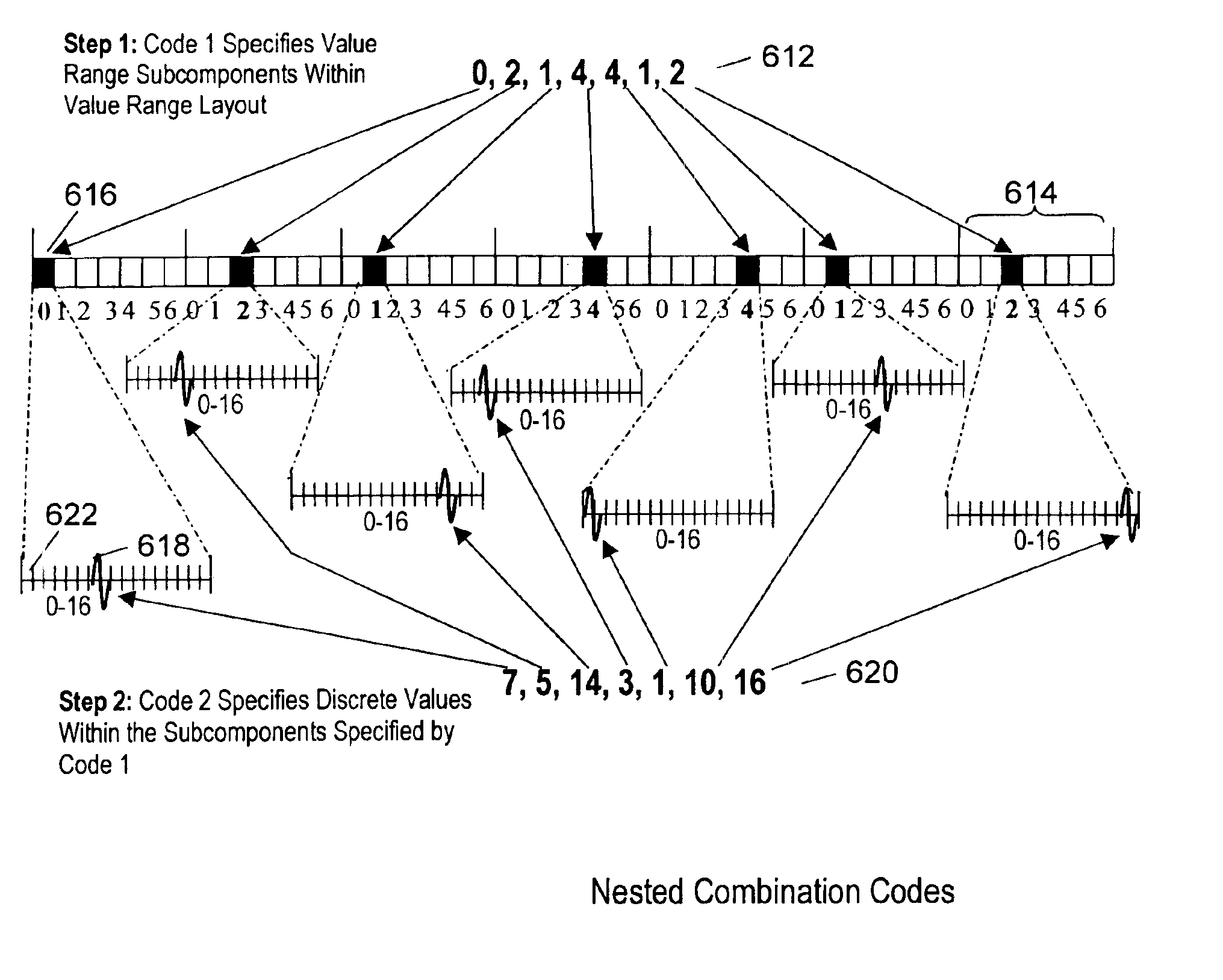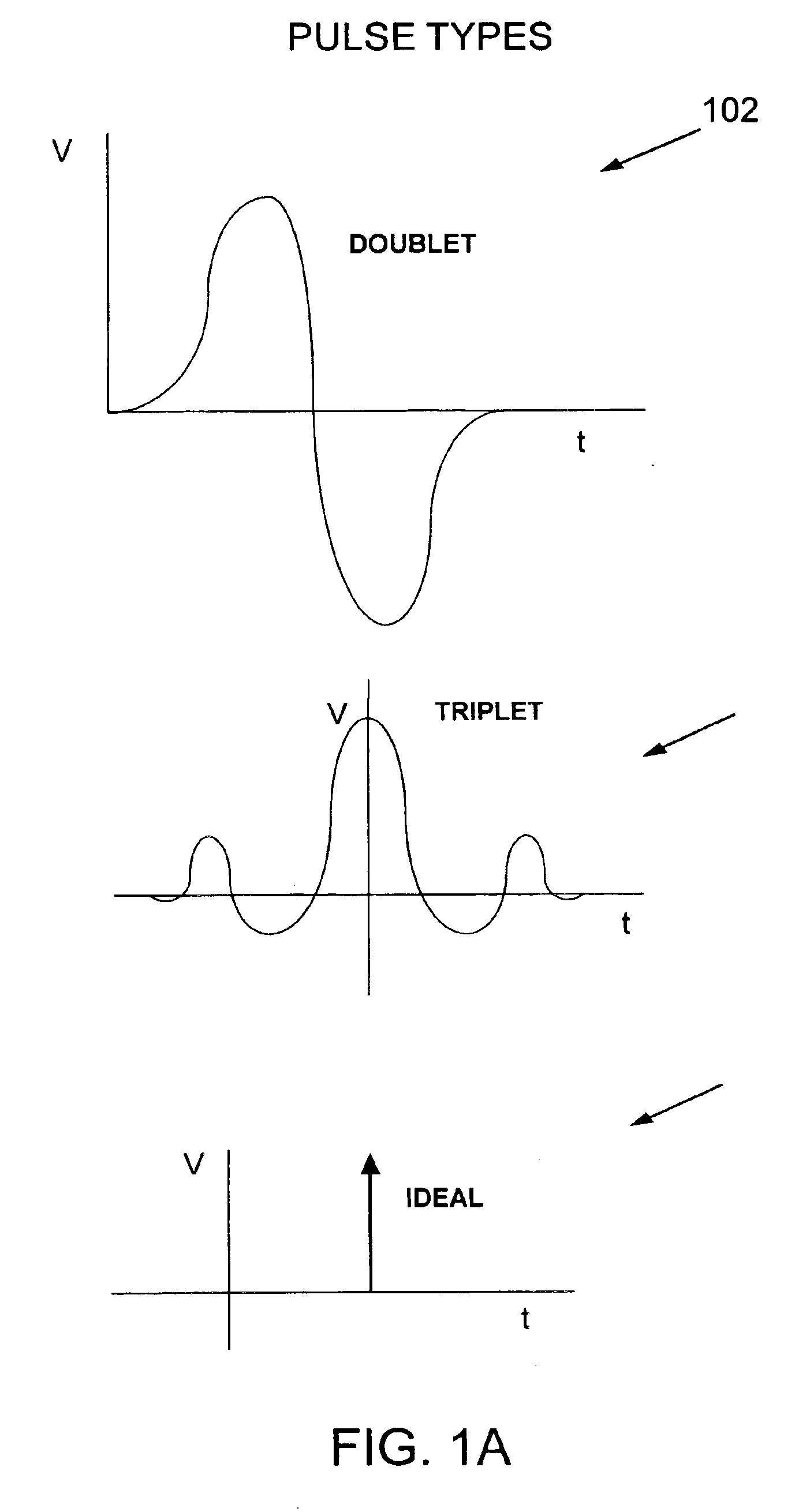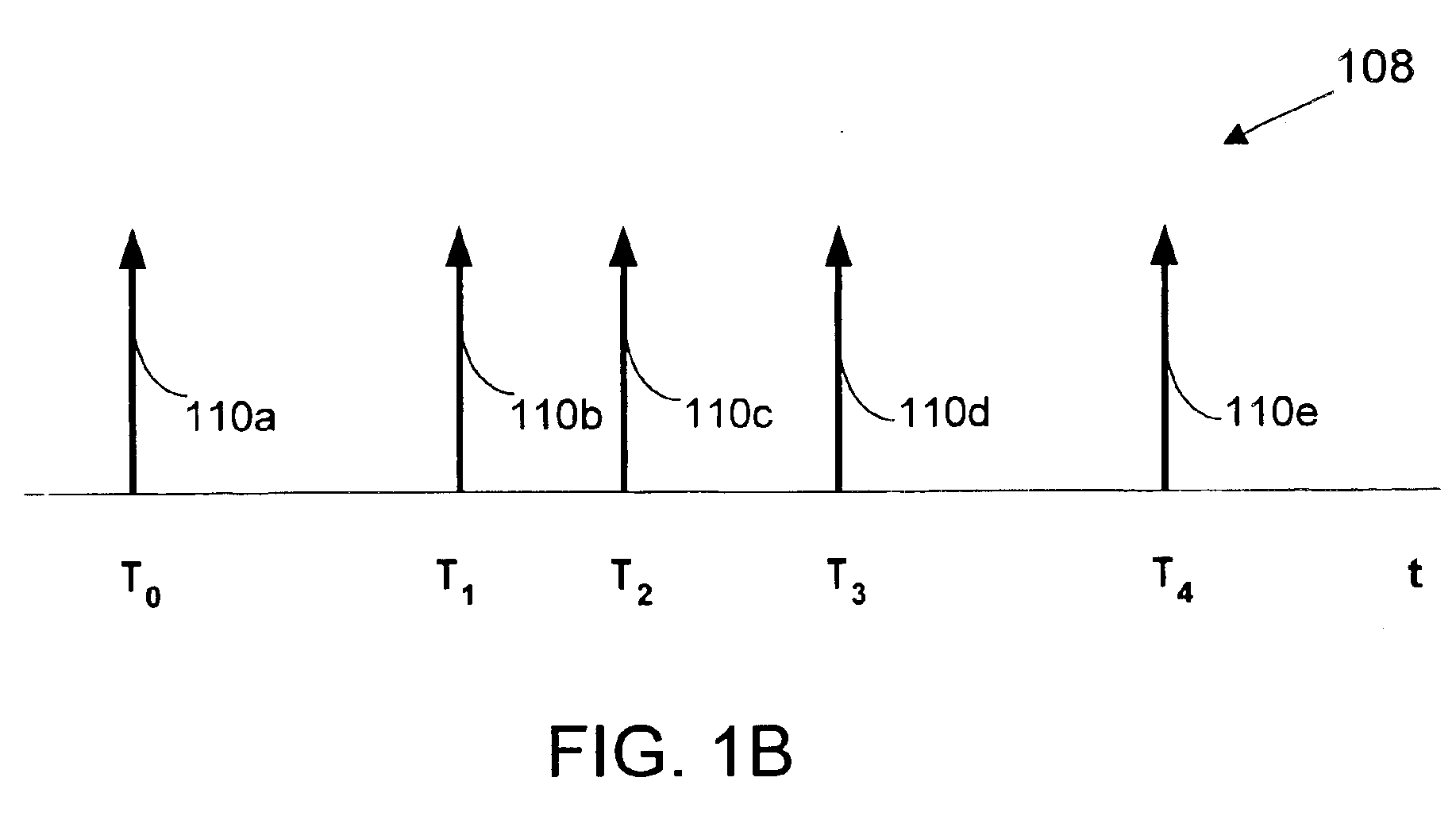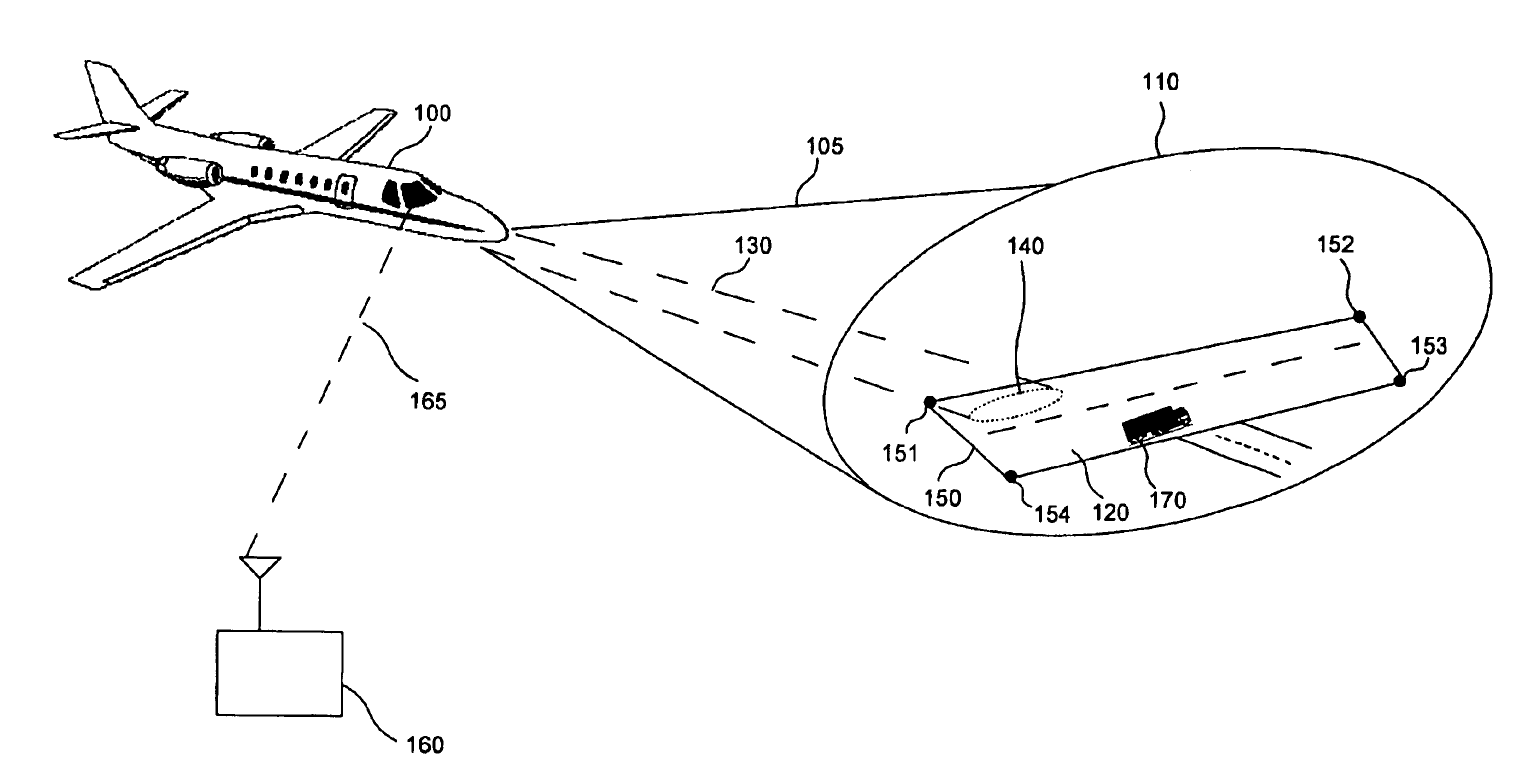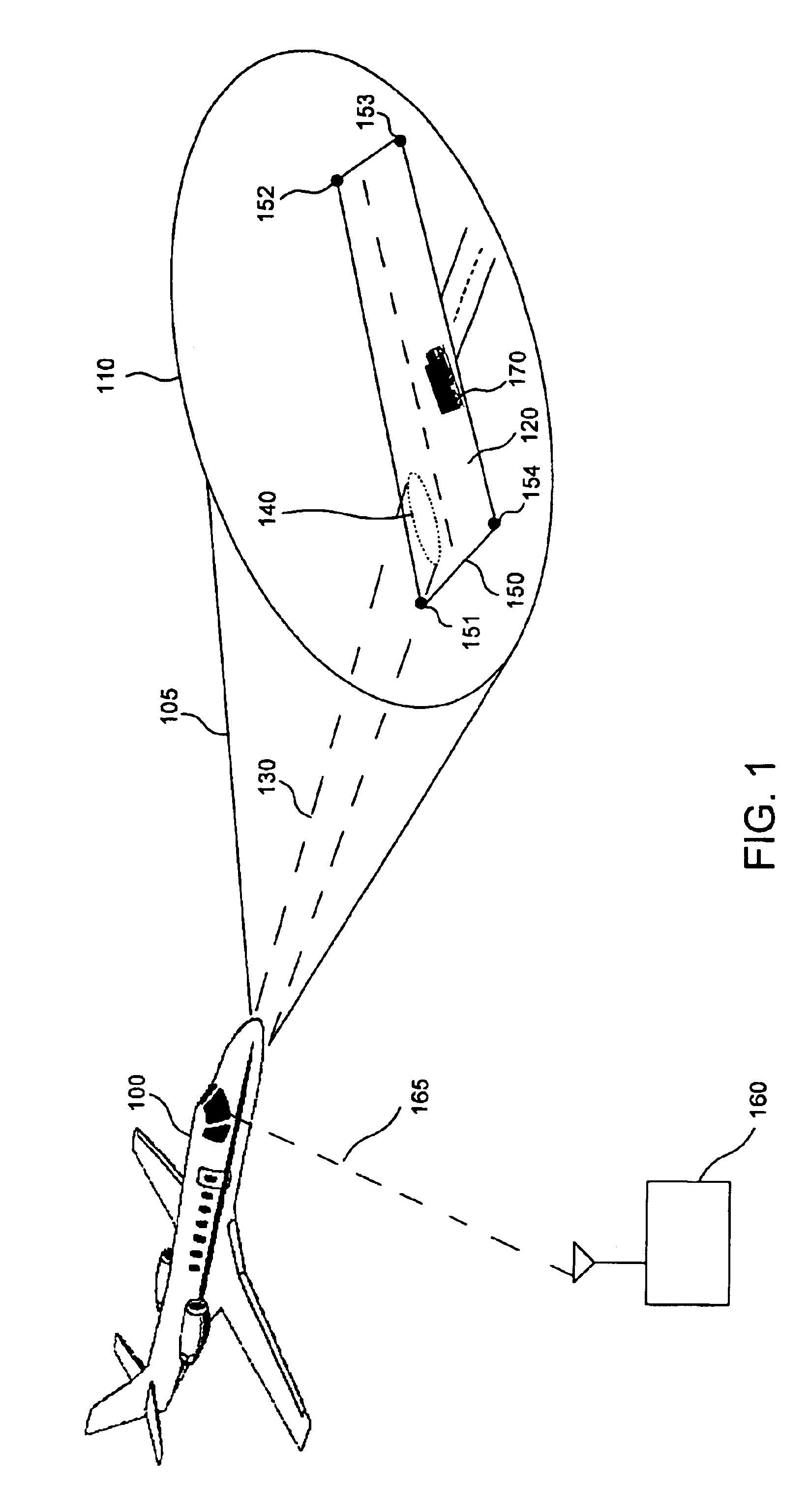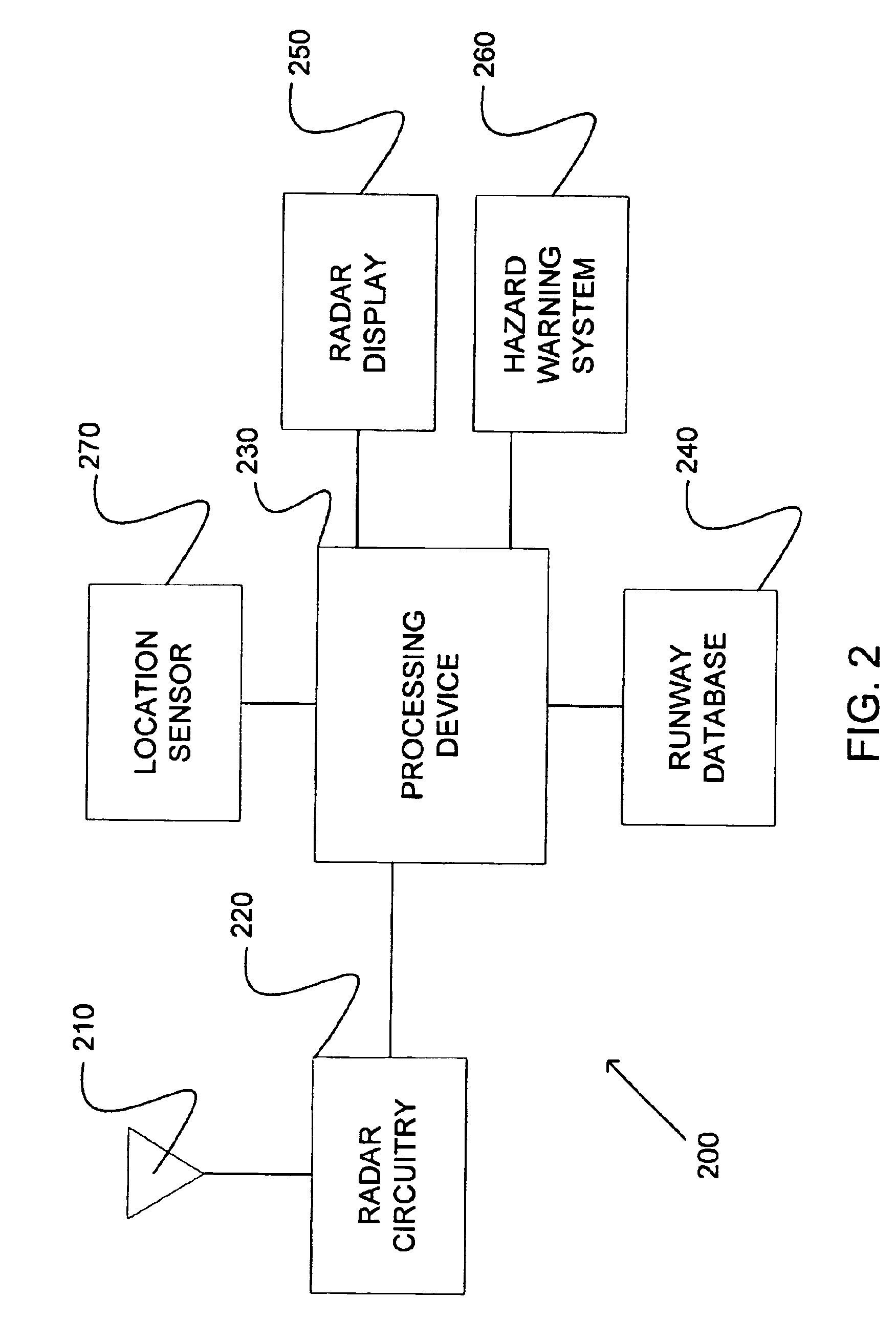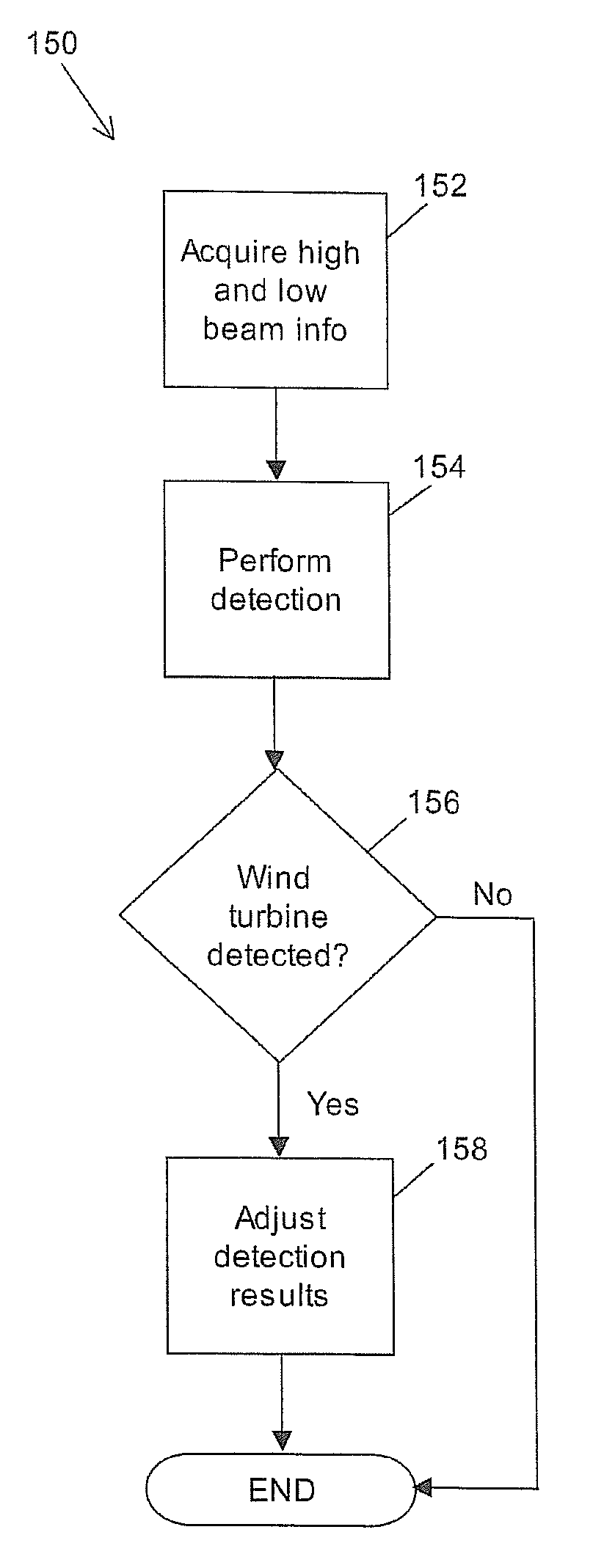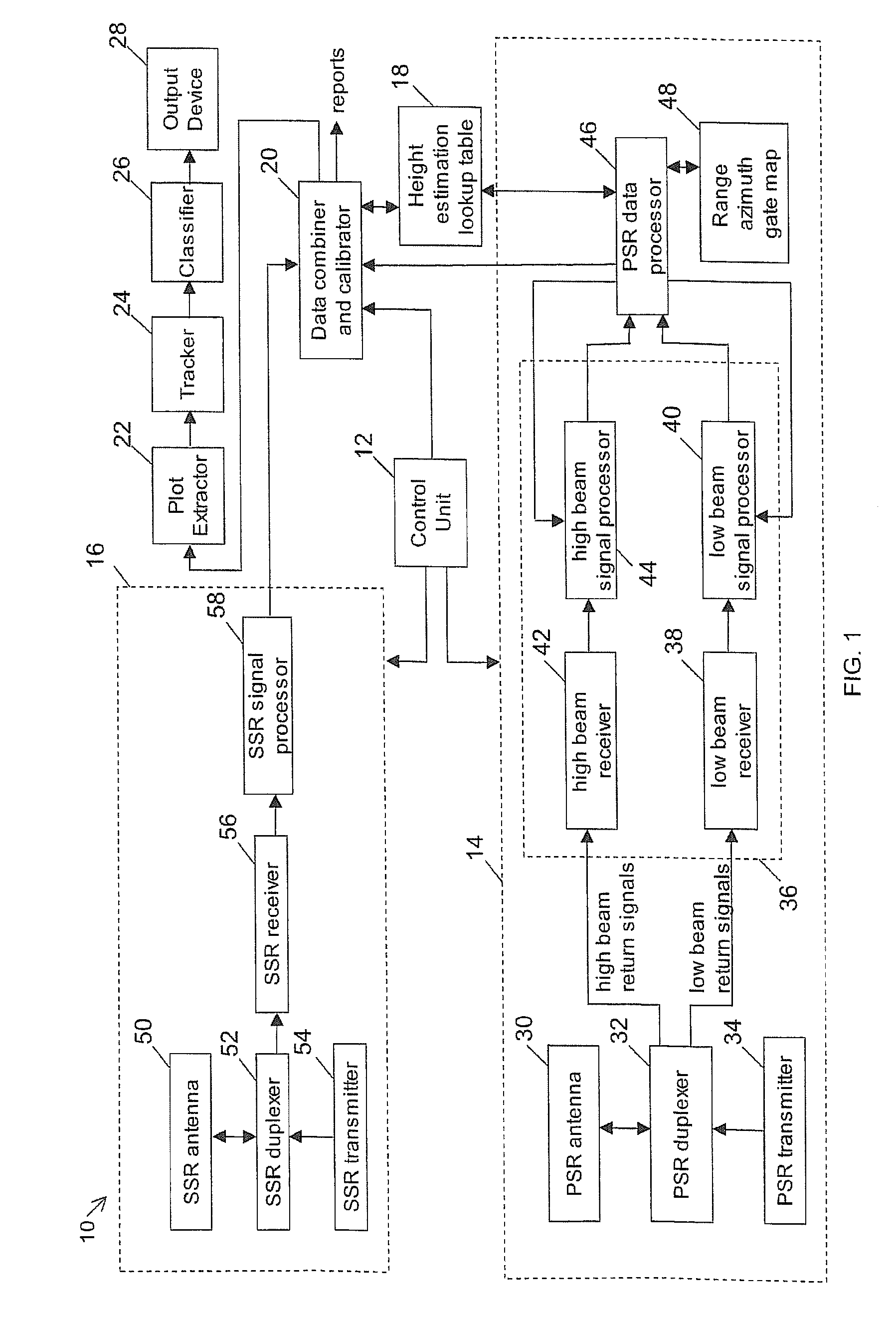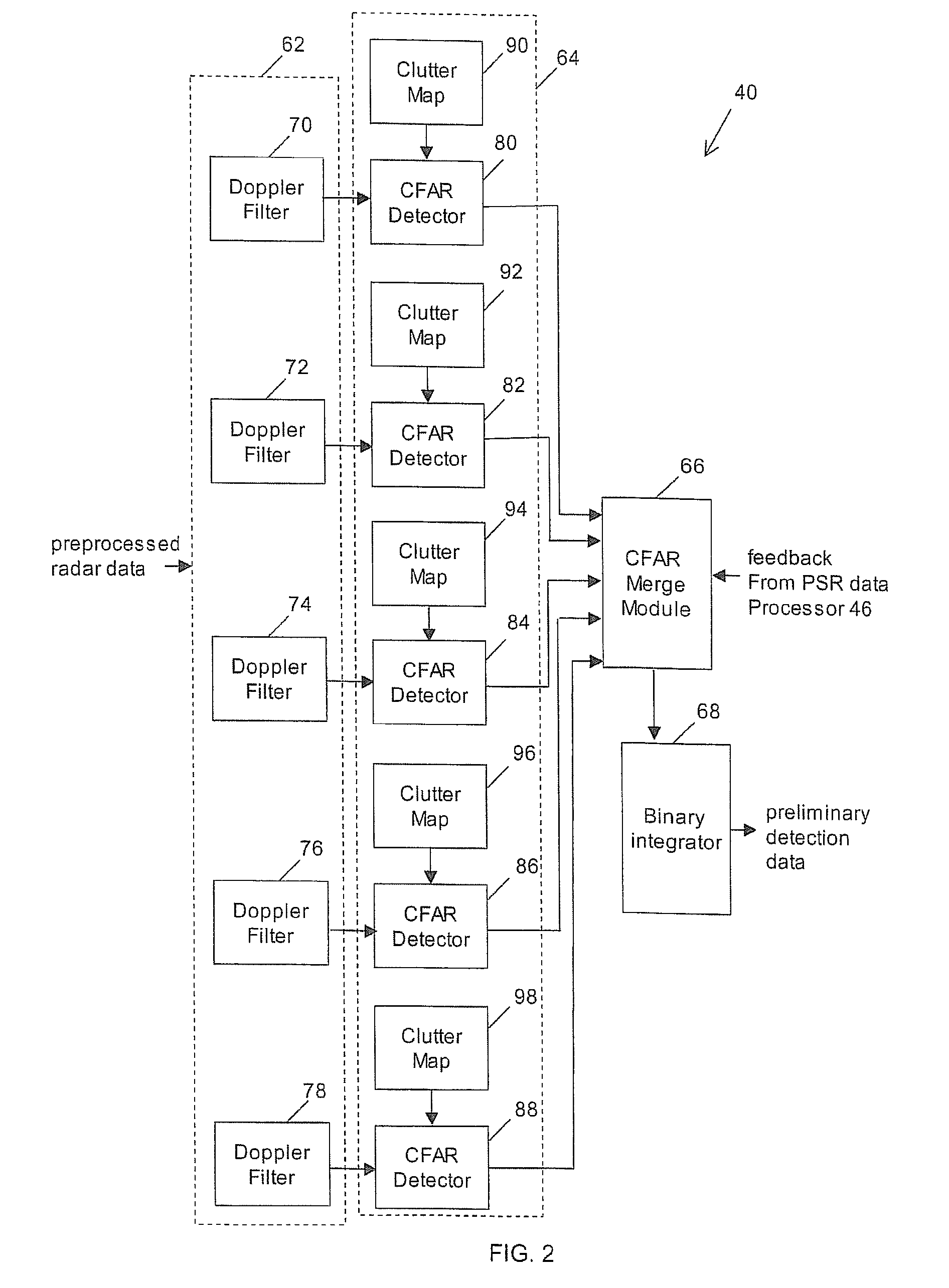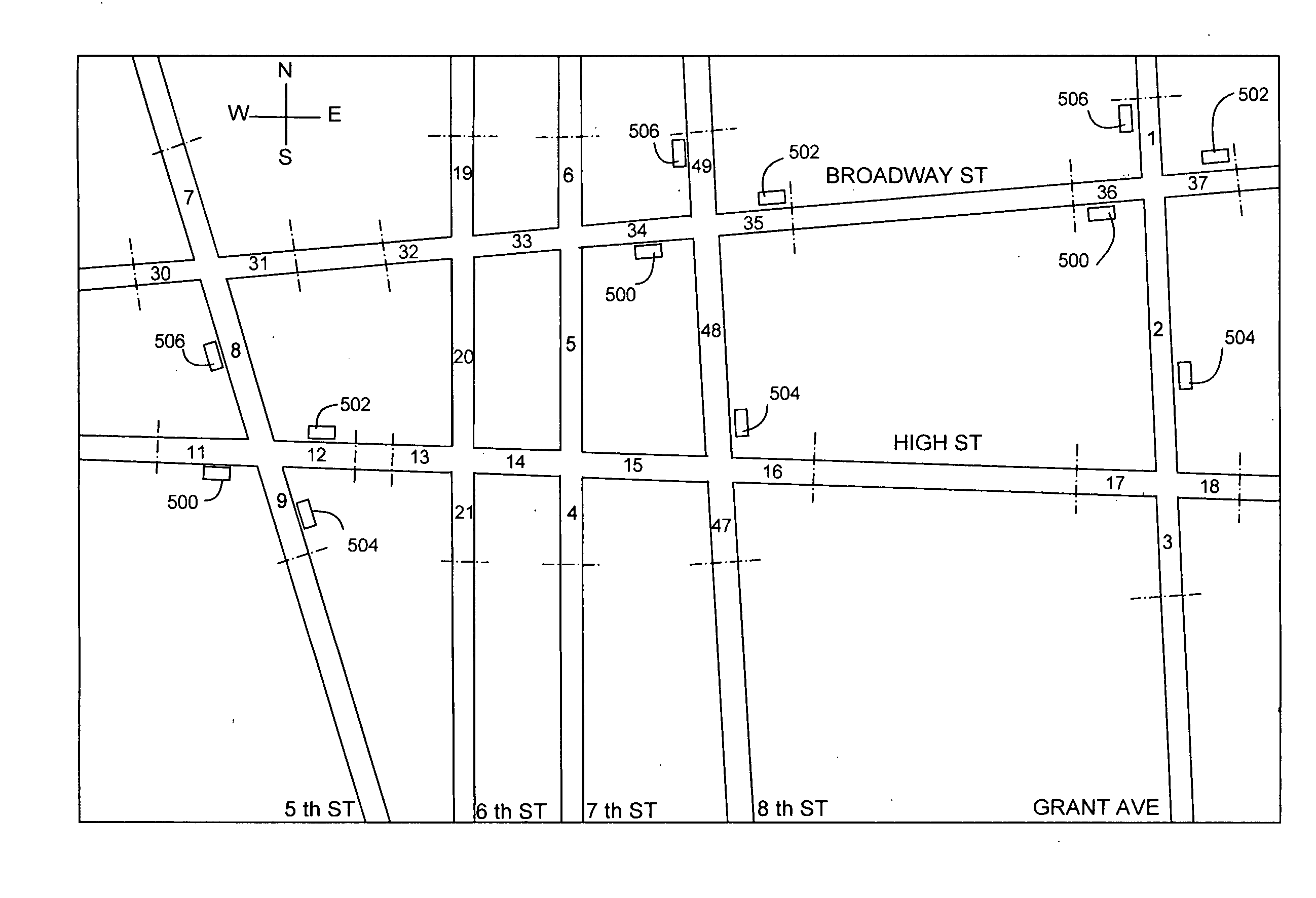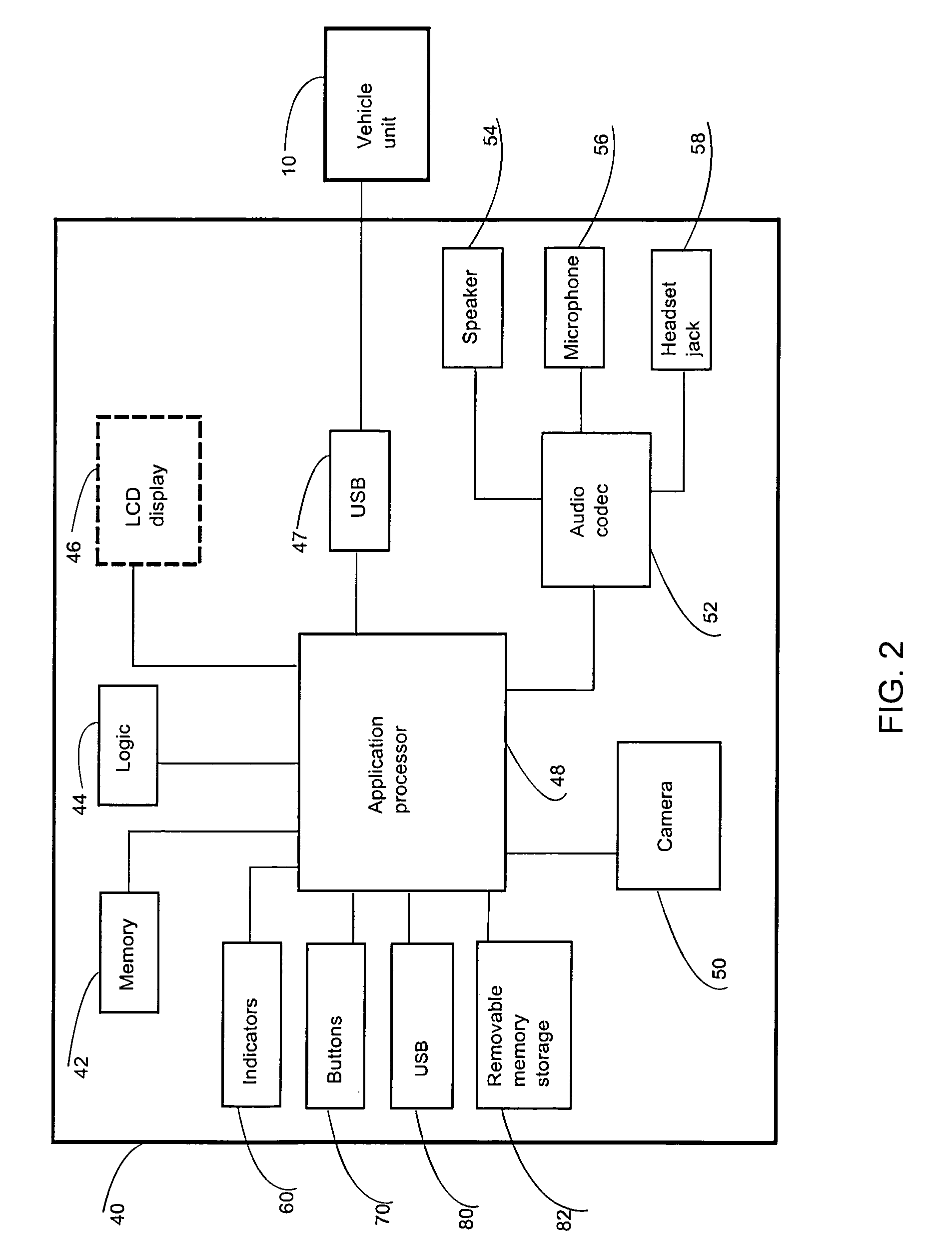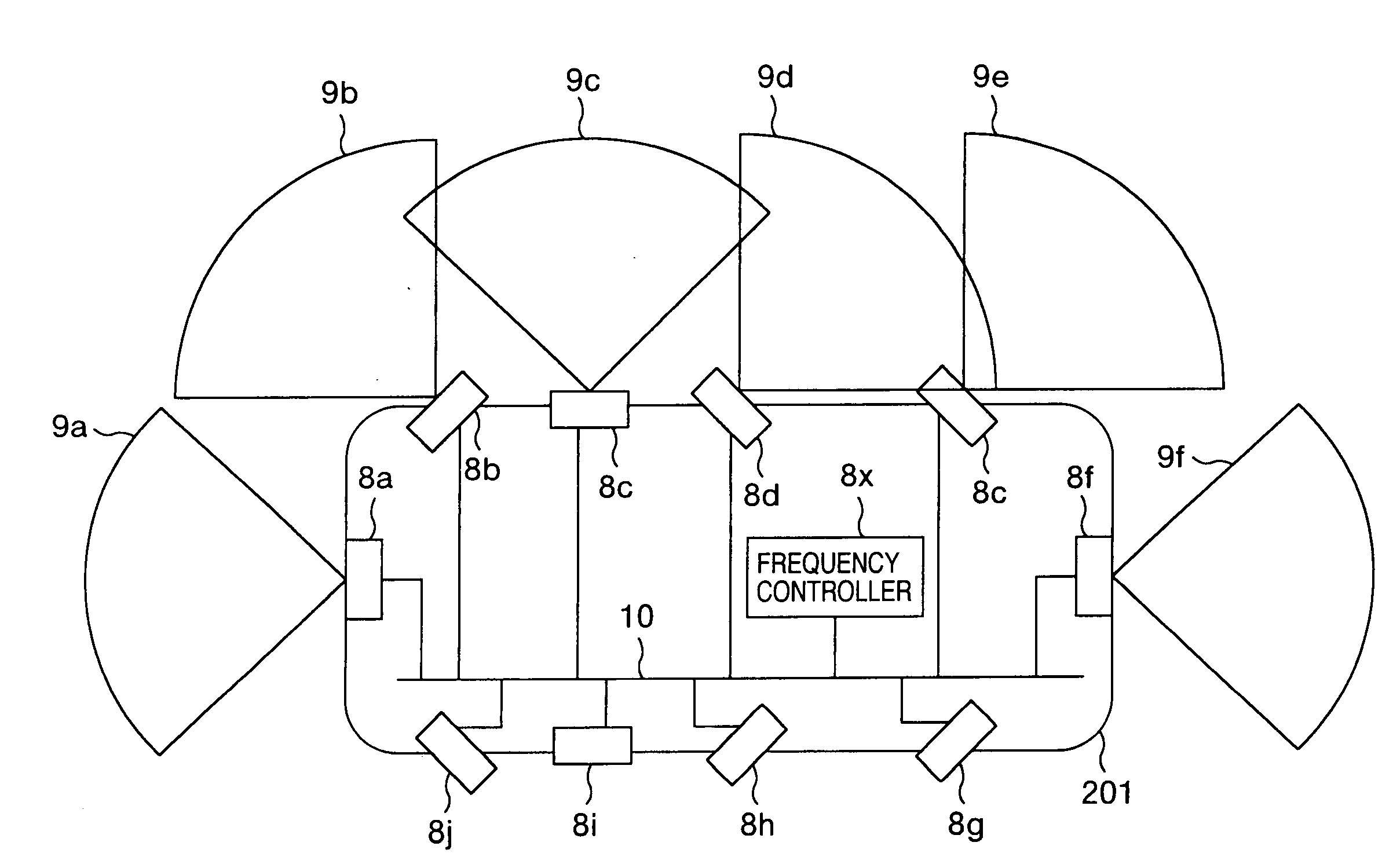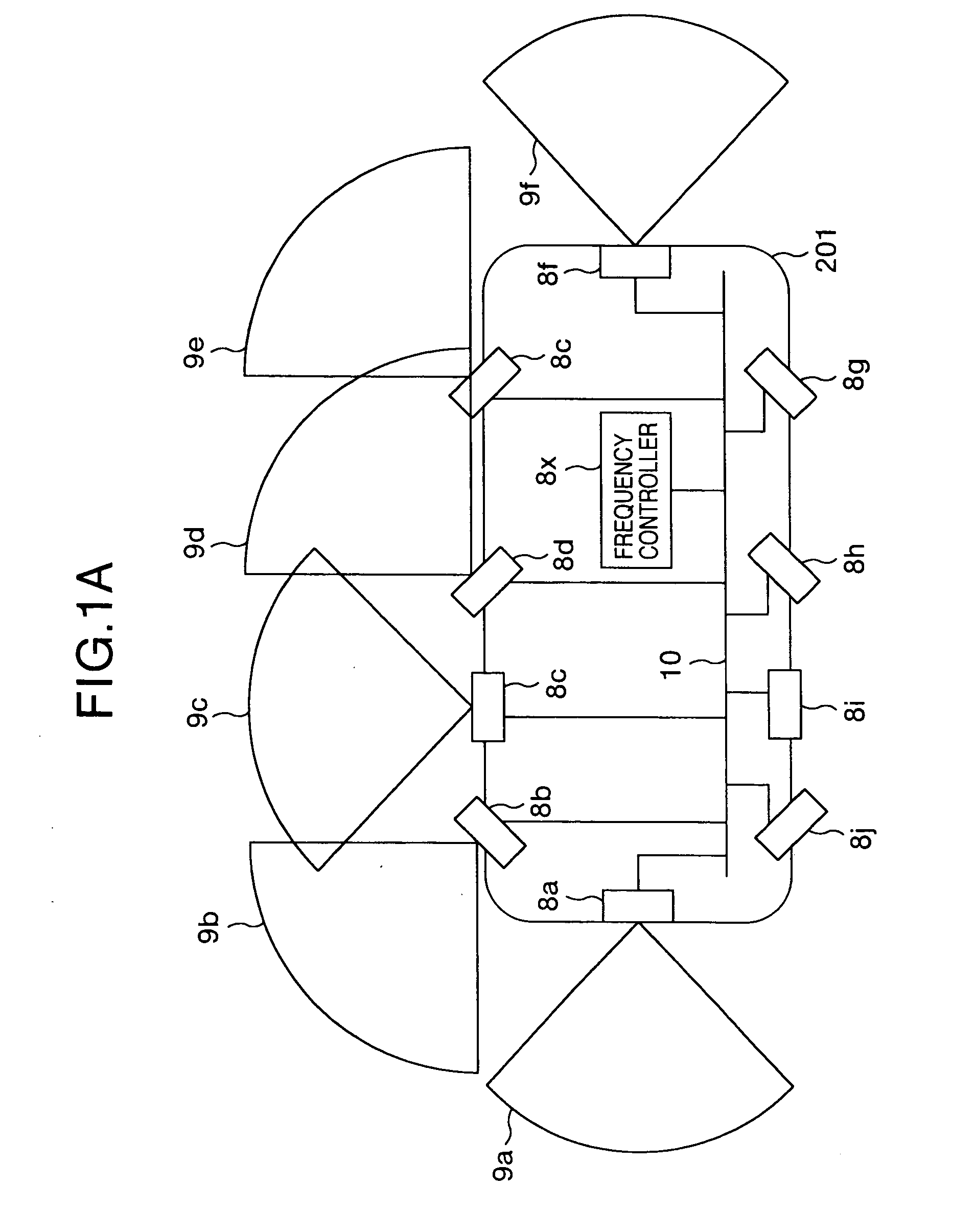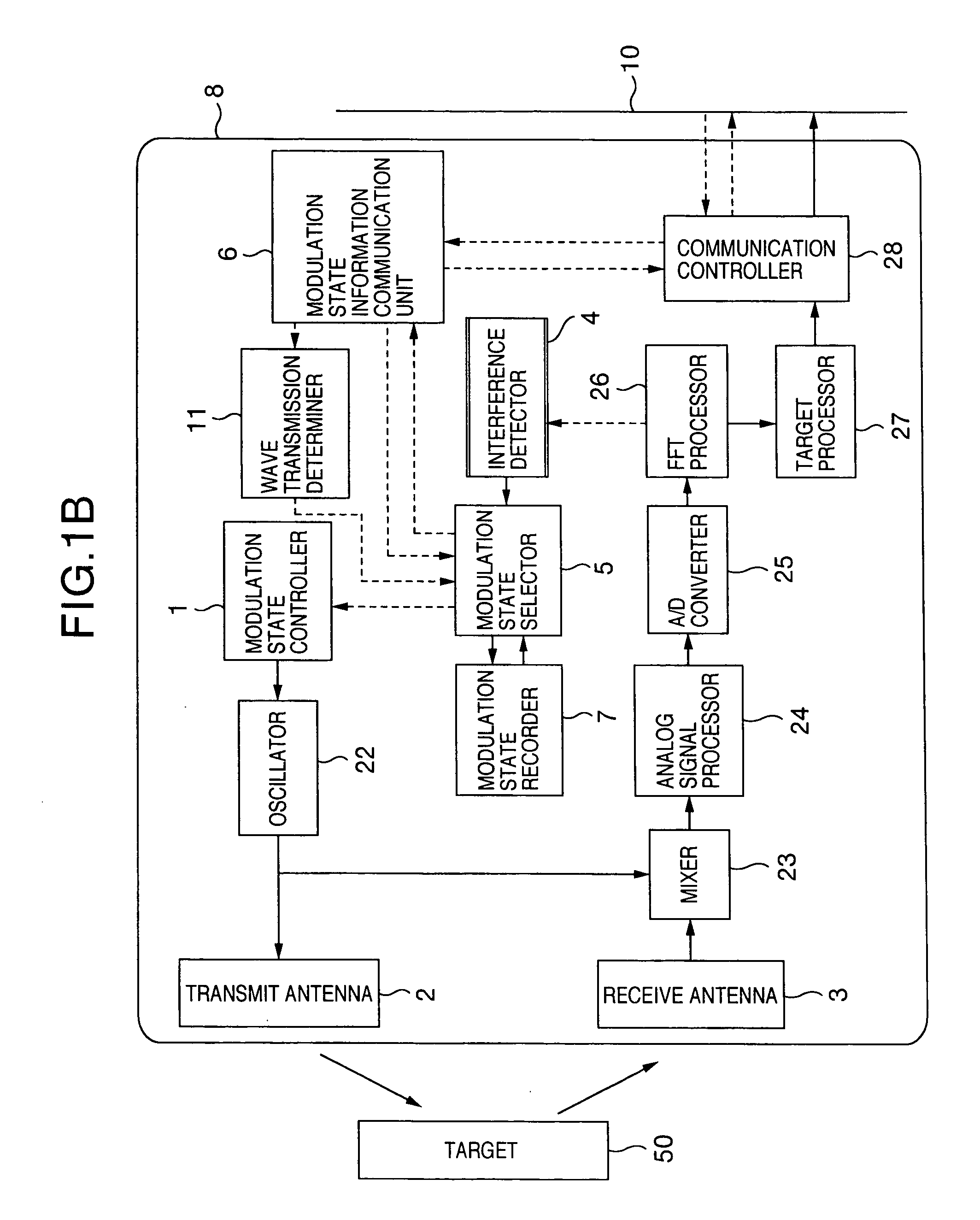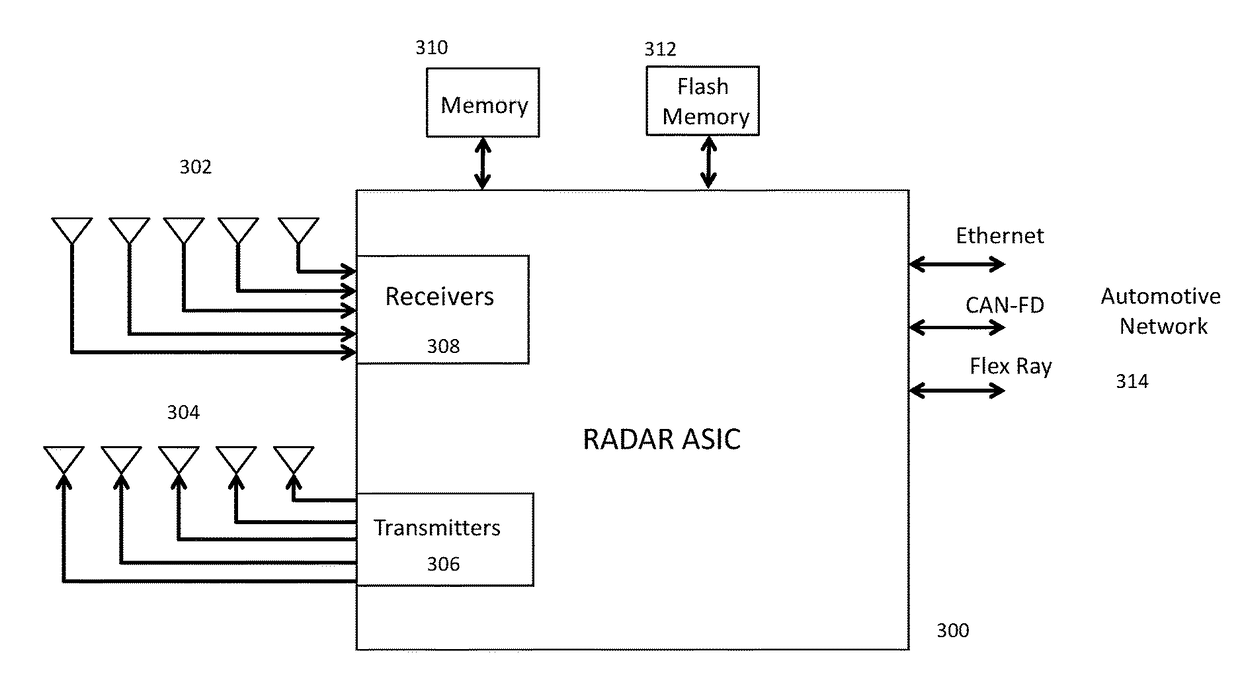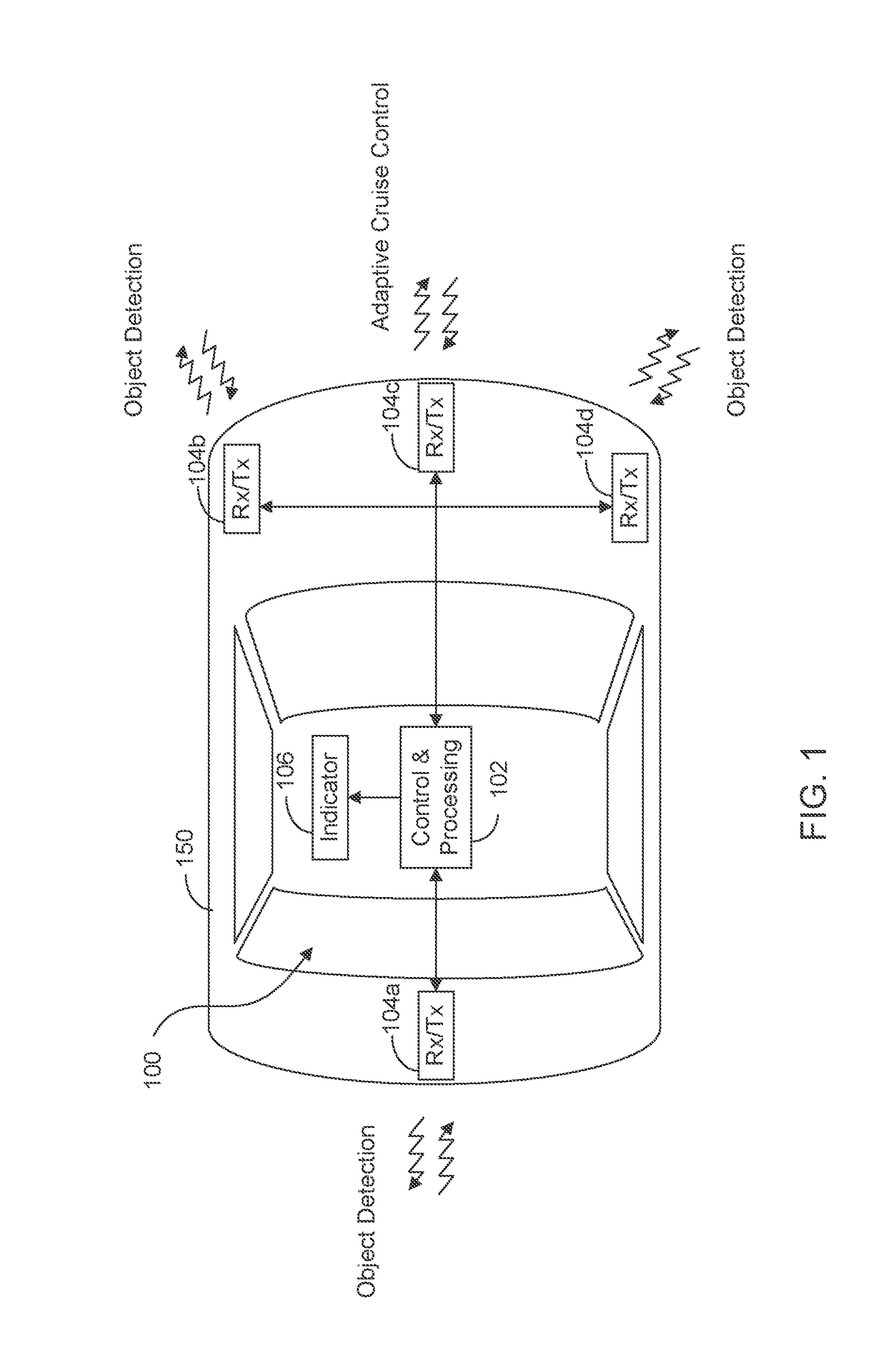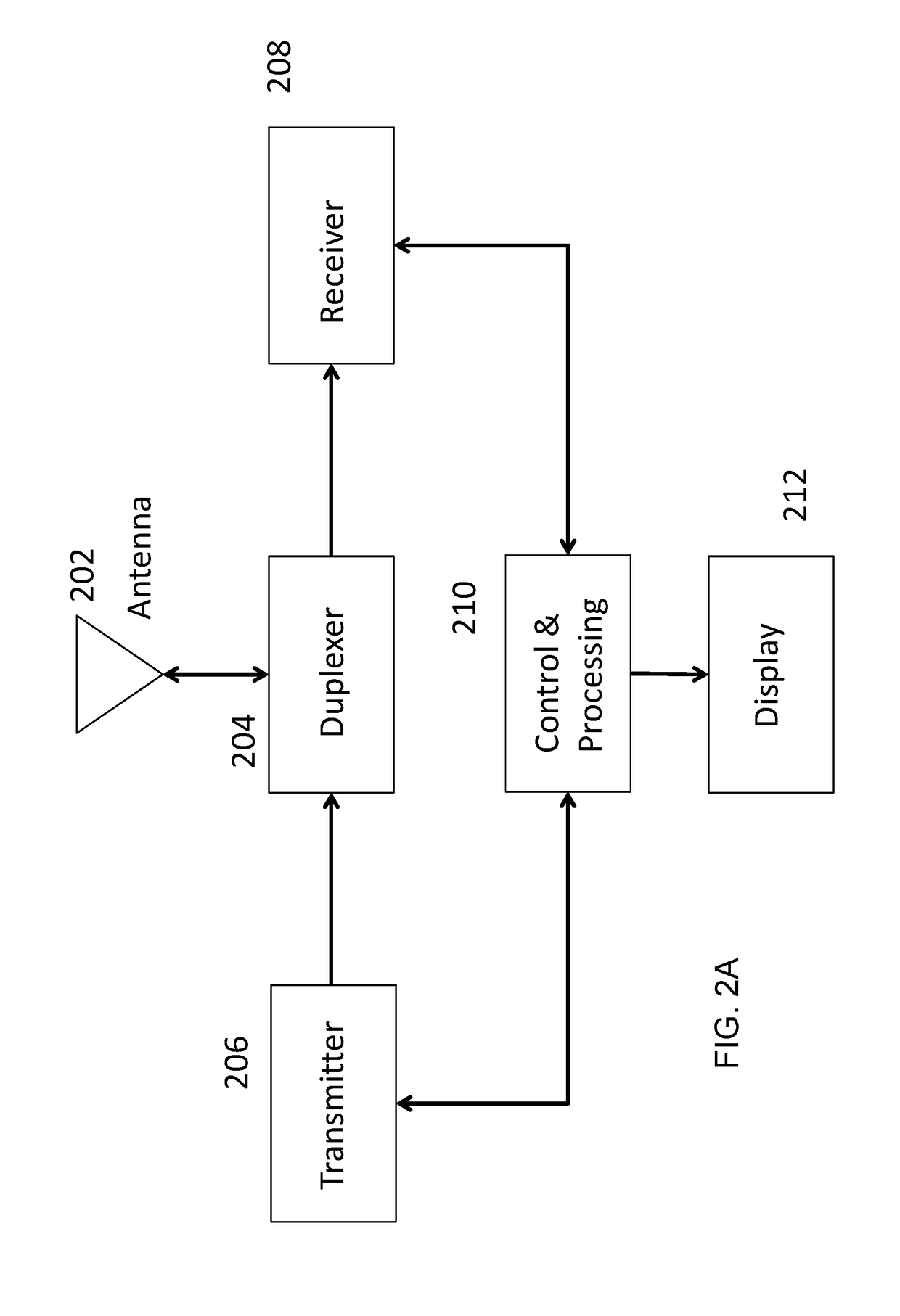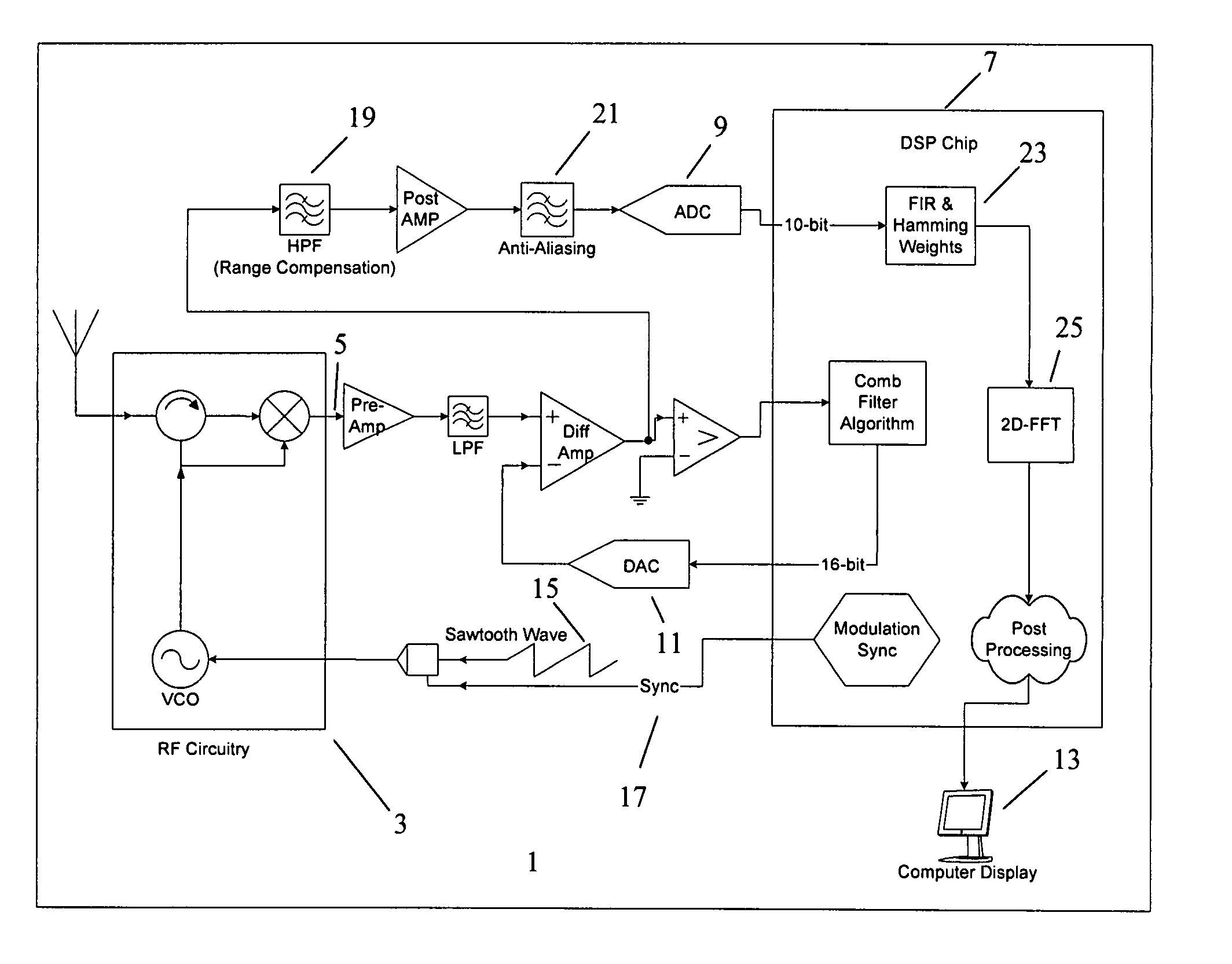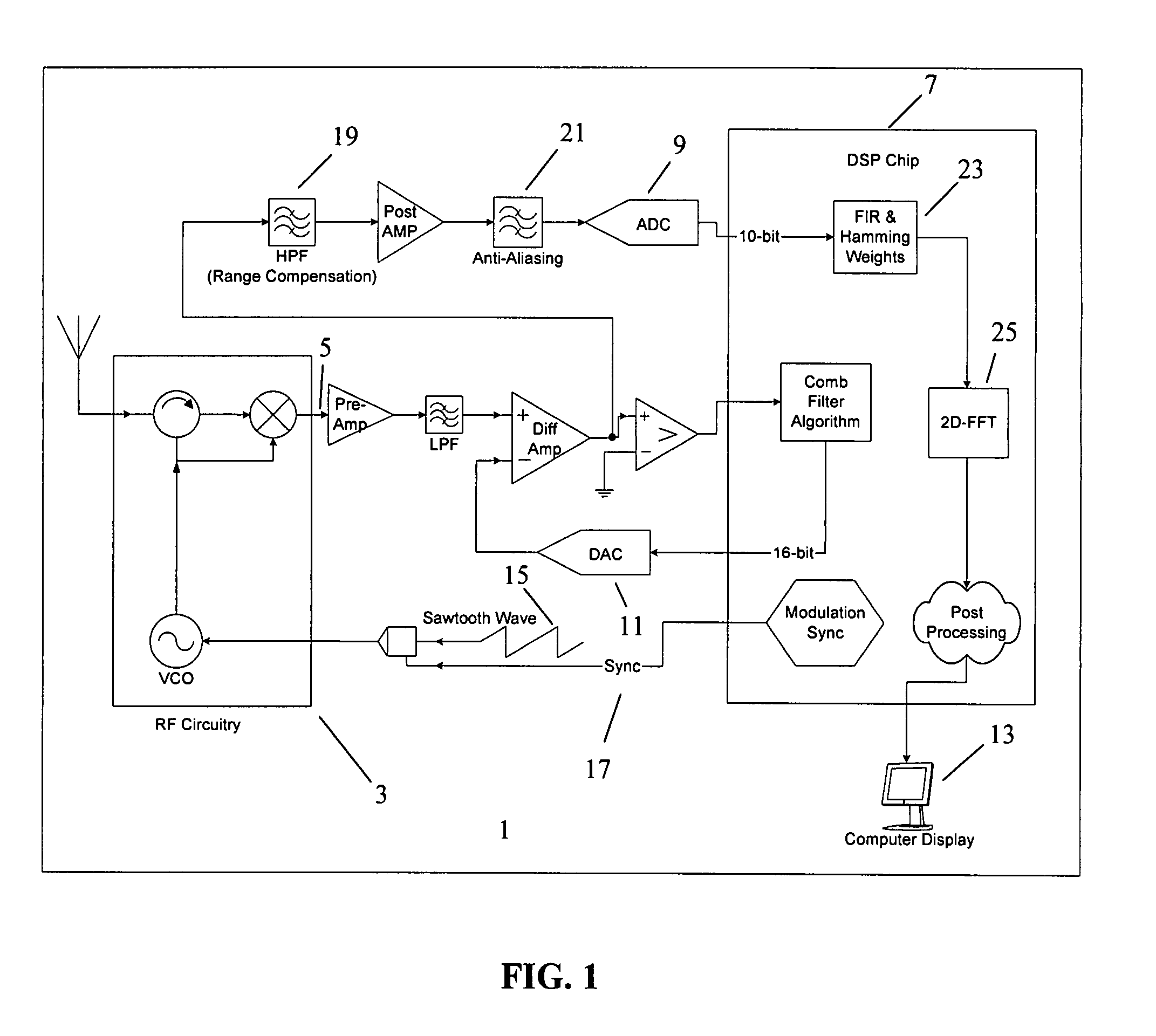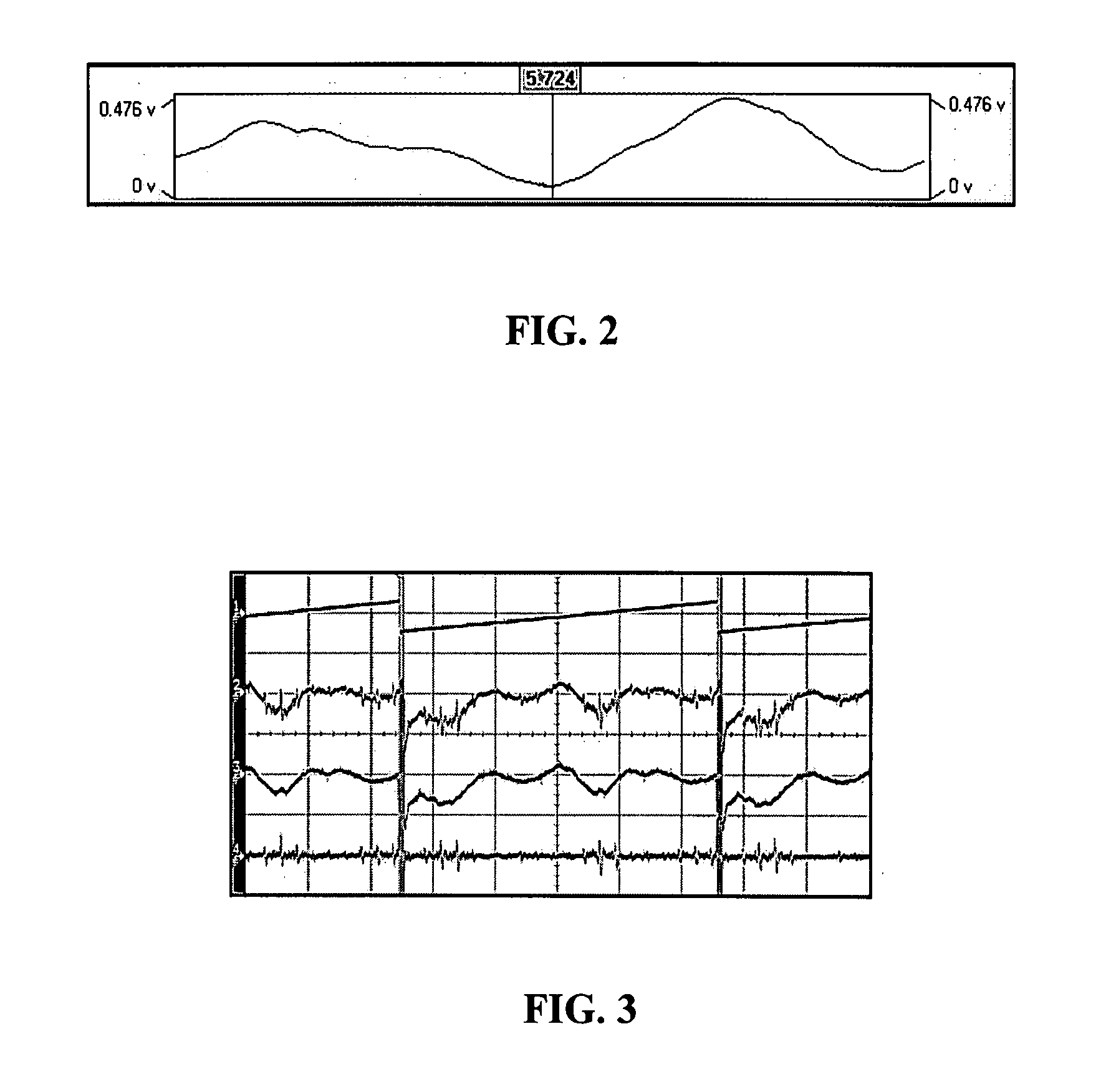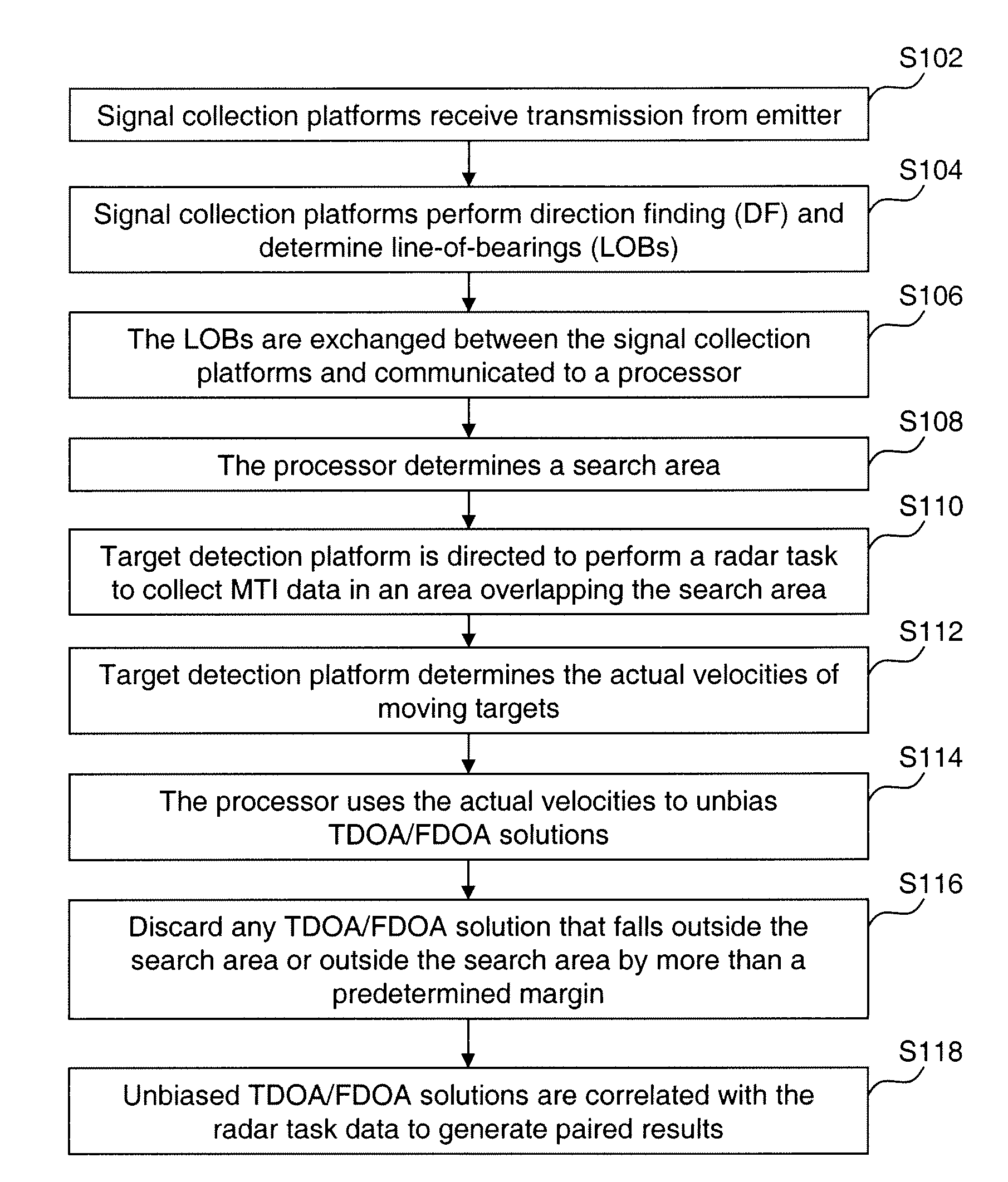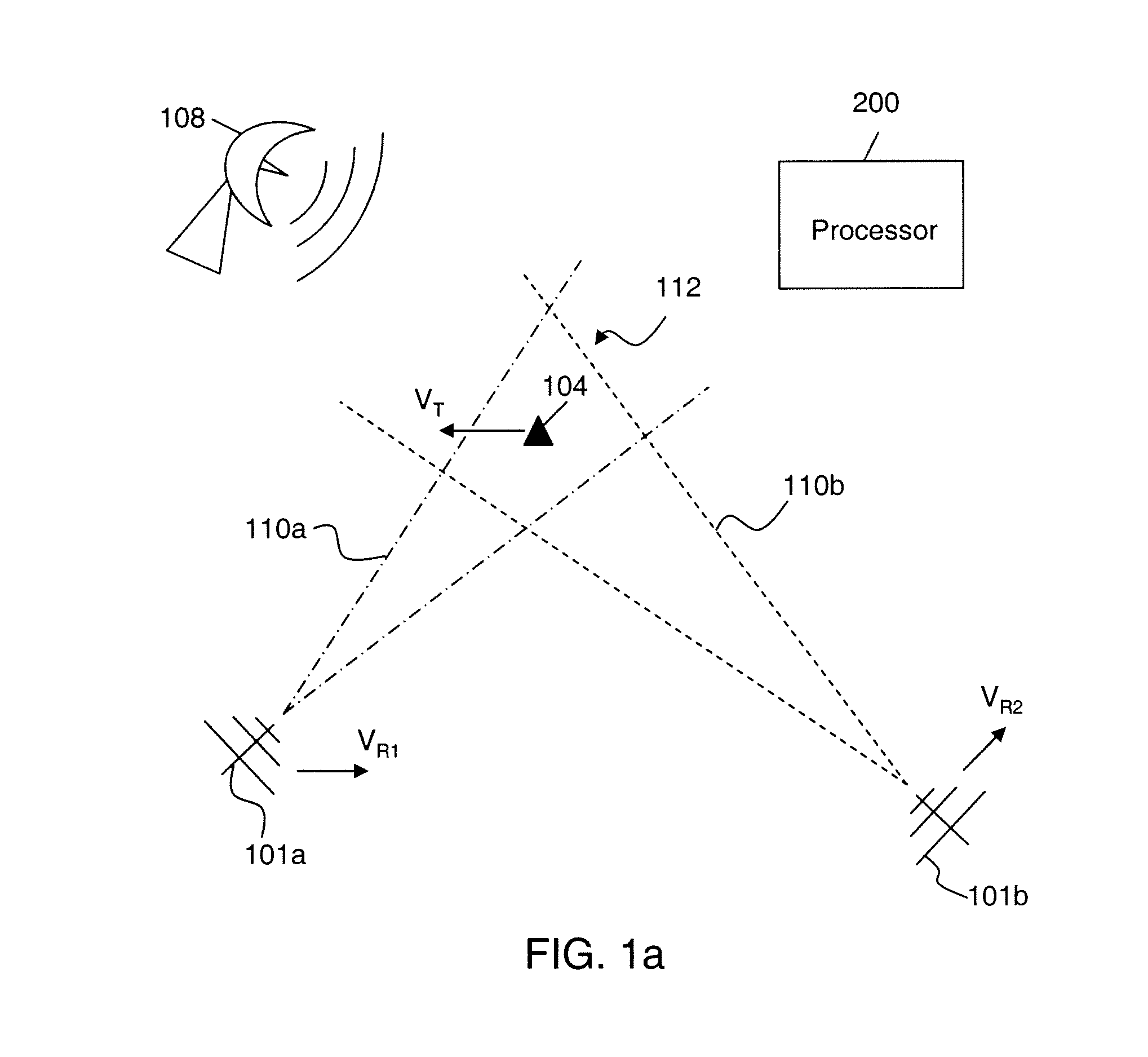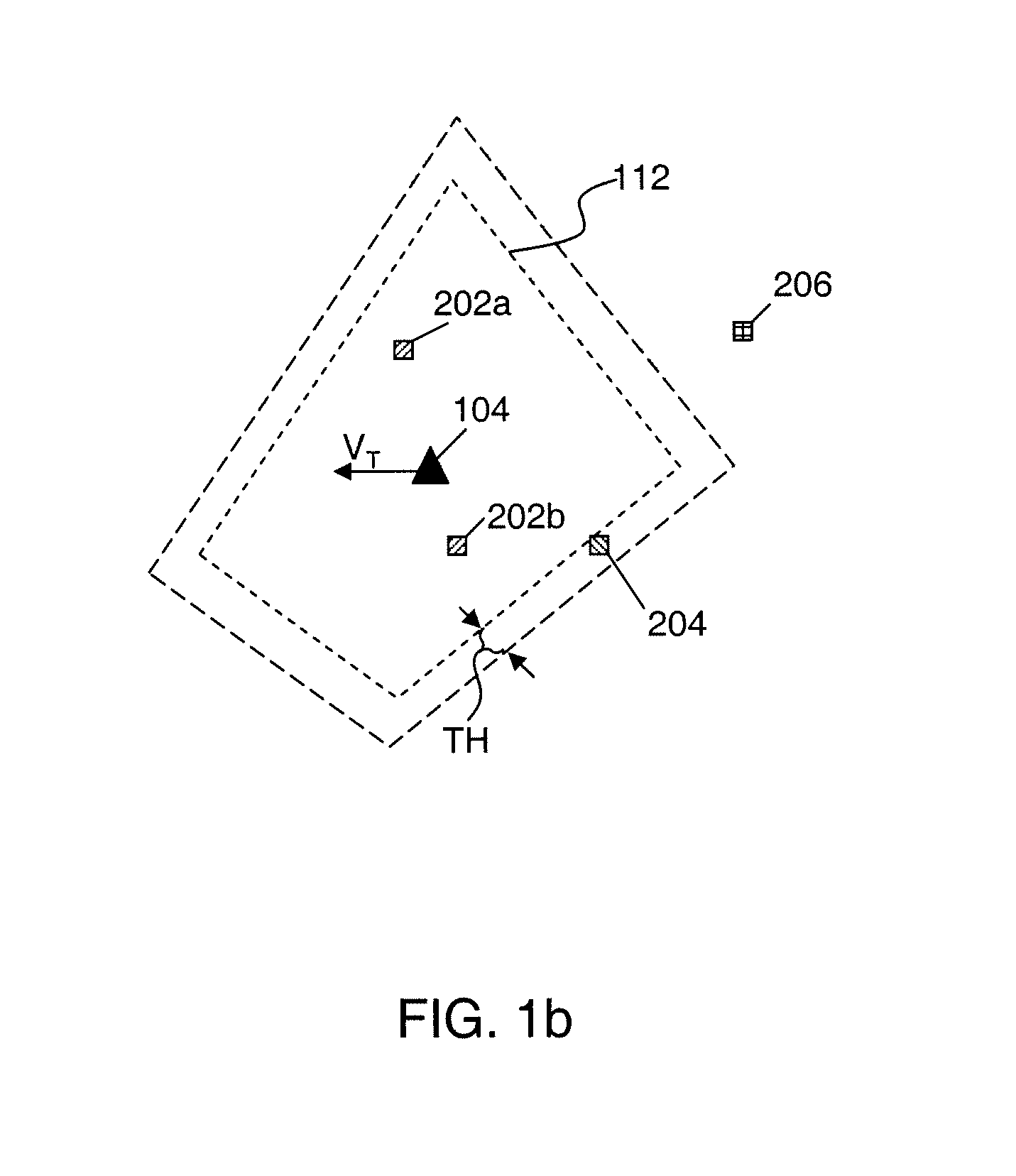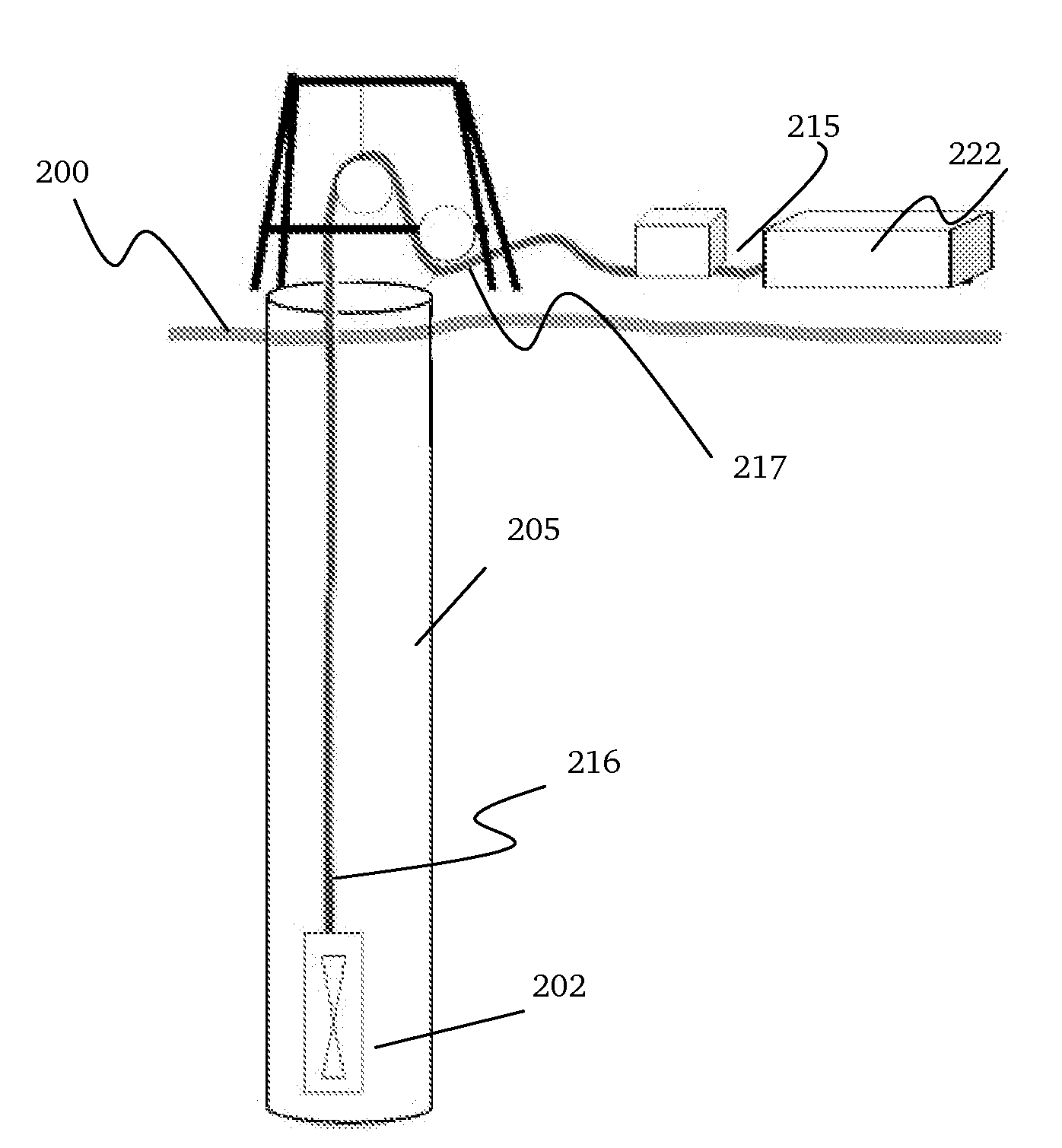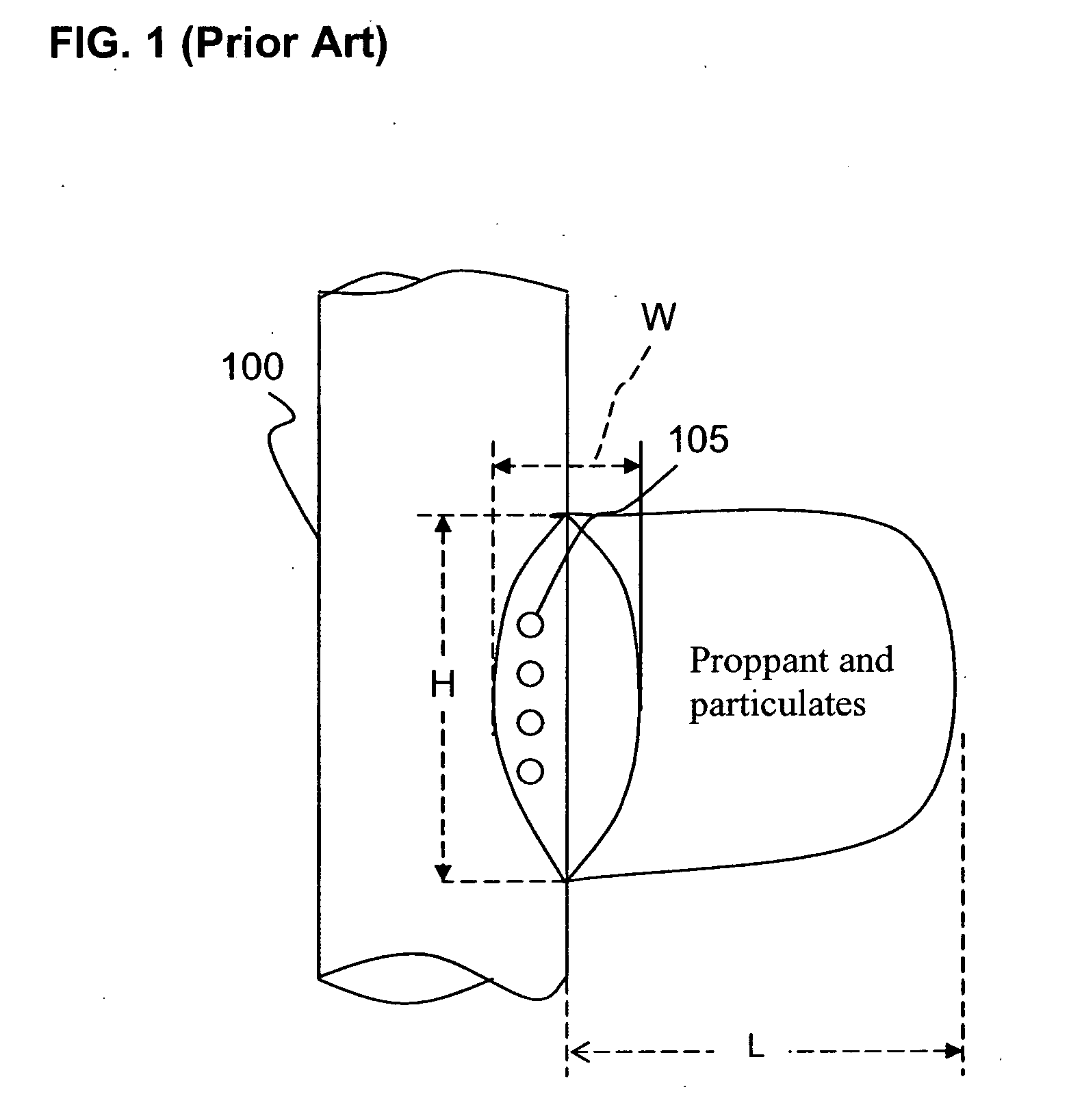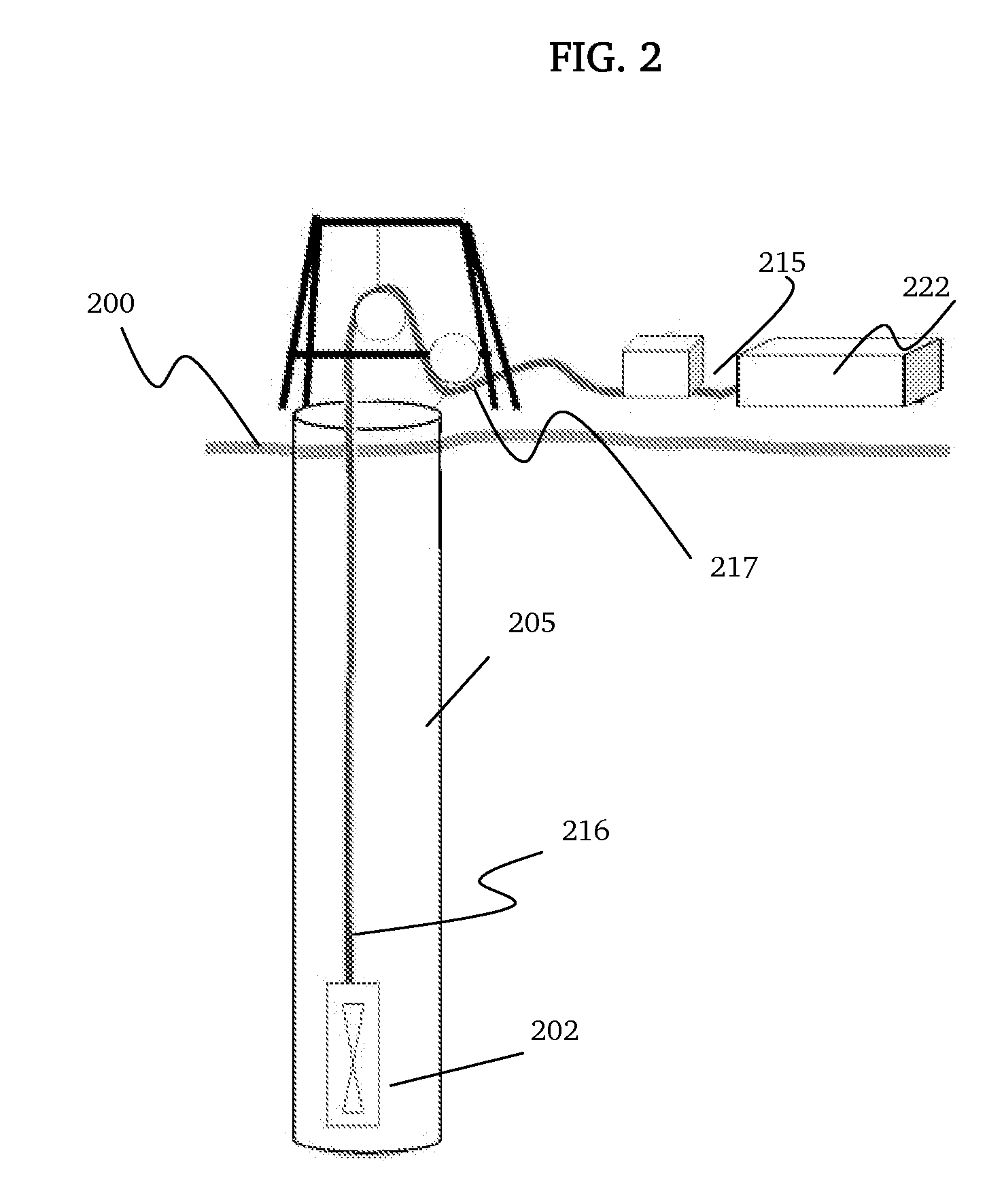Patents
Literature
Hiro is an intelligent assistant for R&D personnel, combined with Patent DNA, to facilitate innovative research.
5191 results about "Radar systems" patented technology
Efficacy Topic
Property
Owner
Technical Advancement
Application Domain
Technology Topic
Technology Field Word
Patent Country/Region
Patent Type
Patent Status
Application Year
Inventor
Conductive line communication apparatus and conductive line radar system and method
InactiveUS20110187578A1Increase heightAvoid interferenceDuplex signal operationRadio wave reradiation/reflectionRadar systemsTransceiver
A conductive line radar comprising at least one signal surface wave launcher, which comprises a signal surface wave transceiver, which is physically attached to a power line. The signal surface wave transceiver transmits a wave signal along the power line with another signal radiating from the wave signal in a plurality of directions along the power line. The at least one signal surface wave transceiver receives reflected signals from a target within a distance of the power line. The at least one signal surface wave launcher includes at least one RF communications transceiver and can be inductively powered from the power line.
Owner:SENSIS CORPORATION
Conductive line communication apparatus and conductive line radar system and method
InactiveUS8159385B2Eliminate the effects ofIncrease the areaDuplex signal operationRadio wave reradiation/reflectionTransceiverRadar systems
A conductive line radar comprising at least one signal surface wave launcher, which comprises a signal surface wave transceiver, which is physically attached to a power line. The signal surface wave transceiver transmits a wave signal along the power line with another signal radiating from the wave signal in a plurality of directions along the power line. The at least one signal surface wave transceiver receives reflected signals from a target within a distance of the power line. The at least one signal surface wave launcher includes at least one RF communications transceiver and can be inductively powered from the power line.
Owner:SENSIS CORPORATION
System and method for radar-assisted catheter guidance and control
InactiveUS20050096589A1Less trainingMinimizing and eliminating useEndoscopesMedical devicesRadar systemsGuidance control
A Catheter Guidance Control and Imaging (CGCI) system whereby a magnetic tip attached to a surgical tool is detected, displayed and influenced positionally so as to allow diagnostic and therapeutic procedures to be performed is described. The tools that can be so equipped include catheters, guidewires, and secondary tools such as lasers and balloons. The magnetic tip performs two functions. First, it allows the position and orientation of the tip to be determined by using a radar system such as, for example, a radar range finder or radar imaging system. Incorporating the radar system allows the CGCI apparatus to detect accurately the position, orientation and rotation of the surgical tool embedded in a patient during surgery. In one embodiment, the image generated by the radar is displayed with the operating room imagery equipment such as, for example, X-ray, Fluoroscopy, Ultrasound, MRI, CAT-Scan, PET-Scan, etc. In one embodiment, the image is synchronized with the aid of fiduciary markers located by a 6-Degrees of Freedom (6-DOF) sensor. The CGCI apparatus combined with the radar and the 6-DOF sensor allows the tool tip to be pulled, pushed, turned, and forcefully held in the desired position by applying an appropriate magnetic field external to the patient's body. A virtual representation of the magnetic tip serves as an operator control. This control possesses a one-to-one positional relationship with the magnetic tip inside the patient's body. Additionally, this control provides tactile feedback to the operator's hands in the appropriate axis or axes if the magnetic tip encounters an obstacle. The output of this control combined with the magnetic tip position and orientation feedback allows a servo system to control the external magnetic field.
Owner:NEURO KINESIS CORP
Determining presence and/or physiological motion of one or more subjects with quadrature doppler radar receiver systems
InactiveUS20080119716A1Readily detected and isolatedImprove isolationDiagnostic recording/measuringSensorsRadar systemsEngineering
Systems and methods for determining presence and / or physiological motion of at least one subject using a Doppler radar system having a quadrature receiver are provided. In one example, the apparatus includes a transmitter for transmitting a source signal, a quadrature receiver for receiving the source signal and a modulated source signal (e.g., as reflected from one or more subjects), and logic for mixing the source signal and the received modulated source signal to generate in-phase (I) and quadrature (Q) data, whereby nulls in the signal are avoided. In one example, the quadrature receiver further includes logic for center tracking quadrature demodulation. The apparatus may further include logic for determining physiological motion (e.g., heart rate and / or respiration rate of a person) of a subject based on the source signal and the modulated source signal.
Owner:UNIV OF HAWAII
System and method for radar-assisted catheter guidance and control
InactiveUS7280863B2Less trainingMinimizing and eliminating useMedical devicesEndoscopesRadar systemsTip position
A Catheter Guidance Control and Imaging (CGCI) system whereby a magnetic tip attached to a surgical tool is detected, displayed and influenced positionally so as to allow diagnostic and therapeutic procedures to be performed is described. The tools that can be so equipped include catheters, guidewires, and secondary tools such as lasers and balloons. The magnetic tip performs two functions. First, it allows the position and orientation of the tip to be determined by using a radar system such as, for example, a radar range finder or radar imaging system. Incorporating the radar system allows the CGCI apparatus to detect accurately the position, orientation and rotation of the surgical tool embedded in a patient during surgery. In one embodiment, the image generated by the radar is displayed with the operating room imagery equipment such as, for example, X-ray, Fluoroscopy, Ultrasound, MRI, CAT-Scan, PET-Scan, etc. In one embodiment, the image is synchronized with the aid of fiduciary markers located by a 6-Degrees of Freedom (6-DOF) sensor. The CGCI apparatus combined with the radar and the 6-DOF sensor allows the tool tip to be pulled, pushed, turned, and forcefully held in the desired position by applying an appropriate magnetic field external to the patient's body. A virtual representation of the magnetic tip serves as an operator control. This control possesses a one-to-one positional relationship with the magnetic tip inside the patient's body. Additionally, this control provides tactile feedback to the operator's hands in the appropriate axis or axes if the magnetic tip encounters an obstacle. The output of this control combined with the magnetic tip position and orientation feedback allows a servo system to control the external magnetic field.
Owner:NEURO KINESIS CORP
Millimeter wave pulsed radar system
InactiveUS7002511B1Improve efficiencySimplified frequency synthesizer designRadio wave reradiation/reflectionQuadrature modulatorLocal oscillator signal
A millimeter wave pulsed radar system includes a radar synthesizer having a voltage controlled oscillator / phase locked loop (VCO / PLL) circuit, direct digital synthesizer (DDS) circuit and quadrature modulator circuit that are operative to generate an intermediate frequency local oscillator signal (IF / LO signal). A radar transceiver is operative with the radar synthesizer for receiving the IF / LO signal. A transmitter section has a frequency multiplier that multiplies the IF / LO signal up to a millimeter wave (MMW) radar signal and a receiver section and includes a direct conversion mixer that receives a MMW radar signal and the IF / LO signal to produce I / Q baseband signals that are later digitized and processed.
Owner:REVEAL IMAGING
Ferrite phase shifter and phase array radar system
A phase shifter comprises a substrate, a ground plane formed on a first surface of the substrate, a support structure positioned on a second surface of the substrate opposite the first surface, three parallel, non-co-planar microstrip lines supported by the support structure above the second surface of the substrate, a ferrite element supported by the support structure between the second surface of the substrate and the three non-co-planar microstrip lines, and means for applying a magnetic field to the ferrite element.
Owner:RAYTHEON CO
Radar system and method of manufacturing same
ActiveUS20130027240A1Increase speedThe signal is accurate and reliableAntenna adaptation in movable bodiesParallel-plate/lens fed arraysRadar systemsEngineering
A radar system (100) is described including a transmitting assembly (10), a receiving assembly (20), a control unit (30) and a signal processing unit (40). The transmitting assembly (10) receives an input signal (31) and transmits an incident radar signal (2). The transmitting assembly (10) includes a Rotman lens (12) having a lens cavity (74), a plurality of beam ports (60), a plurality of array ports (62) and a patch antenna assembly (14). The lens cavity (74) has a lens gap (h) between 10 microns to 120 microns, and preferably 40 microns to 60 microns. The patch antenna assembly (14) includes a plurality of antenna arrays (130) operable to receive a plurality of time-delayed, in-phase signals from the Rotman lens (12) and to transmit the incident radar signal (2) towards a target (4). The receiving assembly (20) receives a reflected radar signal (6) and produces an output signal. The signal processing unit (40) compares the input signal (31) to the output signal and implements an algorithm determining the range, velocity and position of the target (4).
Owner:UNIVERSITY OF WINDSOR
High performance vehicle radar system
InactiveUS6400308B1Road vehicles traffic controlAntenna adaptation in movable bodiesDriver/operatorRadar systems
A radar system is described for use in vehicular applications. The radar system is particularly suited to backup warning systems and lane-change warning systems. The radar minimizes many of the problems found in the prior art by providing programmable delays and programmable gain. The radar uses a range search algorithm to detect and sort targets at various ranges within the field of view of the radar. Each target range corresponds to a particular delay and gain setting. The radar searches for targets at the various ranges by running a target search algorithm. For each target range, the search algorithm causes the proper time delay and gain setting. Targets within the selected range are detected and catalogued. Speed of the targets is obtained through Doppler processing. A display is used to warn the driver of the vehicle of the presence of targets at the various ranges. The warning may be visual and / or audible. When used in a lane-change system, issuance of an audible warning is based on the speed of the vehicle.
Owner:AMERIGON INC
System and method for transportation vehicle monitoring, feedback and control
InactiveUS20050065682A1Vehicle testingRegistering/indicating working of vehiclesRadar systemsGlobal Positioning System
A system provides monitoring / feedback to a transportation vehicle regarding the state of that vehicle based on, at least, information provided by sensors located on or in the transportation vehicle. Monitoring the transportation vehicle provides information about the status of the transportation vehicle and equipment on or in the vehicle. Feedback information is provided to the transportation vehicle based on the information received during monitoring. Additionally, feedback information may be formulated based on additional criteria receiver from equipment other than the sensors located on or in the vehicle, for example, meteorological systems, geographic location systems, e.g., a radar system, a global positioning system, etc. The information provided by the sensors and the formulated feedback information may be stored in memory on the transportation vehicle as well as at a stable location for archiving and subsequent analysis.
Owner:2283188 ONTARIO
Orthogonal linear transmit receive array radar
ActiveUS20100141527A1High resolution imagingHigh resolution imageIndividually energised antenna arraysPolarised antenna unit combinationsRadar systemsLight beam
A radar system having orthogonal antenna apertures is disclosed. The invention further relates to an antenna system wherein the orthogonal apertures comprise at least one transmit aperture and at least one receive aperture. The cross-product of the transmit and receive apertures provides a narrow spot beam and resulting high resolution image. An embodiment of the invention discloses orthogonal linear arrays, comprising at least one electronically scanned transmit linear array and at least one electronically scanned receive linear array. The design of this orthogonal linear array system produces comparable performance, clutter and sidelobe structure at a fraction of the cost of conventional 2D filled array antenna systems.
Owner:FIRST RF CORP
Apparatus and method for shaped magnetic field control for catheter, guidance, control, and imaging
A variable magnet system for manipulating a magnetic catheter is described. In one embodiment, a cluster of electromagnets is configured to generate a desired magnetic field. In one embodiment, one or more poles of the cluster are moveable with respect to other poles in the cluster to allow shaping of the magnetic field. In one embodiment, one or more magnetic poles can be extended or retracted to shape the magnetic field. In one embodiment, the electromagnets can be positioned to generate magnetic fields that exert a desired torque and / or movement force on the catheter. In one embodiment, the catheter guidance system includes a closed-loop servo feedback system. In one embodiment, a radar system is used to determine the location of the distal end of the catheter inside the body, thus, minimizing or eliminating the use of ionizing radiation such as X-rays. The catheter guidance system can also be used in combination with an X-ray system (or other imaging systems) to provide additional imagery to the operator. The magnetic system used in the magnetic catheter guidance system can also be used to locate the catheter tip to provide location feedback to the operator and the control system. In one embodiment, a magnetic field source is used to create a magnetic field of sufficient strength and orientation to move a magnetically-responsive catheter tip in a desired direction by a desired amount.
Owner:NEURO KINESIS CORP
Radar architecture
ActiveUS20100328157A1Drawback can be obviatedAntenna arraysRadio wave reradiation/reflectionRadar systemsBeam pattern
The present invention is directed to a radar system that includes an antenna array having a plurality of antenna elements and a plurality of transmit antenna phase centers. A transmitter portion is coupled to the antenna array. The transmitter portion is configured to transmit a plurality of transmit beams characterized by a transmit beam pattern. The transmit beam pattern has a predetermined transmit beamwidth that is a function of the number of orthogonal transmit waveforms. The predetermined transmit beamwidth substantially fills a predetermined angular volume. Each of the plurality of transmit beams includes a corresponding one of the plurality of orthogonal transmit waveforms. Each of the plurality of transmit beams is transmitted by a corresponding one of the plurality of transmit antenna phase centers. The number of orthogonal transmit waveforms is less than the plurality of antenna elements. A receiver portion is also coupled to the antenna array. The receiver portion is configured to extract a plurality of orthogonal receive signal components from a received signal provided by the antenna array. The plurality of orthogonal receive signal components corresponds to the plurality of orthogonal transmit waveforms. A plurality of extracted orthogonal receive signal components are digitally beam formed to implement a virtual antenna array and generate a receive signal having a receive beamwidth. The virtual antenna array includes a plurality of virtual antenna elements greater than the plurality of antenna elements. The receive beamwidth is a function of the plurality of virtual antenna elements.
Owner:SRC INC
Electro-mechanical scanned array system and method
InactiveUS20030043071A1Improve signal quality indicationImprove signal qualityParticular array feeding systemsWaveguide type devicesRadar systemsBeam steering
An antenna system includes a beamformer having a feed port and a one-dimensional or two-dimensional arrangement of output ports, radiating antenna elements coupled with output ports of the beamformer, and an antenna control unit coupled with the beamformer to steer a beam of the antenna system. The antenna system forms an electrically steerable, phased array antenna having a beam steering angle which is constant over a very broad band of frequencies. Specific applications for the antenna system include satellite communications including tracking low earth orbiting satellites, radar systems and data links using a steerable antenna for self-installation, self-healing and adaptation.
Owner:E TENNA CORP
Traffic light signal system using radar-based target detection and tracking
InactiveUS20050046597A1Reduce harmSave energyControlling traffic signalsAnti-collision systemsRadar systemsTraffic signal
A novel system and method of integrating an RF emissions device, such as a radar system (103A), within a traffic control indicator (101) system. The system and method determines, using LFM-CW radar signals (201) and a multi-stage spectral processing algorithm (600), if one or more object / vehicle targets will enter an intersection and comprises receiving a radar echo response (203) indicating the object / vehicle target (104) is approaching the intersection, receiving range and velocity of the object / vehicle targets (104), and based on the receiving, determining if the object / vehicle target (104) will enter the intersection. The system and method can programmatically be configured to activate red-light-hold, green-light-extension, or left-turn-warning.
Owner:POWER SIGNAL TECH +1
Vertical weather profile display system and method
ActiveUS6879280B1Electric/magnetic detectionSpecial data processing applicationsGraphicsRadar systems
An aircraft weather radar system is disclosed. The system comprises a radar antenna, aircraft sensors, and a database. The system also comprises a processing device receiving information from the radar antenna and from the aircraft sensors and able to retrieve information from the database. Further, the system comprises a cockpit display coupled to the processing device. The processing device is programmed to estimate storm system characteristics based on the received information from the aircraft sensors and the database and to display the storm system characteristics on a vertical weather profile display using a graphical representation.
Owner:ROCKWELL COLLINS INC
Digital beamforming radar system
InactiveUS6882311B2Less spaceEasy to manufactureModular arraysTransmissionLow noiseLocal oscillator signal
A receiver for a digital beamforming radar system includes a plurality of antenna elements, low-noise block converters, one or more analog-to-digital converters, and a processor. The antenna elements receive a radar signal and output a received signal. The low-noise block converters are modified commercially available components used in satellite television systems, respond to the received signal from a corresponding antenna element, and output an intermediate frequency signal. The low-noise block converters include at least one amplifier, a mixer, and a local oscillator input. The local oscillator input enables an external local oscillator signal to be inputted to the mixer. The analog-to-digital converters are responsive to the intermediate frequency signal of a corresponding low-noise block converter. The processor is responsive to the digital signals output by the analog-to-digital converters.
Owner:COMM & POWER IND
Forward-looking radar system
InactiveUS20050285773A1Improve discriminationPrecise maintenanceAntenna adaptation in movable bodiesRadio wave reradiation/reflectionElectricityRadar systems
An assembly for receiving and transmitting millimeter (mm) waves, including at least one mm wave reflector (84, 86, 88)and at least one mm transmission wave feed (72) configured in a transmission feed location (34) within the at least one mm wave reflector. The assembly also includes a plurality of receiving mm wave feeds (72) configured in respective receiving feed locations (36) within the at least one mm wave reflector; and a radio frequency (RF) module (38). The RF module is coupled to the at least one mm transmission wave feed and to the plurality of the receiving mm wave feeds, so as to drive the at least one mm transmission wave feed to transmit outgoing mm waves and to simultaneously receive incoming mm waves from all of the plurality of the receiving mm wave feeds.
Owner:GROENEVELD TRANSPORT EFFICIENCY
Technique for compensation of transmit leakage in radar receiver
A radar system (500) radiates a radar transmit signal, has a radar signal receiver (503) and a canceller (505) for canceling leakage of the transmit signal into the radar signal receiver (503). The canceller (505) comprises a digital waveform generator (528) for generating a first digital signal converted to an analog waveform. The analog waveform is amplified after a fixed delay (534) to generate a first cancellation signal input into a circulator (504). The circulator combines the first cancellation signal with the leakage to generate a first corrected signal. A summer (507) combines the first corrected signal from the circulator with a second cancellation signal to generate a second corrected signal. The second cancellation signal is generated by a digital cancellation filter (526). The digital cancellation filter (526) has as an input the first digital signal from the digital waveform generator (528). The digital cancellation filter (526) is controlled using weight adjustments computed by an adaptive weight processor (518). The adaptive weight processor (518) samples the second corrected signal and computes the weight adjustments to optimize the second cancellation signal.
Owner:RAYTHEON CO
Active radar system
An example radar system for a vehicle comprises a radar antenna, operable to produce a radar beam, and a lens assembly including at least one active lens, the radar beam passing through the lens assembly. The radar beam has a field of view that is adjustable using the active lens. In some examples, the active lens comprises a metamaterial, the metamaterial having an adjustable property such as an adjustable negative index, the field of view being adjustable using the adjustable property of the metamaterial.
Owner:TOYOTA MOTOR CO LTD
System and method for positioning pulses in time using a code that provides spectral shaping
InactiveUS6937639B2Minimizing the code spectrumDifferenceBeacon systems using radio wavesFrequency/rate-modulated pulse demodulationRadar systemsFrequency spectrum
A system, method and computer program product for positioning pulses, including positioning pulses within a specified time layout according to one or more codes to produce a pulse train having one or more predefined spectral characteristics where a difference in time position between adjacent pulses positioned to produce a spectral characteristic differs from another difference in time position between other adjacent pulses positioned to produce the spectral characteristic. The present invention may include shaping a code spectrum according to a spectral template in order to preserve a pre-defined code characteristic. A pre-defined code characteristic can include desirable correlation, or spectral properties. A transmitter incorporating the present invention can avoid transmitting at a particular frequency. Similarly, a receiver can avoid interference with a signal transmitting at a particular frequency. A radar system, can avoid a radar jammer attempting to jam a particular frequency.
Owner:HUMATICS CORP
Runway obstacle detection system and method
InactiveUS6850185B1Satellite radio beaconingRadio wave reradiation/reflectionRadar antennasRadar systems
An airborne radar system is disclosed. The airborne radar system comprises a radar antenna, radar circuitry coupled to the radar antenna, and a runway database comprising runway location information. The airborne radar system also comprises a processing device retrieving from the runway database, runway location information for a runway being approached by an aircraft, based on the location of the aircraft, and directing a radar beam defined by a polygon which represents the runway and which is derived from the runway information, the processing device determining whether there are any obstacles on the runway.
Owner:ROCKWELL COLLINS INC
Dual beam radar system
Various embodiments are described herein relating to a radar system and associated methods for detecting targets in the presence of certain types of clutter. The radar system generally comprises hardware operatively configured to obtain first and second sets of radar return signals concurrently, first circuitry operatively configured to detect targets in the first and second sets of radar return signals, and second circuitry operatively configured to identify detected targets due to clutter.
Owner:RAYTHEON CANADA LTD
Comprehensive traffic control system
ActiveUS20150243165A1Less complicatedImprove efficiencyControlling traffic signalsControl with pedestrian guidance indicatorRadar systemsDriver/operator
The present invention provides a system that utilizes radio signals, cellular network and GPS technologies to provide a multi task system that deals with a variety of traffic related aspects such as intersection design systems, in-car traffic light systems, in-car traffic light system app for both drivers and pedestrians, roadside assistance and safety alert systems, high speed chase systems, roadway radar systems, law enforcement safety systems, emergency vehicles preemption systems, vehicle location logging systems, security and crime-fighting systems, missing person search systems and children in vehicles safety systems. The system consists of a number of electronic units, each one of these units perform a number of programmed functions. Examples of these units are: Police Vehicle Unit, Emergency Vehicle Unit, Vehicle Unit and Roadway Intersection Unit.
Owner:ELSHEEMY MOHAMED ROSHDY
Radar apparatus and radar system for a vehicle
InactiveUS20070200747A1Avoid interferenceRadio wave reradiation/reflectionCommunication unitRadar systems
A radar apparatus including units for transmitting and receiving an electric wave to detect a target, a unit for detecting wave interference caused by surroundings, a unit for controlling the modulation state of the transmitted wave, a communication unit for acquiring modulation state information being used by the other radar apparatuses, and a unit for selecting such a modulation state as to avoid interference with the modulation state information when the wave interference detecting unit detects the wave interference.
Owner:HITACHI LTD
Adaptive transmission and interference cancellation for MIMO radar
ActiveUS9689967B1Reducing self-interferenceReduce the impactModulated-carrier systemsTransmission monitoringRadar systemsSide lobe
A radar system has different modes of operation. In one mode the radar operates as a single-input, multiple-output (SIMO) radar system utilizing one transmitted signal from one antenna at a time. Codes with known excellent autocorrelation properties are utilized in this mode. At each receiver the response after correlating with various possible transmitted signals is measured in order to estimate the interference that each transmitter will represent at each receiver. The estimated effect of the interference from one transmitter on a receiver that correlates with a different code is used to mitigate the interference. In another mode, the radar operates as a MIMO radar system utilizing all the antennas at a time. Interference cancellation of the non-ideal cross correlation sidelobes when transmitting in the MIMO mode are employed to remove ghost targets due to unwanted sidelobes.
Owner:UHNDER INC
Radar microsensor for detection, tracking, and classification
InactiveUS20080106460A1Noise minimizationRemove unwanted amplitude modulationRadio wave reradiation/reflectionRadar systemsImage resolution
The subject invention pertains to a frequency modulation continuous wave (FMCW) radar system. Embodiments relate to methods of improving the performance of such a FMCW system and improving the value of the information provided by such a FMCW system. In an embodiment of the subject invention, the IF level can be monitored while sweeping the frequency of the system through at least a portion of the frequency range of the system. In a specific embodiment, the system is then set to the frequency that produces the minimum IF level, which is the frequency that produces the minimum AM signal level. Embodiments of the invention pertain to techniques for expediting the adaptation of the comb filter to the signal when the system is turned on. In an embodiment, in order to reduce the number of detection calculations a processor performs every frame, a method of quickly determining the largest peaks in the RDM is implemented. Embodiments of the subject invention relate to a method for processing a radar signal that classifies two or more targets. A specific embodiment of a method for processing the radar signal classifies a human target or other target(s) using amplitude values in time-consecutive range-Doppler maps. Embodiments of the invention pertain to a method for processing a radar signal for improving the performance of FMCW detection, tracking, and classification algorithms. Embodiments improve such performance by increasing the SNR and velocity measurement resolution of slow moving targets while minimizing DSP computational and memory requirements in two-dimensional FFT range-velocity processing.
Owner:UNIV OF FLORIDA RES FOUNDATION INC
MIMO antenna with elevation detection
A multiple input multiple output (MIMO) antenna for a radar system includes a receive antenna, a first transmit-antenna-arrangement, and a second transmit-antenna-arrangement. The receive-antenna is configured to detect radar-signals reflected by a target toward the receive-antenna. The first transmit-antenna-arrangement includes a first vertical-array of radiator elements and a second vertical-array of radiator elements. The first transmit-antenna-arrangement is configured so the first vertical-array can be selectively coupled to a transmitter independent of the second vertical-array. The second transmit-antenna-arrangement includes a third vertical-array of radiator elements and a fourth vertical-array of radiator elements. The second transmit-antenna-arrangement is configured so the third vertical-array can be selectively coupled to a transmitter independent of the fourth vertical-array. The second transmit-antenna-arrangement is vertically offset from the first transmit-antenna-arrangement by a vertical offset distance selected so an elevation angle to the target can be determined by the receive-antenna.
Owner:APTIV TECH LTD
System and method for precision geolocation utilizing multiple sensing modalities
ActiveUS8134493B2Improve accuracyRemove target velocity biasPosition fixationRadio wave reradiation/reflectionRadar systemsFDOA
A system and method for determining the geolocation of a signal emitter moving at an unknown velocity by combining signal data of a target detection platform (e.g., a radar system) and signal data collected by two or more moving signal collection platforms (e.g., RF signal receivers). In one embodiment, the target detection platform determines tentative location and velocity of the signal emitter, and the signal collection platforms are configured to perform TDOA and / or FDOA analysis of the collected signal data corresponding to a signal of the signal emitter. In one embodiment, solutions provided from the TDOA and / or FDOA analysis are unbiased by using the tentative velocity of the signal emitter, and the geolocation of the signal emitter is determined by matching the TDOA / FDOA solutions and the detected tentative location.
Owner:RAYTHEON CO
Logging device with down-hole transceiver for operation in extreme temperatures
ActiveUS20080062036A1Information can be usedLow loss signal transport mechanismsElectric/magnetic detection for well-loggingFluid removalTransceiverRadar systems
A logging radar system and method for measuring propped fractures and down-hole formation conditions in a subterranean formation including: a radar source; an optical source; an optical modulator for modulating an optical signal from the optical source according to a signal from the radar source; a photodiode for converting the modulated optical signal output from the optical modulator to the source radar signal; a transmitter and receiver unit; and a mixer. The transmitter and receiver unit receives the source radar signal from the photodiode, transmits the source radar signal into the formation and receives a reflected radar signal. The mixer mixes the reflected radar signal with the source radar signal to provide an output. This technology can be used to describe all fractures connected to the wellbore and differentiate between the dimensions of the two vertical wings of a propped fracture.
Owner:HEXION INC
Features
- R&D
- Intellectual Property
- Life Sciences
- Materials
- Tech Scout
Why Patsnap Eureka
- Unparalleled Data Quality
- Higher Quality Content
- 60% Fewer Hallucinations
Social media
Patsnap Eureka Blog
Learn More Browse by: Latest US Patents, China's latest patents, Technical Efficacy Thesaurus, Application Domain, Technology Topic, Popular Technical Reports.
© 2025 PatSnap. All rights reserved.Legal|Privacy policy|Modern Slavery Act Transparency Statement|Sitemap|About US| Contact US: help@patsnap.com
